
Feb 14, 2017 | Non categorizzato
 In the first months of marriage, happy and very much in love, everything seemed to go smoothly. But soon the tensions between me and my husband became more and more frequent and made me increasingly sad. I certainly made a lot of mistakes, but tried just the same to keep up the relationship, convinced that love would not end. We went on amid ups and downs. After five years we had a baby girl and then a boy. Our daughter was born with a congenital disease, and this meant many hospitalizations, even far from home. Also our son had weak health and was often also hospitalized. A delicate operation, however, resolved my daughter’s condition, but those had been very taxing years. My husband felt crushed by this situation and said he could no longer cope with all these problems. When I realised that he had fallen in love with my best friend, it was already too late to make him reverse his decisions. And so, after 13 years of marriage, I was left alone with two children of eight and five. I was so upset I no longer wished to live. I wasn’t afraid of death and with a powerful dose of drugs tried to commit suicide. But my plan failed and after 10 days in the hospital I was discharged. It was at this point that through the spirituality of the Focolare, I discovered God who is love. The Gospel had started to penetrate into my life, and I began to experience the joy of those who try to live it. The children suffered a lot due to our separation and I had quite a hard time also with them. But God never stopped guiding my life and placed along my way, people who helped me overcome the many problems I encountered, such as the burning desire to have someone by my side and the love of a man, or the desire to enjoy myself or simply just to cater to myself alone. And always, the light returned to illuminate my life, even when I had to face the most tragic experience for a parent: seeing my beloved daughter die in an accident at the age of 21. In that moment I was desperate with pain, but I asked God for the strength to repeat my “yes” to Him. And He did not leave me in desperation. I immediately felt his presence beside me. Ever since she had left us, I have received many signs of God’s love, and even if I cannot see her or hug her, I am at peace. Since she had wanted to become a teacher and was about to graduate, thanks to the generosity of many, a literacy project was created in the Ivory Coast, and adopted for some years also by the parish. Now the idea is that of building a school and the commitment is being brought ahead. God’s love manifests itself also when friends of my daughter share with me their experiences: inviting me to their graduation, coming to visit me, bringing me out to have a pizza together, asking me for advice and calling me “Second mom.” Currently my son still lives with me and I am happy to open my heart to the needs of others. When I find out about people from other cities who are hospitalised in the cancer hospital nearby, I do my best to stay by them, trying to be a small ray of that love God has for me. One day I found the strength to forgive my husband, and was able not to judge him. Since then I have felt free and liberated from the great weight oppressing me, and though it still has not completely disappeared, not even divorce will make me say that he is no longer my husband. I always remember what my daughter used to say: «Mom, your renunciation of marrying again will be dad’s salvation» and I am sure that these words will come true.
In the first months of marriage, happy and very much in love, everything seemed to go smoothly. But soon the tensions between me and my husband became more and more frequent and made me increasingly sad. I certainly made a lot of mistakes, but tried just the same to keep up the relationship, convinced that love would not end. We went on amid ups and downs. After five years we had a baby girl and then a boy. Our daughter was born with a congenital disease, and this meant many hospitalizations, even far from home. Also our son had weak health and was often also hospitalized. A delicate operation, however, resolved my daughter’s condition, but those had been very taxing years. My husband felt crushed by this situation and said he could no longer cope with all these problems. When I realised that he had fallen in love with my best friend, it was already too late to make him reverse his decisions. And so, after 13 years of marriage, I was left alone with two children of eight and five. I was so upset I no longer wished to live. I wasn’t afraid of death and with a powerful dose of drugs tried to commit suicide. But my plan failed and after 10 days in the hospital I was discharged. It was at this point that through the spirituality of the Focolare, I discovered God who is love. The Gospel had started to penetrate into my life, and I began to experience the joy of those who try to live it. The children suffered a lot due to our separation and I had quite a hard time also with them. But God never stopped guiding my life and placed along my way, people who helped me overcome the many problems I encountered, such as the burning desire to have someone by my side and the love of a man, or the desire to enjoy myself or simply just to cater to myself alone. And always, the light returned to illuminate my life, even when I had to face the most tragic experience for a parent: seeing my beloved daughter die in an accident at the age of 21. In that moment I was desperate with pain, but I asked God for the strength to repeat my “yes” to Him. And He did not leave me in desperation. I immediately felt his presence beside me. Ever since she had left us, I have received many signs of God’s love, and even if I cannot see her or hug her, I am at peace. Since she had wanted to become a teacher and was about to graduate, thanks to the generosity of many, a literacy project was created in the Ivory Coast, and adopted for some years also by the parish. Now the idea is that of building a school and the commitment is being brought ahead. God’s love manifests itself also when friends of my daughter share with me their experiences: inviting me to their graduation, coming to visit me, bringing me out to have a pizza together, asking me for advice and calling me “Second mom.” Currently my son still lives with me and I am happy to open my heart to the needs of others. When I find out about people from other cities who are hospitalised in the cancer hospital nearby, I do my best to stay by them, trying to be a small ray of that love God has for me. One day I found the strength to forgive my husband, and was able not to judge him. Since then I have felt free and liberated from the great weight oppressing me, and though it still has not completely disappeared, not even divorce will make me say that he is no longer my husband. I always remember what my daughter used to say: «Mom, your renunciation of marrying again will be dad’s salvation» and I am sure that these words will come true.
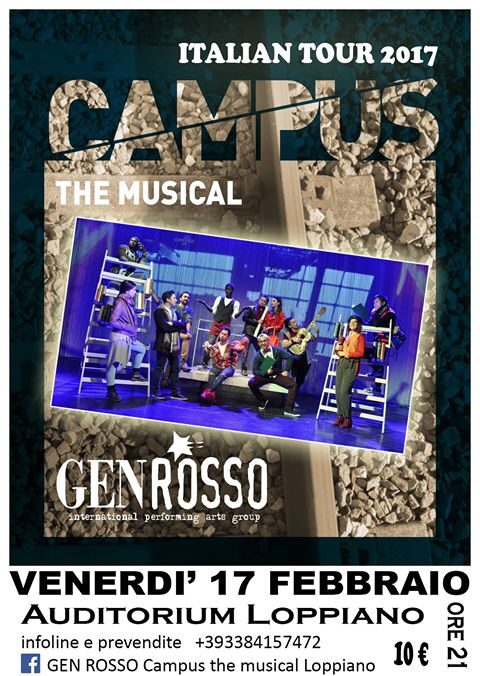
Feb 13, 2017 | Non categorizzato
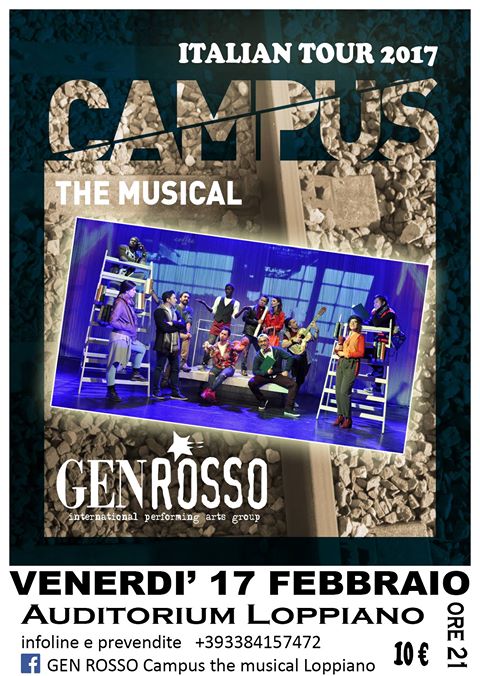 Campus. What does it mean to choose violence as a means for social change? What is happening in the mind of a young person who decides to join a terrorist cell? These are questions that could describe the story of the young people of Campus, who are gripped by the choices and dramas of today’s world: terrorism, hatred, social inequality and the distribution of wealth. The musical will go on stage at the Loppiano Centre Auditorium, February 17, 2017. Inspired by an original idea of Chiara Lubich, the musical is based on real events, and comes to the stage after 10 years of artistic planning. “It was 2004, just after the terrorist attacks in Madrid,” says Gen Rosso’s manager, Valerio Gentile. “The opening scene is of a railroad track like any railroad track in the world. It’s a story of searching, suffering, questioning and finding redemption, and it places the audience in front of the deep wounds of our times.” The musical is composed of 23 songs and choreographies that interact with film sequences and theatrical action. “The project is the result of collaboration by a team of international professionals,” musical curator Benedikt Enderle explains. “The sounds are full and strong, with engaging harmonical twists, with lyrics that range from the lightness of a Latin atmosphere to the pathos of African rhythm, in a striking synthesis of sounds that is very captivating.” The visuals are cutting-edge. “I’ve worked in many international productions,” says Jean Paul Carradori, set designer. “Campus was an unexpected challenge for me because of its dramatic structure and strong theatrical elements. It was necessary to create an atmosphere that would enhance the content and, at the same time, allow the viewers to immerse themselves in the story.” Directing was by Sarah Finch from Great Britain, development and scenery by Valerio Cipri from Italy, music by Benedikt Enderle from Switzerland and Jose Manuel Garcia from Spain, choreography by Raymond Estrada from Philippines, technical team by Emanuele Gervasoni from Italy, video design, lights by Jean Paul Carradori from Italy, Beligum, arrangements by Emanuele Chirco from Italy, and sound and final production by Max Zenoni. The “ITALIA per” Project. Every stop on the tour is connected to a cultural event promoted by SUI. Linked with a network of local institutions and associations, the project offers local level reflection and action on global challenges, seeking to remove the causes of hatred among ethnic groups, religions and cultures in our society. Press Office: sif@loppiano.it Reservations: accoglienza@loppiano.it Info: www.genrosso.com www.iu-sophia.org www.loppiano.it FB genrosso INSTAGRAM @genrosso
Campus. What does it mean to choose violence as a means for social change? What is happening in the mind of a young person who decides to join a terrorist cell? These are questions that could describe the story of the young people of Campus, who are gripped by the choices and dramas of today’s world: terrorism, hatred, social inequality and the distribution of wealth. The musical will go on stage at the Loppiano Centre Auditorium, February 17, 2017. Inspired by an original idea of Chiara Lubich, the musical is based on real events, and comes to the stage after 10 years of artistic planning. “It was 2004, just after the terrorist attacks in Madrid,” says Gen Rosso’s manager, Valerio Gentile. “The opening scene is of a railroad track like any railroad track in the world. It’s a story of searching, suffering, questioning and finding redemption, and it places the audience in front of the deep wounds of our times.” The musical is composed of 23 songs and choreographies that interact with film sequences and theatrical action. “The project is the result of collaboration by a team of international professionals,” musical curator Benedikt Enderle explains. “The sounds are full and strong, with engaging harmonical twists, with lyrics that range from the lightness of a Latin atmosphere to the pathos of African rhythm, in a striking synthesis of sounds that is very captivating.” The visuals are cutting-edge. “I’ve worked in many international productions,” says Jean Paul Carradori, set designer. “Campus was an unexpected challenge for me because of its dramatic structure and strong theatrical elements. It was necessary to create an atmosphere that would enhance the content and, at the same time, allow the viewers to immerse themselves in the story.” Directing was by Sarah Finch from Great Britain, development and scenery by Valerio Cipri from Italy, music by Benedikt Enderle from Switzerland and Jose Manuel Garcia from Spain, choreography by Raymond Estrada from Philippines, technical team by Emanuele Gervasoni from Italy, video design, lights by Jean Paul Carradori from Italy, Beligum, arrangements by Emanuele Chirco from Italy, and sound and final production by Max Zenoni. The “ITALIA per” Project. Every stop on the tour is connected to a cultural event promoted by SUI. Linked with a network of local institutions and associations, the project offers local level reflection and action on global challenges, seeking to remove the causes of hatred among ethnic groups, religions and cultures in our society. Press Office: sif@loppiano.it Reservations: accoglienza@loppiano.it Info: www.genrosso.com www.iu-sophia.org www.loppiano.it FB genrosso INSTAGRAM @genrosso
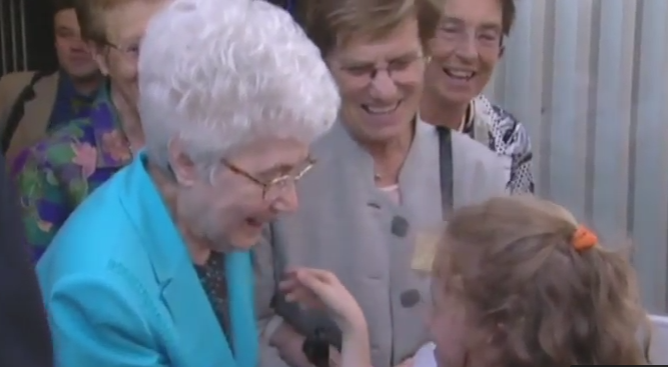
Feb 12, 2017 | Non categorizzato
 …Today the bond of a stable marriage appears almost to be in contradiction to personal freedom. Rather than stressing “relational” values, emphasis is placed on conflicts and differences. On a political level, institutions and governments draft these “matters of fact” into laws that are contrary to the overall wellbeing of the person. As a result, divorce, abortion, euthanasia and biogenetic experiments enter into people’s consciousness as things that are possible and therefore legitimate. The decline in the birth rate, living together before marriage and sexual anarchy become normal and even fashionable. How many separated and frustrated couples are there? How many children deprived of one or the other parent? How many children with addiction problems? How many people are caught up in the spiral of delinquency and prostitution? How many spouses and children are traumatized by wars? How many elderly people are abandoned? How many babies die of hunger every day? …We could create a graphic representation of the contemporary family by way of an image: a wounded and desolate mother who clutches the sufferings of humanity to her breast while crying out “Why?” to the heavens. …Yet, if we believe that behind the events of our lives, there is God with his love. If we are strengthened by this faith and recognize, in our own or others big and small daily sufferings, a shadow of the pain suffered by the crucified and forsaken Christ and our sharing in the suffering that redeemed the world, we can find meaning in the most absurd situations and put them in perspective. In the face of whatever suffering may come our way, big or small, and in the face of contradictions and problems that have no solutions, let’s try to enter within ourselves and look head on at the absurdity, injustice, innocent suffering, humiliation, alienation or desperation before us. It is there that we will recognize one of the many countenances of the “Man of Sorrows.” It is our meeting with him, the “divine person” who became an individual without relationships. He is the God of contemporary humanity, who transforms nothingness into being, suffering into love. Our “yes” to him and our readiness to love him and welcome him into our lives will enable us to go beyond our individualistic attitudes and turn us into new men and women who can heal and give new life in the most desperate situations through love. …These are not dreams. They are the everyday experiences of many families who, helped by the forsakenness of the God-Man, have transformed their tide of pain into new life. Sometimes, indeed often – the divisions are resolved and families reunited. At times, they are not: externally the situations may stay as they were, but the pain is illuminated, the anguish eased and the fracture overcome. At times, the physical or spiritual suffering lingers on but it acquires meaning when we unite our “passion” to the passion of Christ who continues to redeem and save the family and all of humanity. The burden becomes lighter. Therefore, the family can attempt to reacquire its original beauty according to its creator’s design by drawing from the source of love that Christ brought on earth. I believe that from that wellspring married couples and families can quench their thirst for authenticity, for continuous and limitless communion, and for values that are transcendent, lasting and always new. God himself can be present in their homes and share his life with them. Jesus said, “Where two or three are gathered in my name (= in my love), I am there among them” (Mt18:20). Families are being offered an incredible opportunity: to be the setting for God’s presence”. (Taken from Chiara Lubich’s talk “The family is the future” given in Lucerne, Switzerland on 16th May 1999). See the video
…Today the bond of a stable marriage appears almost to be in contradiction to personal freedom. Rather than stressing “relational” values, emphasis is placed on conflicts and differences. On a political level, institutions and governments draft these “matters of fact” into laws that are contrary to the overall wellbeing of the person. As a result, divorce, abortion, euthanasia and biogenetic experiments enter into people’s consciousness as things that are possible and therefore legitimate. The decline in the birth rate, living together before marriage and sexual anarchy become normal and even fashionable. How many separated and frustrated couples are there? How many children deprived of one or the other parent? How many children with addiction problems? How many people are caught up in the spiral of delinquency and prostitution? How many spouses and children are traumatized by wars? How many elderly people are abandoned? How many babies die of hunger every day? …We could create a graphic representation of the contemporary family by way of an image: a wounded and desolate mother who clutches the sufferings of humanity to her breast while crying out “Why?” to the heavens. …Yet, if we believe that behind the events of our lives, there is God with his love. If we are strengthened by this faith and recognize, in our own or others big and small daily sufferings, a shadow of the pain suffered by the crucified and forsaken Christ and our sharing in the suffering that redeemed the world, we can find meaning in the most absurd situations and put them in perspective. In the face of whatever suffering may come our way, big or small, and in the face of contradictions and problems that have no solutions, let’s try to enter within ourselves and look head on at the absurdity, injustice, innocent suffering, humiliation, alienation or desperation before us. It is there that we will recognize one of the many countenances of the “Man of Sorrows.” It is our meeting with him, the “divine person” who became an individual without relationships. He is the God of contemporary humanity, who transforms nothingness into being, suffering into love. Our “yes” to him and our readiness to love him and welcome him into our lives will enable us to go beyond our individualistic attitudes and turn us into new men and women who can heal and give new life in the most desperate situations through love. …These are not dreams. They are the everyday experiences of many families who, helped by the forsakenness of the God-Man, have transformed their tide of pain into new life. Sometimes, indeed often – the divisions are resolved and families reunited. At times, they are not: externally the situations may stay as they were, but the pain is illuminated, the anguish eased and the fracture overcome. At times, the physical or spiritual suffering lingers on but it acquires meaning when we unite our “passion” to the passion of Christ who continues to redeem and save the family and all of humanity. The burden becomes lighter. Therefore, the family can attempt to reacquire its original beauty according to its creator’s design by drawing from the source of love that Christ brought on earth. I believe that from that wellspring married couples and families can quench their thirst for authenticity, for continuous and limitless communion, and for values that are transcendent, lasting and always new. God himself can be present in their homes and share his life with them. Jesus said, “Where two or three are gathered in my name (= in my love), I am there among them” (Mt18:20). Families are being offered an incredible opportunity: to be the setting for God’s presence”. (Taken from Chiara Lubich’s talk “The family is the future” given in Lucerne, Switzerland on 16th May 1999). See the video

Feb 11, 2017 | Non categorizzato
 “I was born at a thousand metres in a small village of the Piedmont Prealps.” This is how Aldo Baima always began his story, grateful to the land that saw his birth and life in the company of his parents on the high mountain pastures where he grew. After elementary school, the teacher managed to convince his parents to allow Aldo to continue his studies, first in a college, and then as a commuter travelling on wagons meant for livestock. It was wartime. A priest invited him to attend a Youth Catholic Action Group: “Ten years of discoveries and apostolic endeavours,” Aldo would recall, which he threw himself into with great passion. He would return to his home pastures for the summer. A tourist who saw him holding a book on theology asked him if he intended to join the seminary. “No, not for anything!” answered Aldo. And when the girl replied: “Wouldn’t you rather be reading a love story?” Aldo declared: “But this is a very beautiful love story!” When he finished the Teaching Institute he began to work as a teacher. He enrolled at the University of Turin where he studied Pedagogy and Philosophy. He met an old friend from school there, who spoke to him about a unique experience begun in Trent by some girls who “are putting the Gospel in practice.” The conversation with his friend thickened, touching on deep questions, to the point that Aldo decided to base his own life on the practice of the Gospel. He was especially struck by one sentence that he had read and meditated on many times before, but now seemed to come alive: “Insofar as you did it to one of the least of these brothers of mine, you did it to me” (Mt 25:40). With decision he began to help the needy, discovering a brother in every poor person he met, and trying to involve his friends at the parish. In the summer of 1952 he spent a week at the focolare in Trent. Then he went to the mountains of Tondadico where the Mariapolis was taking place. “There, I had the intuition,” he confided, “that only by belonging to that family would that light and that life that I couldn’t do without really be mine.” He left his fiance and entered the focolare.
“I was born at a thousand metres in a small village of the Piedmont Prealps.” This is how Aldo Baima always began his story, grateful to the land that saw his birth and life in the company of his parents on the high mountain pastures where he grew. After elementary school, the teacher managed to convince his parents to allow Aldo to continue his studies, first in a college, and then as a commuter travelling on wagons meant for livestock. It was wartime. A priest invited him to attend a Youth Catholic Action Group: “Ten years of discoveries and apostolic endeavours,” Aldo would recall, which he threw himself into with great passion. He would return to his home pastures for the summer. A tourist who saw him holding a book on theology asked him if he intended to join the seminary. “No, not for anything!” answered Aldo. And when the girl replied: “Wouldn’t you rather be reading a love story?” Aldo declared: “But this is a very beautiful love story!” When he finished the Teaching Institute he began to work as a teacher. He enrolled at the University of Turin where he studied Pedagogy and Philosophy. He met an old friend from school there, who spoke to him about a unique experience begun in Trent by some girls who “are putting the Gospel in practice.” The conversation with his friend thickened, touching on deep questions, to the point that Aldo decided to base his own life on the practice of the Gospel. He was especially struck by one sentence that he had read and meditated on many times before, but now seemed to come alive: “Insofar as you did it to one of the least of these brothers of mine, you did it to me” (Mt 25:40). With decision he began to help the needy, discovering a brother in every poor person he met, and trying to involve his friends at the parish. In the summer of 1952 he spent a week at the focolare in Trent. Then he went to the mountains of Tondadico where the Mariapolis was taking place. “There, I had the intuition,” he confided, “that only by belonging to that family would that light and that life that I couldn’t do without really be mine.” He left his fiance and entered the focolare.  Years of generous giving followed: in Turin, Sassari, Rome, and from 1961 France. Because of his spiritual and moral integrity, young and old found in Aldo a trusted guide for their journey to God. In the face of difficult problems, his attitude was always one of deep listening. His limpid nature and openness to French culture won over many hearts and established relationships of true friendship. In 1975 he was ordained to the priesthood. In 1984 he was at the headquarters of the Movement to assist in the formation of the focolarini. Following that, he stayed in Istanbul before being transferred to the permanent Mariapolis in Montet, Switzerland. From 2001 he was once again at the Movement’s headquarters, at the service of focolarini around the world. This is where he his health began to be progressively more fragile which, in his own words: “the Father wants to finally place me in the conditions to enter into the mystery of the Abandonment and of the Resurrection that follows.” In 2005 he writes: “My certainty has been reborn that this year dedicated to Jesus Forsaken can also be the moment for me to respond to this new call. Time of salvation that comes from Him, time of grace that draws into his wound, to make us live in the bosom of the Father.” It was a grace that accompanied him through his years of nearly total immobility, in which he identified with Jesus Forsaken whom he had chosen in his youth. He died peacefully on January 12, 2017 at the age of ninety.
Years of generous giving followed: in Turin, Sassari, Rome, and from 1961 France. Because of his spiritual and moral integrity, young and old found in Aldo a trusted guide for their journey to God. In the face of difficult problems, his attitude was always one of deep listening. His limpid nature and openness to French culture won over many hearts and established relationships of true friendship. In 1975 he was ordained to the priesthood. In 1984 he was at the headquarters of the Movement to assist in the formation of the focolarini. Following that, he stayed in Istanbul before being transferred to the permanent Mariapolis in Montet, Switzerland. From 2001 he was once again at the Movement’s headquarters, at the service of focolarini around the world. This is where he his health began to be progressively more fragile which, in his own words: “the Father wants to finally place me in the conditions to enter into the mystery of the Abandonment and of the Resurrection that follows.” In 2005 he writes: “My certainty has been reborn that this year dedicated to Jesus Forsaken can also be the moment for me to respond to this new call. Time of salvation that comes from Him, time of grace that draws into his wound, to make us live in the bosom of the Father.” It was a grace that accompanied him through his years of nearly total immobility, in which he identified with Jesus Forsaken whom he had chosen in his youth. He died peacefully on January 12, 2017 at the age of ninety.
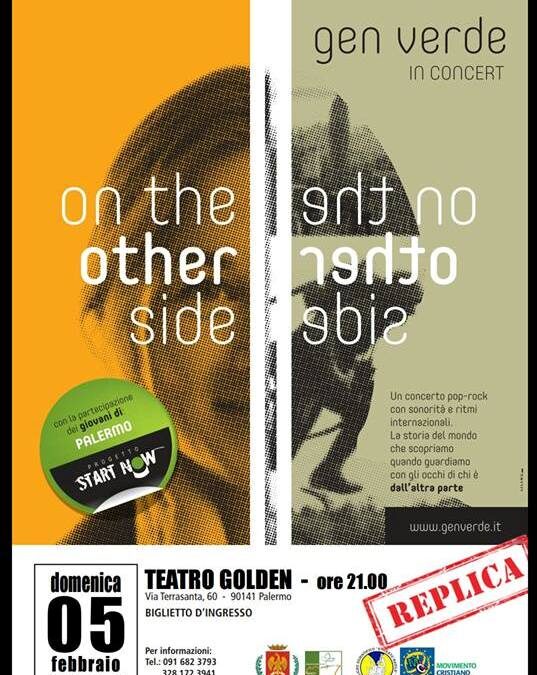
Feb 10, 2017 | Non categorizzato
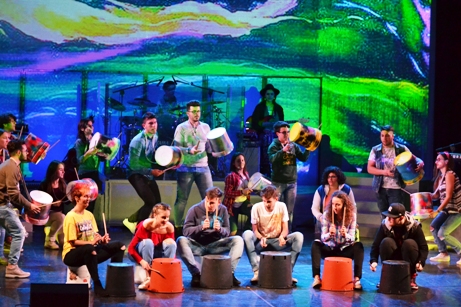 “Fulfilling, happiness, courage, family, unique experience, listening, diversity…” These were some of the keywords left behind in their comments by the teenagers from Liceo Basile school. They were also the main actors in three shows and workshops that kept them involved from January 31st – February 5th in Palermo, Italy. “Now, it’s as if I’ve become one of them, someone with a great ideal, believing that love really can overcome everything and that our hearts don’t have borders,” Irene writes. Ernesto Basile Scientific High School is considered an institutional outpost in Brancaccio, which is the quarter where Father Pino Puglisi had worked. He was murdered by the mafia in 1993 and is now a Blessed. There are social problems in the region and the problem of education is always an open question: the school drop-out rates are far from the national average. For this reason the many projects that are carried out by the school often represent the only way out. They focus on cultivating an awareness in the younger generations that they belong to a community. They also intend to give witness to a better lifestyle that goes against the norm, and to provide the opportunity to reflect on personal choices that can lead in a wrong direction.
“Fulfilling, happiness, courage, family, unique experience, listening, diversity…” These were some of the keywords left behind in their comments by the teenagers from Liceo Basile school. They were also the main actors in three shows and workshops that kept them involved from January 31st – February 5th in Palermo, Italy. “Now, it’s as if I’ve become one of them, someone with a great ideal, believing that love really can overcome everything and that our hearts don’t have borders,” Irene writes. Ernesto Basile Scientific High School is considered an institutional outpost in Brancaccio, which is the quarter where Father Pino Puglisi had worked. He was murdered by the mafia in 1993 and is now a Blessed. There are social problems in the region and the problem of education is always an open question: the school drop-out rates are far from the national average. For this reason the many projects that are carried out by the school often represent the only way out. They focus on cultivating an awareness in the younger generations that they belong to a community. They also intend to give witness to a better lifestyle that goes against the norm, and to provide the opportunity to reflect on personal choices that can lead in a wrong direction. 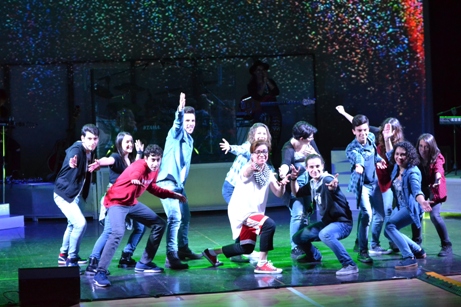 The almost accidental encounter with Gen Verde last May ignited a desire in the young people to make the Start Now project happen in their own school, just as it had in several European and Asian cities. “Tons of enthusiasm” for this event. The workshops that involved hundreds of young people were places to experience their own creativity and discover their own talents. They did side by side with the band members as actors, sharing in the different artistic experiences with mutual listening and respect. PalaOreto, February 3. The young people stepped on stage with Gen Verde in front of a crowd of thousands of teenagers from the schools in the neighborhood. It happened again on the following Sunday at the Golden Theatre.
The almost accidental encounter with Gen Verde last May ignited a desire in the young people to make the Start Now project happen in their own school, just as it had in several European and Asian cities. “Tons of enthusiasm” for this event. The workshops that involved hundreds of young people were places to experience their own creativity and discover their own talents. They did side by side with the band members as actors, sharing in the different artistic experiences with mutual listening and respect. PalaOreto, February 3. The young people stepped on stage with Gen Verde in front of a crowd of thousands of teenagers from the schools in the neighborhood. It happened again on the following Sunday at the Golden Theatre. 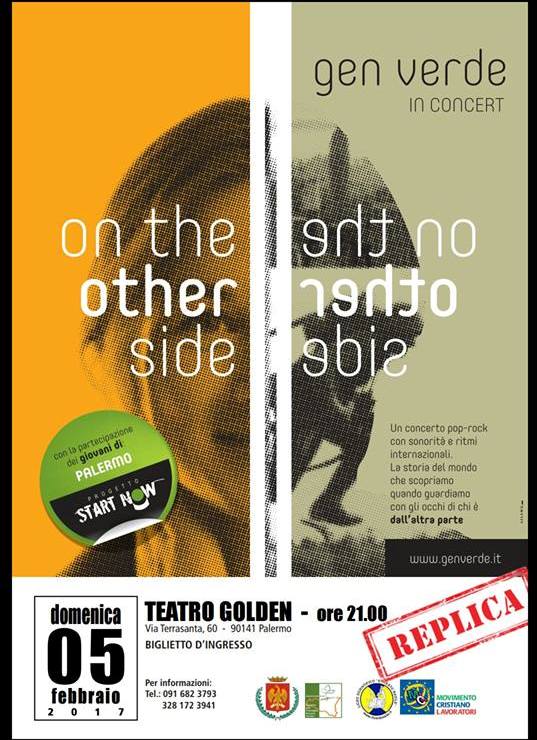 Excited but secure in their performance, they gave the best of themselves in the choreographies, songs, dances and theatre in a way that drew in the audience. Above all, they lived an experience that was unique unto itself, an experience that doesn’t conceive of “walls” and that lifted up the differences and diversity, showing how marginalization can be overcome. “The day after had a sense of nostalgia, but now it was different: It had the sense of a challenge! Good Start to all off us, small warriors on the outskirts!” wrote a teacher on her Facebook page, who helped promote the event. That’s the dream of those who interact with these young people every day, standing against marginalization and uneasiness with creativity and positive stimulation, helping others to not remain closed in their own everyday environments, promoting an inclusive environment at school that embraces all the sides of a person.
Excited but secure in their performance, they gave the best of themselves in the choreographies, songs, dances and theatre in a way that drew in the audience. Above all, they lived an experience that was unique unto itself, an experience that doesn’t conceive of “walls” and that lifted up the differences and diversity, showing how marginalization can be overcome. “The day after had a sense of nostalgia, but now it was different: It had the sense of a challenge! Good Start to all off us, small warriors on the outskirts!” wrote a teacher on her Facebook page, who helped promote the event. That’s the dream of those who interact with these young people every day, standing against marginalization and uneasiness with creativity and positive stimulation, helping others to not remain closed in their own everyday environments, promoting an inclusive environment at school that embraces all the sides of a person.
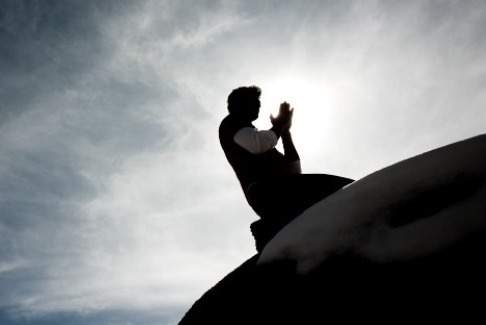
Feb 9, 2017 | Focolare Worldwide
 I was about to finish high school. I have been fascinated by Africa ever since I was a child, and especially when I would listen to the tales of my uncle, a missionary in Congo. I didn’t like the bourgeoisie lifestyle of Belgian society, and the poverty and social injustices diffused in the world. I was interested in the philosophy of Julius Nyerere (whose beatification process is now underway), the first President of Tanzania. His concept of Ujamaa (in Swahili meaning ‘being a family’) was at the base of the socioeconomic development policies which in Tanzania had brought about the construction of a pacific coexistence between tribes and ethnic groups, after Great Britain had granted independence. His thoughts were based on African traditions and examples of the first Christian communities described in the Acts of the Apostles. I applied to enter the White Fathers congregation, not so much due to a vocational choice, but because they worked in Tanzania. We agreed to do a year of acquaintance. Once I got to their mother house at the Lovanio University (Belgium), without their knowing it I had started to take part in an extremely leftist Maoist group. We would organize initiatives in favour of the third-world countries and for the independence of Angola and Mozambique. During a demonstration, the police found my name on one of the fliers and came to interrogate me. I thought that it would be better to change my path completely. Furthermore I was disappointed in my friends, since only I was paying the price of our actions. Instead, the spiritual director invited me to stay and meet a group of students that held monthly meetings in the convent. I had seen them fleetingly, and they seemed to have their minds in the clouds; they spoke of Jesus and the Gospel. But I accepted the invitation. The first time I participated in one of their meetings, I listened in silence. They recounted of how they tried to put the Gospel into practice. In the end they asked me what I thought. «The Gospel has existed for two thousand years, and the world is still full of injustice, exploitation and oppression.» One of them answered: «If you want to change the world, start from yourself.» I didn’t know how to reply. I asked, «From where?» He put the “Word of Life” of that month in my hand: «Do not judge and you will not be judged.» The next day, as much as I tried, I found myself always judging the others. This was not my piece of bread. I went back to meet them, to say that it was impossible not to judge. They exhorted me not to get discouraged and to try again after every failure. I returned home, and prayed to Jesus in the Eucharist: «If You want me to live in this way, help me, since I can’t do anything alone.» When the school year passed, I was sure that the Fathers would ask me to leave. Instead they told me that they had noticed a change in me, and if I wanted, I could start in the novitiate. Through frequent contact with those youths, the gen who lived the communion of good among themselves, and with the help of the Focolare director in Belgium, I found my path and became a missionary. Living for the others gave immense joy and this was how I discovered the great ideal of unity of Chiara Lubich and the Movement. Before leaving for Africa in 1982 I was ordained a priest. The biggest challenge was that of seeking deep dialogue with the local people and practising the art of “making yourself one.” I studied their language and the local culture, to make the people’s customs my very own. I experienced that in the light of the Gospel, all that is beautiful, good and true is raised to a higher level, and the rest slowly disappears.
I was about to finish high school. I have been fascinated by Africa ever since I was a child, and especially when I would listen to the tales of my uncle, a missionary in Congo. I didn’t like the bourgeoisie lifestyle of Belgian society, and the poverty and social injustices diffused in the world. I was interested in the philosophy of Julius Nyerere (whose beatification process is now underway), the first President of Tanzania. His concept of Ujamaa (in Swahili meaning ‘being a family’) was at the base of the socioeconomic development policies which in Tanzania had brought about the construction of a pacific coexistence between tribes and ethnic groups, after Great Britain had granted independence. His thoughts were based on African traditions and examples of the first Christian communities described in the Acts of the Apostles. I applied to enter the White Fathers congregation, not so much due to a vocational choice, but because they worked in Tanzania. We agreed to do a year of acquaintance. Once I got to their mother house at the Lovanio University (Belgium), without their knowing it I had started to take part in an extremely leftist Maoist group. We would organize initiatives in favour of the third-world countries and for the independence of Angola and Mozambique. During a demonstration, the police found my name on one of the fliers and came to interrogate me. I thought that it would be better to change my path completely. Furthermore I was disappointed in my friends, since only I was paying the price of our actions. Instead, the spiritual director invited me to stay and meet a group of students that held monthly meetings in the convent. I had seen them fleetingly, and they seemed to have their minds in the clouds; they spoke of Jesus and the Gospel. But I accepted the invitation. The first time I participated in one of their meetings, I listened in silence. They recounted of how they tried to put the Gospel into practice. In the end they asked me what I thought. «The Gospel has existed for two thousand years, and the world is still full of injustice, exploitation and oppression.» One of them answered: «If you want to change the world, start from yourself.» I didn’t know how to reply. I asked, «From where?» He put the “Word of Life” of that month in my hand: «Do not judge and you will not be judged.» The next day, as much as I tried, I found myself always judging the others. This was not my piece of bread. I went back to meet them, to say that it was impossible not to judge. They exhorted me not to get discouraged and to try again after every failure. I returned home, and prayed to Jesus in the Eucharist: «If You want me to live in this way, help me, since I can’t do anything alone.» When the school year passed, I was sure that the Fathers would ask me to leave. Instead they told me that they had noticed a change in me, and if I wanted, I could start in the novitiate. Through frequent contact with those youths, the gen who lived the communion of good among themselves, and with the help of the Focolare director in Belgium, I found my path and became a missionary. Living for the others gave immense joy and this was how I discovered the great ideal of unity of Chiara Lubich and the Movement. Before leaving for Africa in 1982 I was ordained a priest. The biggest challenge was that of seeking deep dialogue with the local people and practising the art of “making yourself one.” I studied their language and the local culture, to make the people’s customs my very own. I experienced that in the light of the Gospel, all that is beautiful, good and true is raised to a higher level, and the rest slowly disappears.
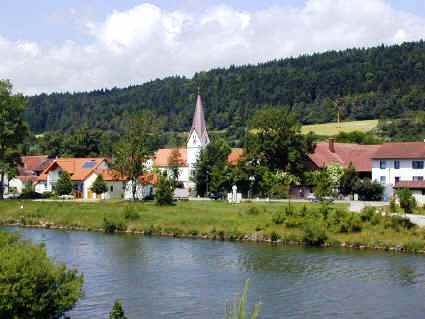
Feb 8, 2017 | Focolare Worldwide
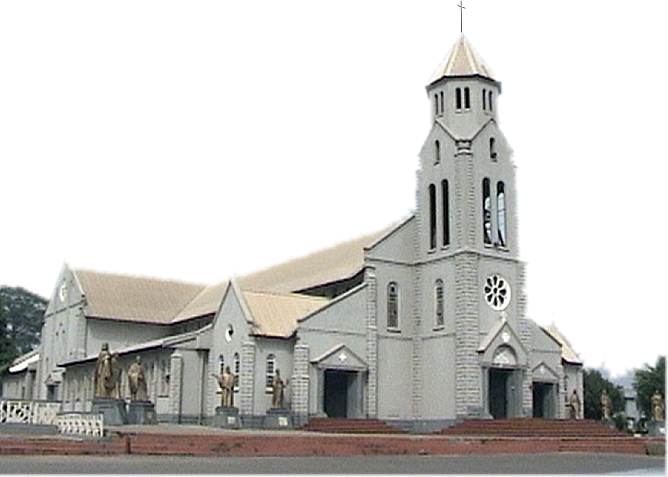 From Onitsha, Nigeria, a report about a prayer service that was held in the churchyard of the Basilica of the Most Blessed Holy Trinity, on January 23 with over a hundred Evanglicals, Pentecostals, Catholics and members of autonomous churches, along with two bishops and several priests of different churches in Nigeria. The event was promoted by the Focolare and included representatives from the CCN (non-denominational churches), OAIC (churches and organisations begun in Africa), PFN (Pentecostal churches), CSN (Catholic Church) and ECWA/TEKAN (Evangelical Churches from the west of Africa and Ghana). Some gathered with the music groups, others prepared the programme booklet and others decorated the churchyard. The teaching was given by an Anglican Pastor who like a “clarion call that would wake up the Christians of Nigeria from their sleep” invited us all to “live as the followers of Christ and to work of unity in diversity.” “We prayed with one soul and one mind,” one girl commented. “I felt the warmth of the Spirit in our midst.” A young man: “Watching people from different churches praying together for unity and peace gave me the certainty that unity will happen, because Jesus himself had asked the Father that all would be one.”
From Onitsha, Nigeria, a report about a prayer service that was held in the churchyard of the Basilica of the Most Blessed Holy Trinity, on January 23 with over a hundred Evanglicals, Pentecostals, Catholics and members of autonomous churches, along with two bishops and several priests of different churches in Nigeria. The event was promoted by the Focolare and included representatives from the CCN (non-denominational churches), OAIC (churches and organisations begun in Africa), PFN (Pentecostal churches), CSN (Catholic Church) and ECWA/TEKAN (Evangelical Churches from the west of Africa and Ghana). Some gathered with the music groups, others prepared the programme booklet and others decorated the churchyard. The teaching was given by an Anglican Pastor who like a “clarion call that would wake up the Christians of Nigeria from their sleep” invited us all to “live as the followers of Christ and to work of unity in diversity.” “We prayed with one soul and one mind,” one girl commented. “I felt the warmth of the Spirit in our midst.” A young man: “Watching people from different churches praying together for unity and peace gave me the certainty that unity will happen, because Jesus himself had asked the Father that all would be one.”  From the Focolare’s ecumenical town in Ottmaring, Germany, on the Week of Prayer for Christian Unity, a gathering was held that included 7 Swedish Lutheran pastors, 4 Anglicans, one English Reformed pastor and 7 Catholic priests. The theme was presented by Lutheran bishop Ake di Skara from Sweden, who highlighted how today Jesus is still drawn to the wounds and darkness of humanity, in order to bring it light. With this in mind everyone moved to the nearby Nazi concentration camp of Dachau, which is an emblematic symbol of the mystery of Jesus Forsaken. There were also several visits to significant sites for the Lutheran faithful in Augsburg, concluding with a break at the Catholic church dedicated to St. Moritz, with its striking image of Christ the Saviour who illuminates the world’s darkness. In an atmosphere of such deep sharing, the liturgical celebrations throughout the week took on an altogether unique sacredness. In the end there was a unanimous desire to: “return to the world where Jesus Forsaken is waiting for me.” “The Church has to be where the wounds of the people are to be found.” “When I get home the first thing I’ll do will be to visit the Lutheran pastor next door.” In Matera, Italy, we met up with Cinzia who, since she embraced the spirituality of unity, has been promoting an ecumenical process in her parish in collaboration with a Lutheran pastor: “They’re beautiful evenings and filled with much joy,” she recounts, “in which what comes to light is not what divides us, but what unites us. An ecumenical choir was born from the 1997 Week of Prayer for Christian Unity, which accompanies the different cultural and humanitarian projects we do together. This year, in collaboration with the associations and movements in the city, we held a march for peace and unity with 300 people from different Christian denominations and from other religions. It was another opportunity to experience the ecumenism of life and to express that deep desire for brotherhood that goes beyond the distinctions.” The parish of Santa Maria in Pesaro, Italy, shares an ecumenical friendship with the Orthodox Cathedral of Resita, Romania, thanks to the parish priests and several lay people who live the spirituality of unity. “This year,” one Romanian Orthodox teenager recounts, “we wanted to take a further step. The young people wanted to be involved in the formation of the children, so we began a course in Pesaro for Catholic and Orthodox animators together where we experience our unity in diversity.” In Cochabamba, Bolivia, the Week of Prayer for Christian Unity was also celebrated by the different movements, including the Focolare. Members of the Anglican, Methodist and Catholic Churches took part in an ecumenical prayer service, with the emeritus bishop who remembered the 500th anniversary of the Reformation and invited everyone to embrace mercy and a renewed commitment to work for unity. See also: Ecumenismo: Settimana dell’unità Settimana dell’unità a L’Avana
From the Focolare’s ecumenical town in Ottmaring, Germany, on the Week of Prayer for Christian Unity, a gathering was held that included 7 Swedish Lutheran pastors, 4 Anglicans, one English Reformed pastor and 7 Catholic priests. The theme was presented by Lutheran bishop Ake di Skara from Sweden, who highlighted how today Jesus is still drawn to the wounds and darkness of humanity, in order to bring it light. With this in mind everyone moved to the nearby Nazi concentration camp of Dachau, which is an emblematic symbol of the mystery of Jesus Forsaken. There were also several visits to significant sites for the Lutheran faithful in Augsburg, concluding with a break at the Catholic church dedicated to St. Moritz, with its striking image of Christ the Saviour who illuminates the world’s darkness. In an atmosphere of such deep sharing, the liturgical celebrations throughout the week took on an altogether unique sacredness. In the end there was a unanimous desire to: “return to the world where Jesus Forsaken is waiting for me.” “The Church has to be where the wounds of the people are to be found.” “When I get home the first thing I’ll do will be to visit the Lutheran pastor next door.” In Matera, Italy, we met up with Cinzia who, since she embraced the spirituality of unity, has been promoting an ecumenical process in her parish in collaboration with a Lutheran pastor: “They’re beautiful evenings and filled with much joy,” she recounts, “in which what comes to light is not what divides us, but what unites us. An ecumenical choir was born from the 1997 Week of Prayer for Christian Unity, which accompanies the different cultural and humanitarian projects we do together. This year, in collaboration with the associations and movements in the city, we held a march for peace and unity with 300 people from different Christian denominations and from other religions. It was another opportunity to experience the ecumenism of life and to express that deep desire for brotherhood that goes beyond the distinctions.” The parish of Santa Maria in Pesaro, Italy, shares an ecumenical friendship with the Orthodox Cathedral of Resita, Romania, thanks to the parish priests and several lay people who live the spirituality of unity. “This year,” one Romanian Orthodox teenager recounts, “we wanted to take a further step. The young people wanted to be involved in the formation of the children, so we began a course in Pesaro for Catholic and Orthodox animators together where we experience our unity in diversity.” In Cochabamba, Bolivia, the Week of Prayer for Christian Unity was also celebrated by the different movements, including the Focolare. Members of the Anglican, Methodist and Catholic Churches took part in an ecumenical prayer service, with the emeritus bishop who remembered the 500th anniversary of the Reformation and invited everyone to embrace mercy and a renewed commitment to work for unity. See also: Ecumenismo: Settimana dell’unità Settimana dell’unità a L’Avana
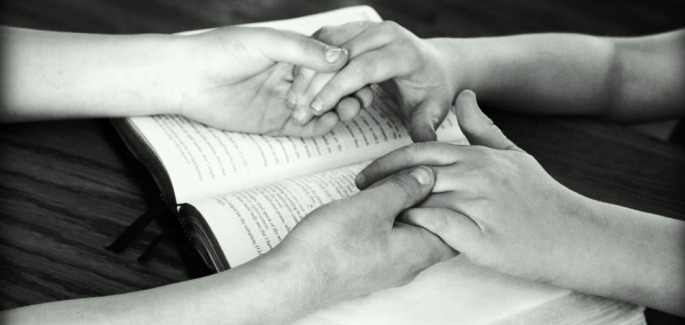
Feb 7, 2017 | Non categorizzato
 Head of the Class Ever since I heard such new things about God-Love I can’t be disturbing at school, doodling at my desk. The teacher even noticed the change in me and appointed me head of the class. Now it’s difficult for me to point out my classmates bad conduct, because I try to see Jesus in them and feel bad when they are punished. One day, since I didn’t, another student went to report three of us. To avoid their punishment, I convinced the teacher to let them clean the classroom, and after class I went to help them. Since then, little by little, the atmosphere in class is beginning to improve. (Victoria – Uganda) Fundraising When I learned that the father of a large poor family needed emergency surgery and didn’t have the money for the operation, some friends and I began a fundraiser with our colleagues at work. When we had the money, I accompanied the father to hospital and paid for the medical treatment. The operation went well. I don’t know who was happier, the family or us! I think that small gestures such as these also help contribute to peace. ( N. Y.- Jordan) In the airport At the baggage control there was a passenger in front of me who was quite upset because he had to leave behind a jar of jam. “Well, at least don’t throw it out, because it’s special!” When I got through baggage control that same person told me that the jam had been made by his mother for her grandchildren. “All her love is in those bottles,” he added. After a silent pause: “Why does the world have to be goverened by fear? Yes, I understand, with all that’s going on . . . but even the social infrastructure itself instills fear and mistrust. Where has the beauty gone in life?” I didn’t have answers, only the same questions. Meanwhile, a little girl was smiling as she passed in front of us in a wheelchair. We looked at her and that happy little face completely silenced us. All you need is a smile and even an aiport gets lit up. (C. M. – Austria) Praying together I was in the oncology department for examinations and treatment. It was an opportunity to love others with small concrete gestures and sharing in their suffering. That day my roomate – a stocky farmer of rude appearance – was about to undergo chemo. Just then he received news from the doctor and nurse that his son had died and the man’s therapy was postponed so that he could return home. I watched as his body bent beneath the tremendous shock. When we were alone and he was preparing his bag and weeping, I gathered my courage and with gentleness and respect asked him if he ever prayed. When he said yes, I invited him to pray the Our Father together for his son. It struck me as I watched that 73 year-old man join his hands and pray. And I thanked God that I dared to ask him to pray together. (Pablo – Philippines)
Head of the Class Ever since I heard such new things about God-Love I can’t be disturbing at school, doodling at my desk. The teacher even noticed the change in me and appointed me head of the class. Now it’s difficult for me to point out my classmates bad conduct, because I try to see Jesus in them and feel bad when they are punished. One day, since I didn’t, another student went to report three of us. To avoid their punishment, I convinced the teacher to let them clean the classroom, and after class I went to help them. Since then, little by little, the atmosphere in class is beginning to improve. (Victoria – Uganda) Fundraising When I learned that the father of a large poor family needed emergency surgery and didn’t have the money for the operation, some friends and I began a fundraiser with our colleagues at work. When we had the money, I accompanied the father to hospital and paid for the medical treatment. The operation went well. I don’t know who was happier, the family or us! I think that small gestures such as these also help contribute to peace. ( N. Y.- Jordan) In the airport At the baggage control there was a passenger in front of me who was quite upset because he had to leave behind a jar of jam. “Well, at least don’t throw it out, because it’s special!” When I got through baggage control that same person told me that the jam had been made by his mother for her grandchildren. “All her love is in those bottles,” he added. After a silent pause: “Why does the world have to be goverened by fear? Yes, I understand, with all that’s going on . . . but even the social infrastructure itself instills fear and mistrust. Where has the beauty gone in life?” I didn’t have answers, only the same questions. Meanwhile, a little girl was smiling as she passed in front of us in a wheelchair. We looked at her and that happy little face completely silenced us. All you need is a smile and even an aiport gets lit up. (C. M. – Austria) Praying together I was in the oncology department for examinations and treatment. It was an opportunity to love others with small concrete gestures and sharing in their suffering. That day my roomate – a stocky farmer of rude appearance – was about to undergo chemo. Just then he received news from the doctor and nurse that his son had died and the man’s therapy was postponed so that he could return home. I watched as his body bent beneath the tremendous shock. When we were alone and he was preparing his bag and weeping, I gathered my courage and with gentleness and respect asked him if he ever prayed. When he said yes, I invited him to pray the Our Father together for his son. It struck me as I watched that 73 year-old man join his hands and pray. And I thanked God that I dared to ask him to pray together. (Pablo – Philippines)
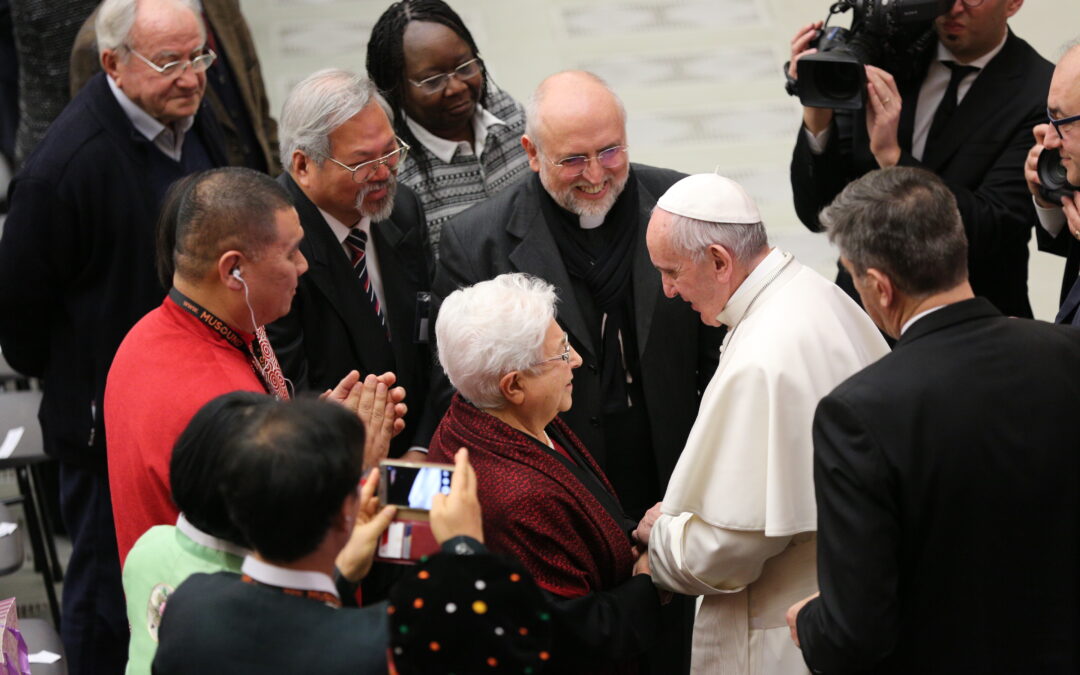
Feb 4, 2017 | Non categorizzato
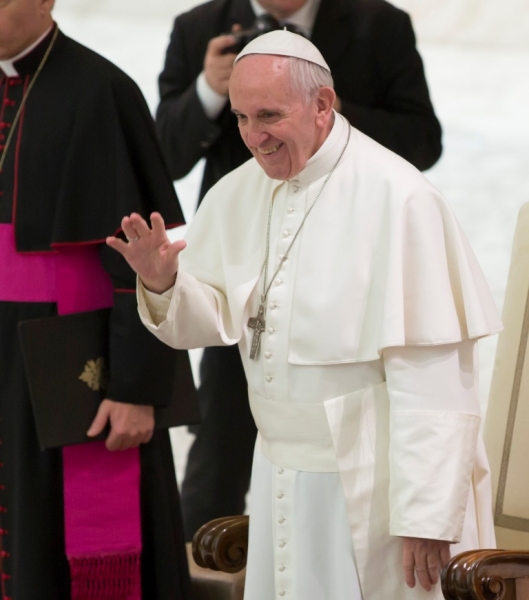 “Economy and communion. These are two words that contemporary culture keeps separate and often considers opposites. Two words that you have instead joined, accepting the invitation that Chiara Lubich offered you 25 years ago in Brazil, when, in the face of the scandal of inequality in the city of Sao Paulo, she asked entrepreneurs to become agents of communion”. Pope Francis said these words in his welcoming speech to 1200 entrepreneurs, young people and scholars who came together to celebrate the 25 years of life of the Economy of Communion. In the opening sentence of his address he said that he was pleased to welcome representatives of a project “in which I have been genuinely interested for some time”. “With your life you demonstrate that economy and communion become more beautiful when they are beside each other. Certainly the economy becomes more beautiful, but communion is also more beautiful, because the spiritual commnuion of hearts is even fuller when it becomes communion of goods, of talents, of profits”.
“Economy and communion. These are two words that contemporary culture keeps separate and often considers opposites. Two words that you have instead joined, accepting the invitation that Chiara Lubich offered you 25 years ago in Brazil, when, in the face of the scandal of inequality in the city of Sao Paulo, she asked entrepreneurs to become agents of communion”. Pope Francis said these words in his welcoming speech to 1200 entrepreneurs, young people and scholars who came together to celebrate the 25 years of life of the Economy of Communion. In the opening sentence of his address he said that he was pleased to welcome representatives of a project “in which I have been genuinely interested for some time”. “With your life you demonstrate that economy and communion become more beautiful when they are beside each other. Certainly the economy becomes more beautiful, but communion is also more beautiful, because the spiritual commnuion of hearts is even fuller when it becomes communion of goods, of talents, of profits”. 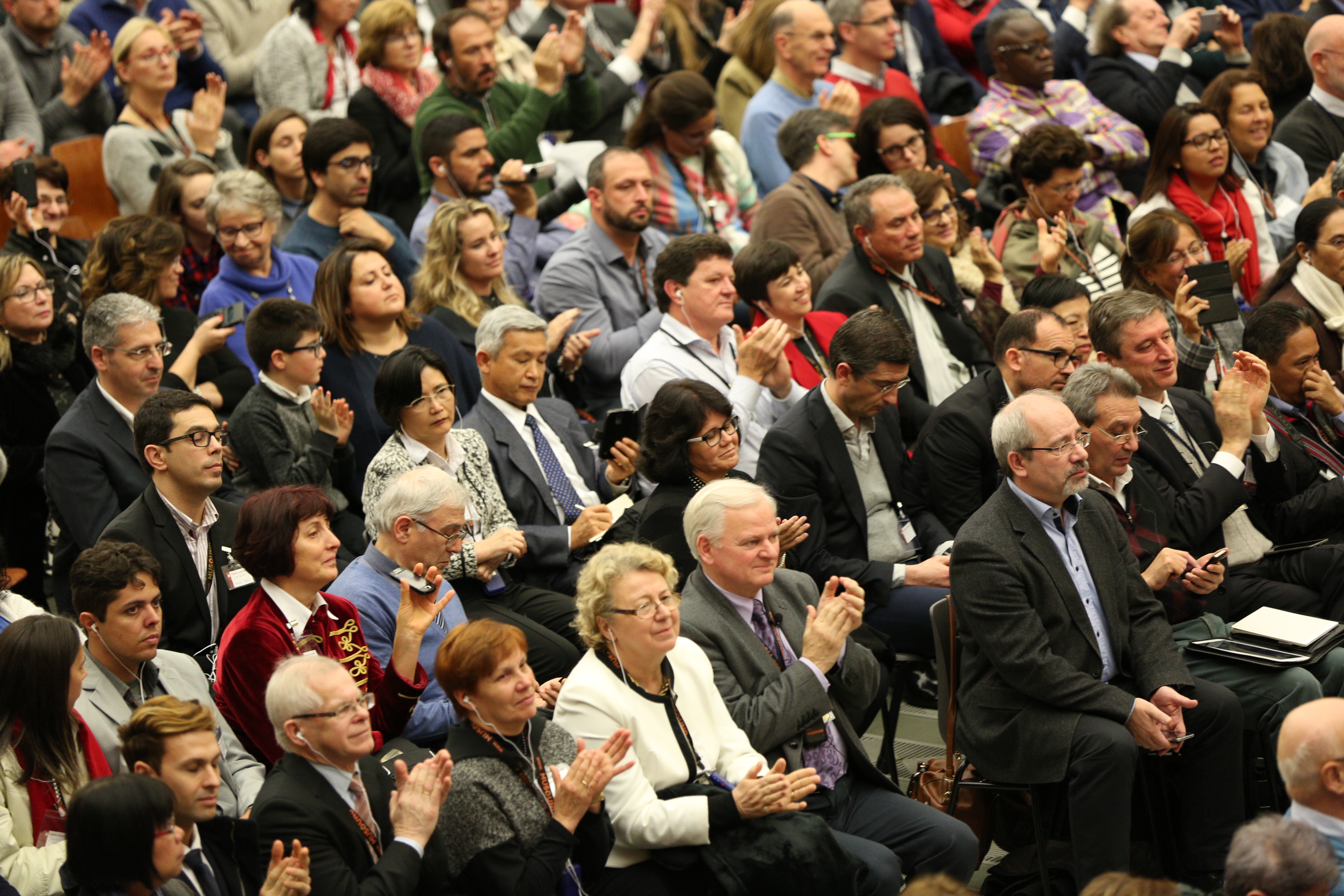 In his message to the extremely attentive gathering, Pope Francis expressed hope and recommendations on three main points. The first concerns money. “It is very important that at the centre of the economy of communion there be the communion of your profits. The Economy of Communion is also the communion of profits, an expression of the communion of life”. “Money”, he said “becomes an idol when it becomes the aim (…). It was Jesus who defined money as a ‘master’: ‘No man can serve two masters”. And he continued: “Thus, one understands the ethical and spiritual value of your choice to pool profits. The best and most practical way to avoid making an idol of money is to share it with others, above all with the poor (…). When you share and donate your profits, you are performing an act of lofty spirituality, saying to money through your deeds: you are not God, you are not lord, you are not master!” The second concerns poverty. “The principal ethical dilemma of this capitalism is the creation of discarded people, then trying to hide them or make sure they are no longer seen (…). Aircraft pollute the atmosphere, but, with a small part of the cost of the ticket, they will plant trees to compensate for the damage created. Gambling companies finance campaigns to care for the pathological gamblers that they create. And the day that the weapons industry finances hospitals to care for the children mutilated by their bombs, the system will have reached its pinnacle. This is hypocrisy!”. Faced with this abominable situation “the Economy of Communion, if it wants to be faithful to its charism, must not only care for victims, but build a system where there are ever fewer victims, where, possibly, there may no longer be any. As long as the economy still produces one victim and there is still a single discarded person, communion has not yet been realized; the celebration of universal fraternity is not full”.
In his message to the extremely attentive gathering, Pope Francis expressed hope and recommendations on three main points. The first concerns money. “It is very important that at the centre of the economy of communion there be the communion of your profits. The Economy of Communion is also the communion of profits, an expression of the communion of life”. “Money”, he said “becomes an idol when it becomes the aim (…). It was Jesus who defined money as a ‘master’: ‘No man can serve two masters”. And he continued: “Thus, one understands the ethical and spiritual value of your choice to pool profits. The best and most practical way to avoid making an idol of money is to share it with others, above all with the poor (…). When you share and donate your profits, you are performing an act of lofty spirituality, saying to money through your deeds: you are not God, you are not lord, you are not master!” The second concerns poverty. “The principal ethical dilemma of this capitalism is the creation of discarded people, then trying to hide them or make sure they are no longer seen (…). Aircraft pollute the atmosphere, but, with a small part of the cost of the ticket, they will plant trees to compensate for the damage created. Gambling companies finance campaigns to care for the pathological gamblers that they create. And the day that the weapons industry finances hospitals to care for the children mutilated by their bombs, the system will have reached its pinnacle. This is hypocrisy!”. Faced with this abominable situation “the Economy of Communion, if it wants to be faithful to its charism, must not only care for victims, but build a system where there are ever fewer victims, where, possibly, there may no longer be any. As long as the economy still produces one victim and there is still a single discarded person, communion has not yet been realized; the celebration of universal fraternity is not full”. 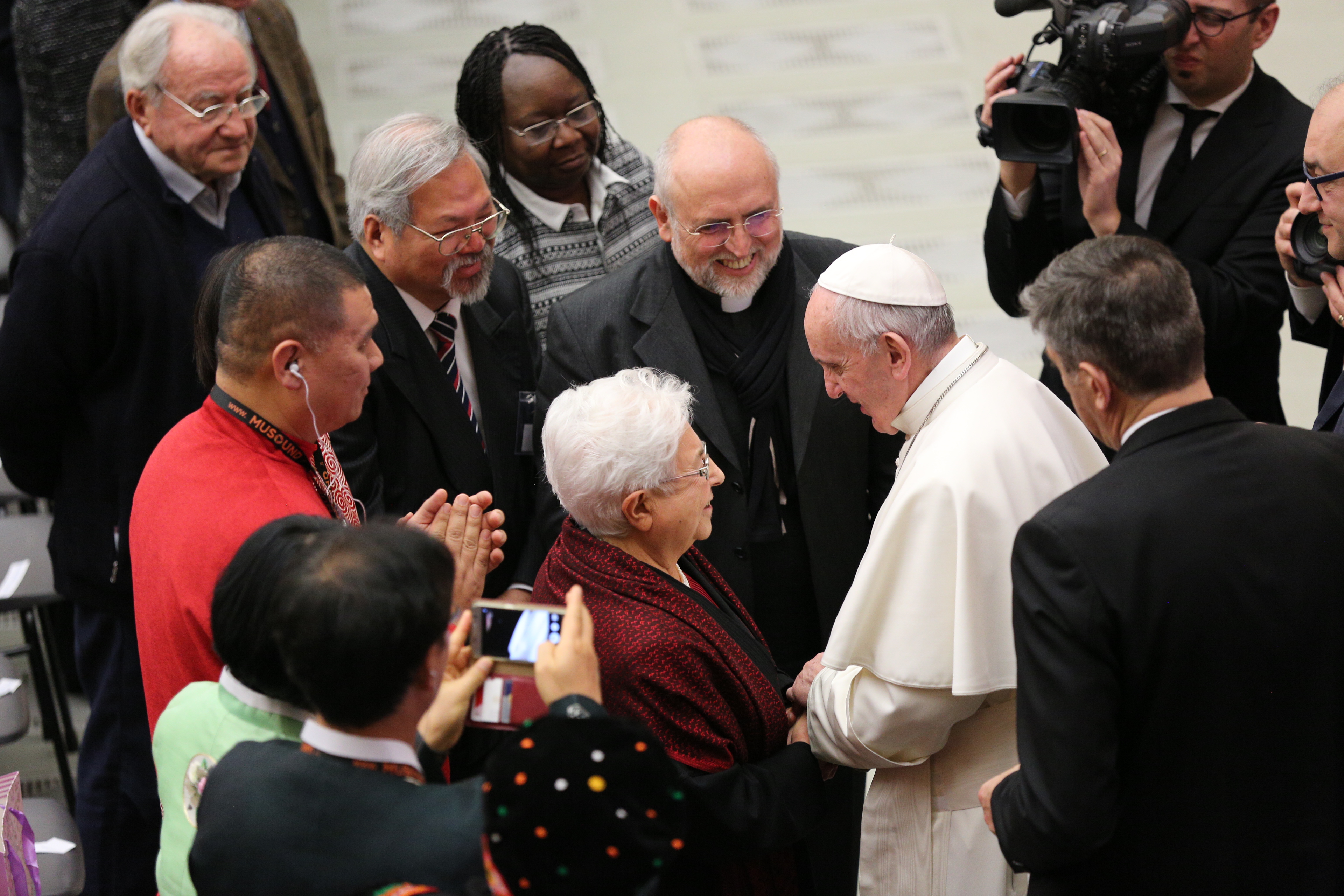 The third point concerns the future. «These 25 years of your history say that communion and business can exist and grow together” , an experience limited to a small number of businesses when compared to the world’s great capital, “but the changes in the order of the spirit and therefore of life are not linked to big numbers. The small flock, the lamp, a coin, a lamb, a pearl, salt, leaven: these are the images of the Kingdom we encounter in the Gospels (…). It is not necessary to be in a large group to change our life: suffice it that the sale and the leaven do not deteriorate (…). Salt does not do its job by increasing in quantity – instead too much salt makes the meal salty – but by saving its ‘spirit’, its quality”. While recalling the time when there were no refrigerators and the mother dough was shared to make bread, the Pope encouraged the Economy of Communion entrepreneurs “not to lose the active ingredient, the ‘enzyme’ of communion”, by living “reciprocity”. “Communion is not only the sharing but also the multiplying goods, the creation of new bread, of new goods, of new Good with a capital ‘G’”. He invited those present to: “Give it to everyone, firstly to the poor and the young (…). Capitalism knows philanthropy, not communion”. At the end of his speech Pope Francis said: “You already do these things. But you can share more profits in order to combat idolatry, change structures in order to prevent the creation of victims ‘ and discarded people; give more of your leaven so as to leaven the bread of many. May the ‘no’ to an economy that kills, become a ‘yes’ to an economy that lets live, because it shares, includes the poor, uses profits to create communion». «I hope you continue on your path, with courage, humilty, and joy…, continue to be the seed, salt and leaven of another economy: the economy of the Kingdom, where the rich know how to share their wealth, and the poor are called “blessed”. This new awareness makes one look ahead with joy and a renewed commitment. Press Releases
The third point concerns the future. «These 25 years of your history say that communion and business can exist and grow together” , an experience limited to a small number of businesses when compared to the world’s great capital, “but the changes in the order of the spirit and therefore of life are not linked to big numbers. The small flock, the lamp, a coin, a lamb, a pearl, salt, leaven: these are the images of the Kingdom we encounter in the Gospels (…). It is not necessary to be in a large group to change our life: suffice it that the sale and the leaven do not deteriorate (…). Salt does not do its job by increasing in quantity – instead too much salt makes the meal salty – but by saving its ‘spirit’, its quality”. While recalling the time when there were no refrigerators and the mother dough was shared to make bread, the Pope encouraged the Economy of Communion entrepreneurs “not to lose the active ingredient, the ‘enzyme’ of communion”, by living “reciprocity”. “Communion is not only the sharing but also the multiplying goods, the creation of new bread, of new goods, of new Good with a capital ‘G’”. He invited those present to: “Give it to everyone, firstly to the poor and the young (…). Capitalism knows philanthropy, not communion”. At the end of his speech Pope Francis said: “You already do these things. But you can share more profits in order to combat idolatry, change structures in order to prevent the creation of victims ‘ and discarded people; give more of your leaven so as to leaven the bread of many. May the ‘no’ to an economy that kills, become a ‘yes’ to an economy that lets live, because it shares, includes the poor, uses profits to create communion». «I hope you continue on your path, with courage, humilty, and joy…, continue to be the seed, salt and leaven of another economy: the economy of the Kingdom, where the rich know how to share their wealth, and the poor are called “blessed”. This new awareness makes one look ahead with joy and a renewed commitment. Press Releases
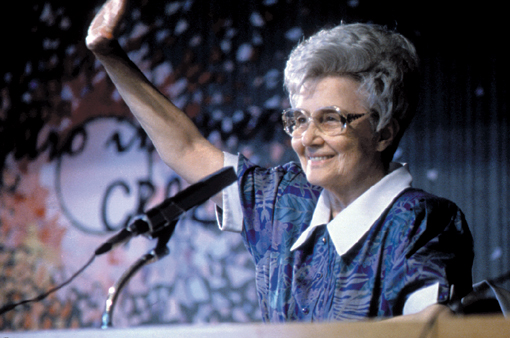
Feb 4, 2017 | Non categorizzato
 “You know that the idea of the Economy of Communion has awakened latent energies in many of us (from the youngest to the oldest). It has prompted important and demanding decisions and shown ways of making what seemed unbelievable dreams come true. You also know it has triggered the mechanism of “giving” so that almost everyone, we can say, is committed in offering services, prayers, energy and money; in offering to move, to give land, homes and jewellery. You know too that seeds of promising business enterprises, aimed at sharing part of their profits with those in need, are already blossoming like a new springtime everywhere. You know that places in which “new people” will be trained are rising up as if by magic and that the little towns are multiplying. Now, in order for everything to grow and mature, we must strengthen this virtue of “giving”, so that it becomes a habit for us. The enthusiasm with which the Economy of Communion began has to remain alive within us and grow. We must not disappoint the great hopes and expectations of the needy, as well as the explicit and often enlightened words of encouragement from religious leaders, economists, business people and other experts. We must keep the Economy of Communion alive in all its aspects, until there is no longer anyone in need among us. Then, there will be a surprising reality that is both human and divine: a whole “body of people” will proclaim God to the world and reveal his presence in history to many, as someone said referring to our project. … So “giving”. … Let’s give always, giving a smile, understanding, forgiveness or a listening ear; let’s give our intelligence, our will and availability; let’s give our time, talents and ideas (every idea is a responsibility); let’s give our actions, experiences and skills; let’s give our goods which we review periodically so that nothing accumulates and everything circulates. Giving: let this be the Word that allows us no respite. We want to live it for the glory of God and to bring back the spirit and practice of the early Christians, who “were of one heart and soul … there was not a needy person among them”. (Acts 4:32-34)” Chiara Lubich (Taken from a telephone conference call with the focolare communities in different parts of the world, 23rd April 1992).
“You know that the idea of the Economy of Communion has awakened latent energies in many of us (from the youngest to the oldest). It has prompted important and demanding decisions and shown ways of making what seemed unbelievable dreams come true. You also know it has triggered the mechanism of “giving” so that almost everyone, we can say, is committed in offering services, prayers, energy and money; in offering to move, to give land, homes and jewellery. You know too that seeds of promising business enterprises, aimed at sharing part of their profits with those in need, are already blossoming like a new springtime everywhere. You know that places in which “new people” will be trained are rising up as if by magic and that the little towns are multiplying. Now, in order for everything to grow and mature, we must strengthen this virtue of “giving”, so that it becomes a habit for us. The enthusiasm with which the Economy of Communion began has to remain alive within us and grow. We must not disappoint the great hopes and expectations of the needy, as well as the explicit and often enlightened words of encouragement from religious leaders, economists, business people and other experts. We must keep the Economy of Communion alive in all its aspects, until there is no longer anyone in need among us. Then, there will be a surprising reality that is both human and divine: a whole “body of people” will proclaim God to the world and reveal his presence in history to many, as someone said referring to our project. … So “giving”. … Let’s give always, giving a smile, understanding, forgiveness or a listening ear; let’s give our intelligence, our will and availability; let’s give our time, talents and ideas (every idea is a responsibility); let’s give our actions, experiences and skills; let’s give our goods which we review periodically so that nothing accumulates and everything circulates. Giving: let this be the Word that allows us no respite. We want to live it for the glory of God and to bring back the spirit and practice of the early Christians, who “were of one heart and soul … there was not a needy person among them”. (Acts 4:32-34)” Chiara Lubich (Taken from a telephone conference call with the focolare communities in different parts of the world, 23rd April 1992).

Feb 3, 2017 | Focolare Worldwide, Senza categoria
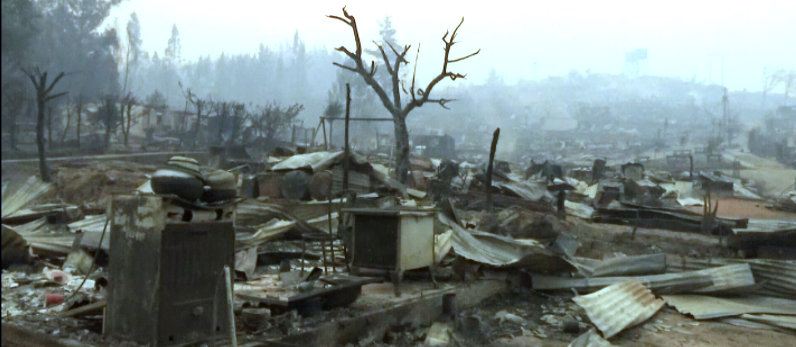 It has been a month since central south Chile has been gripped by wildfires that have swept away half a million of hectares of forest land. Eleven have died and 1,100 have been displaced. Thousands of homes have been burned, mostly in Santa Olga 500 km south of Santiago, a region of 5000 inhabitants that was completely destroyed. The causes of the catastrophe vary: a heat wave with historic temperatures, the dry weather, the intense drought and the winds that have fed the hundreds of fires that broke out in the Andes, backbone of the Americas. It happened within the mountain chain between the Pacific and the Andes that makes the geography of this land very difficult to travel. Some forty air tankers and helicopters and more than 4,500 fire fighters were not able to control so many fronts. Two fully equipped air giants are also at work against the fire: a Boeing 747 Supertanker capable of spreading about 70,000 litres of different liquids, and an Ilyushin-76 that was made available by the Russian government and is capable of launching 30 tons of water. Fire crews have been sent from Argentina, Colombia, Brazil, Peru, Spain, Portugal, France and Venezuela. The number of natural disasters between 2010 until now has been striking, beginning with the 8.8 earthquake followed by a tsunami that caused 535 deaths and millions of Euros in damage. At least three large volcanic eruptions followed all that. In 2015 a new earthquake registered 8.4 on the Richter scale . . . In 2014 and this year wildfires struck the areas around Valparaiso, a port city 115 km from the capital. There were many victims and damages into the 4 millions. It seemed impossible, but in 2015 there was the flooding of the Atacama Desert, the most arid place on earth. The mire carried away entire villages, roads, bridges and 28 people. And now there are more wildfires fanned by the drought… There will be time for investigations into the cause and, in some places, fraud has not been ruled out. But now is time for action. The flames have not been able to devour the solidarity that has been set in motion in so many ways: collections of basic goods, the Hogar de Cristo organization that has launched a 1.8 million dollar fundraiser for rebuilding, and others who have taken on the cost of the Supertanker. One mother who coordinates a collection among families said: “They’re our brothers and sisters, we have to help.” Only a few houses have been left standing in Santa Olga, but a Chilean flag appears over the smouldering rubble, an unfailing sign in the midst of the destruction. It stands for rebuilding and turning to nature again for a place to live, work and fulfil dreams. These souls will work hard with that age old patience of those who create their own history with sweat and tears, enveloped in a natural environment that has nothing to offer them. Alberto Barlocci Latest news from Focolare communities in regions that were hit by the wildfires Marilyn and Juan report: “It’s already been 19 days since, with the help of countries from around the world, we have been fighting against wildfires in south central Chile where many Focolare communities are located. Now, after a superhuman effort, because of the strong winds more than 80 wildfires that are still burning are reigniting fires that had already been put out. Several villages where many F
It has been a month since central south Chile has been gripped by wildfires that have swept away half a million of hectares of forest land. Eleven have died and 1,100 have been displaced. Thousands of homes have been burned, mostly in Santa Olga 500 km south of Santiago, a region of 5000 inhabitants that was completely destroyed. The causes of the catastrophe vary: a heat wave with historic temperatures, the dry weather, the intense drought and the winds that have fed the hundreds of fires that broke out in the Andes, backbone of the Americas. It happened within the mountain chain between the Pacific and the Andes that makes the geography of this land very difficult to travel. Some forty air tankers and helicopters and more than 4,500 fire fighters were not able to control so many fronts. Two fully equipped air giants are also at work against the fire: a Boeing 747 Supertanker capable of spreading about 70,000 litres of different liquids, and an Ilyushin-76 that was made available by the Russian government and is capable of launching 30 tons of water. Fire crews have been sent from Argentina, Colombia, Brazil, Peru, Spain, Portugal, France and Venezuela. The number of natural disasters between 2010 until now has been striking, beginning with the 8.8 earthquake followed by a tsunami that caused 535 deaths and millions of Euros in damage. At least three large volcanic eruptions followed all that. In 2015 a new earthquake registered 8.4 on the Richter scale . . . In 2014 and this year wildfires struck the areas around Valparaiso, a port city 115 km from the capital. There were many victims and damages into the 4 millions. It seemed impossible, but in 2015 there was the flooding of the Atacama Desert, the most arid place on earth. The mire carried away entire villages, roads, bridges and 28 people. And now there are more wildfires fanned by the drought… There will be time for investigations into the cause and, in some places, fraud has not been ruled out. But now is time for action. The flames have not been able to devour the solidarity that has been set in motion in so many ways: collections of basic goods, the Hogar de Cristo organization that has launched a 1.8 million dollar fundraiser for rebuilding, and others who have taken on the cost of the Supertanker. One mother who coordinates a collection among families said: “They’re our brothers and sisters, we have to help.” Only a few houses have been left standing in Santa Olga, but a Chilean flag appears over the smouldering rubble, an unfailing sign in the midst of the destruction. It stands for rebuilding and turning to nature again for a place to live, work and fulfil dreams. These souls will work hard with that age old patience of those who create their own history with sweat and tears, enveloped in a natural environment that has nothing to offer them. Alberto Barlocci Latest news from Focolare communities in regions that were hit by the wildfires Marilyn and Juan report: “It’s already been 19 days since, with the help of countries from around the world, we have been fighting against wildfires in south central Chile where many Focolare communities are located. Now, after a superhuman effort, because of the strong winds more than 80 wildfires that are still burning are reigniting fires that had already been put out. Several villages where many F ocolare families are found have been completely evacuated. For several nights locals along with firefighters and volunteers keep watch in order to keep the fire from growing. There are so many experiences of solidarity especially for people who are on the ground, like Manuel and Silvia, Volunteers from the Focolare who live in Chiguayante, an area completely surrounded by the fire. They were forced to evacuate their house because of the impending danger. Together with their children and neighbours they risked their own lives to “clear” the land so that the fire wouldn’t be able to spread. Even though the situation is now under control, there is always a danger that the wind will change direction. Victoria, Jorge and their three children live in Tomè which is also in danger. With their children and other young people they collected basic goods to share with people who have lost everything, and took those goods to the most isolated regions where it is difficult for help to arrive. Father Alex from the Russian Orthodox Church and a great friend of the Focolare, lives in Hualqui, a small village. He celebrates the Holy Mass in Chiguayante where his community is located. The fires took his village with great force and blocked the roadway so that he had to return on foot to assist the people who were still gripped by fear. There have also been experiences of solidarity in the Focolare communities that are far from the fires. The linked up on whatsapp and in just a few days truckloads of help arrived. We are seeing the great capacity of the people to respond in the face of difficulty with resilience and very touching acts of solidarity. It’s powerful to see the beaming smiles of all the people who have helped, and to feel that there is truly “more joy in giving than in receiving.”Before every action, we renew the unity among ourselves so that we will be more prepared to love the people that are in need. Every night at 22:00 we united in prayer to ask for the miracle of rain, and many others unite with us in this prayer.”
ocolare families are found have been completely evacuated. For several nights locals along with firefighters and volunteers keep watch in order to keep the fire from growing. There are so many experiences of solidarity especially for people who are on the ground, like Manuel and Silvia, Volunteers from the Focolare who live in Chiguayante, an area completely surrounded by the fire. They were forced to evacuate their house because of the impending danger. Together with their children and neighbours they risked their own lives to “clear” the land so that the fire wouldn’t be able to spread. Even though the situation is now under control, there is always a danger that the wind will change direction. Victoria, Jorge and their three children live in Tomè which is also in danger. With their children and other young people they collected basic goods to share with people who have lost everything, and took those goods to the most isolated regions where it is difficult for help to arrive. Father Alex from the Russian Orthodox Church and a great friend of the Focolare, lives in Hualqui, a small village. He celebrates the Holy Mass in Chiguayante where his community is located. The fires took his village with great force and blocked the roadway so that he had to return on foot to assist the people who were still gripped by fear. There have also been experiences of solidarity in the Focolare communities that are far from the fires. The linked up on whatsapp and in just a few days truckloads of help arrived. We are seeing the great capacity of the people to respond in the face of difficulty with resilience and very touching acts of solidarity. It’s powerful to see the beaming smiles of all the people who have helped, and to feel that there is truly “more joy in giving than in receiving.”Before every action, we renew the unity among ourselves so that we will be more prepared to love the people that are in need. Every night at 22:00 we united in prayer to ask for the miracle of rain, and many others unite with us in this prayer.”
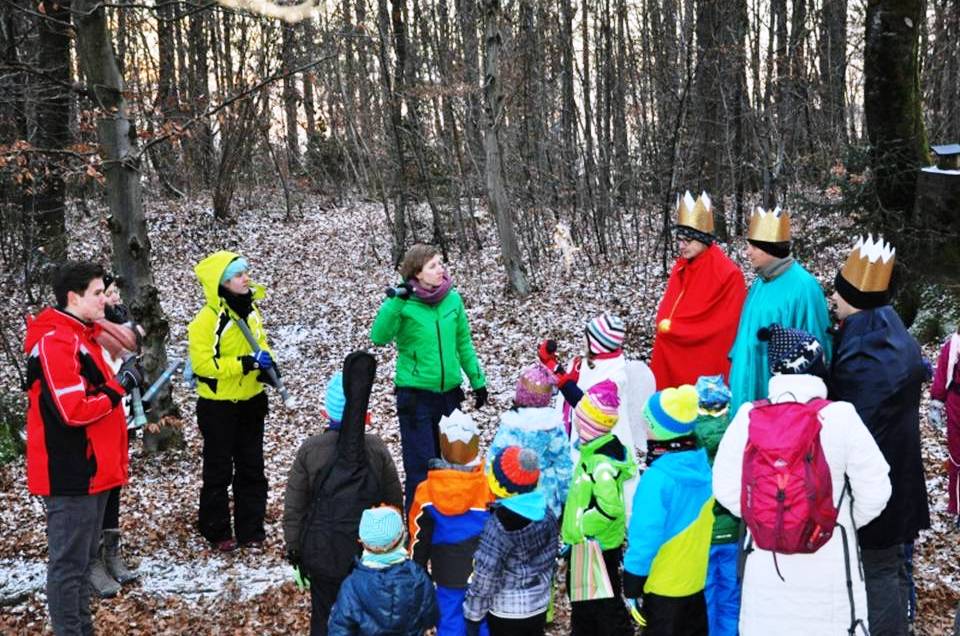
Feb 2, 2017 | Non categorizzato
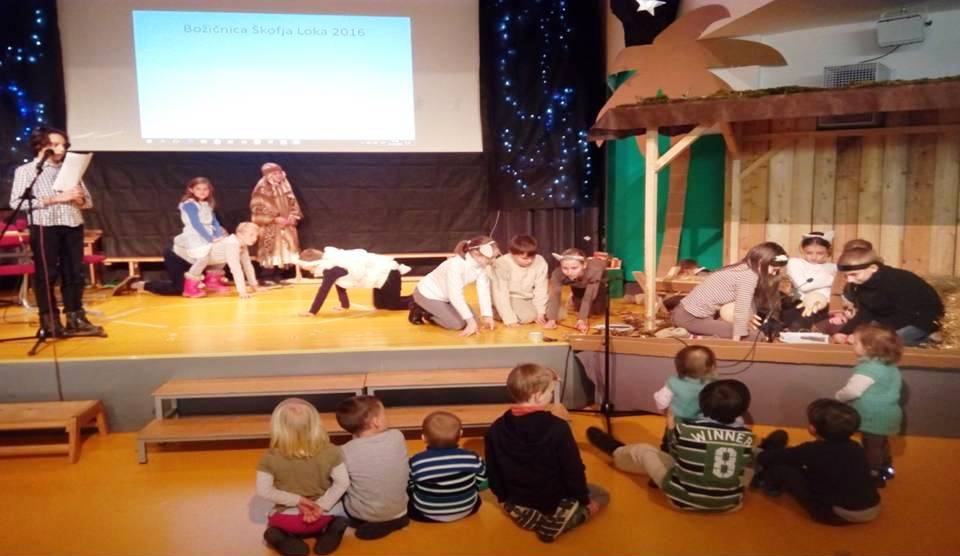 In Slovenia, the Christmas atmosphere is felt already in the first days of December. Many in the Focolare community have learned to make advent wreaths which they sell and then allocate the revenues to social purposes. The feast of St. Nicholas is on 6 December and he goes around with sacks full of gifts on this day. It is an occasion in which families in need are able to experience the fantasy of Divine Providence, through the collection and redistribution of all the surpluses of many families. In the exchange, some detach themselves from objects they are attached to sentimentally, which become gifts for the others, and everyone experiences the typical joy that arises from ”giving.” And while some members of the various communities deliver the proceeds of the wreaths to humanitarian actions in the territory, as they do every year, the Youth for a United World gather at the Arche (the Movement of Jean Vanier) for a unique sharing experience. In other districts, they visit the centre for single mums, bringing joy and warmth to all. The dates of these initiatives are first published on Facebook, extending the invitation to other youths to go out together to gather and distribute gifts.
In Slovenia, the Christmas atmosphere is felt already in the first days of December. Many in the Focolare community have learned to make advent wreaths which they sell and then allocate the revenues to social purposes. The feast of St. Nicholas is on 6 December and he goes around with sacks full of gifts on this day. It is an occasion in which families in need are able to experience the fantasy of Divine Providence, through the collection and redistribution of all the surpluses of many families. In the exchange, some detach themselves from objects they are attached to sentimentally, which become gifts for the others, and everyone experiences the typical joy that arises from ”giving.” And while some members of the various communities deliver the proceeds of the wreaths to humanitarian actions in the territory, as they do every year, the Youth for a United World gather at the Arche (the Movement of Jean Vanier) for a unique sharing experience. In other districts, they visit the centre for single mums, bringing joy and warmth to all. The dates of these initiatives are first published on Facebook, extending the invitation to other youths to go out together to gather and distribute gifts.  The smaller ones instead organise themselves in the streets to offer the little statues of Baby Jesus, that they have handcrafted themselves. It is not a sale, but an awareness campaign to bring the focus to the real protagonist of Christmas. But many leave offerings which they devolve to poor children. This is why they choose the big malls as the location for their campaign, as well as the homes for the aged, of relatives and next-door neighbours, and the midnight masses. In one of the towns, also the mayor went to visit. In a shopping centre, the Gen 4, and bigger kids (Kids for Unity) held a Christmas flashmob, giving a hand to the smaller ones who were thus able to distribute their 125 statuettes. In 18 Slovenian districts, there was also a fixed date for Christmas preparations. The entire community gathered together, with the participation of around 1,300 people, among whom was also a bishop. One of the communities wanted to pass the Epiphany together, and went to visit Baby Jesus in an old church on the hill. The group was accompanied along the trails in the woods by the Magi who also wanted to follow the star. Along the way they came across Herod who begged the Magi to return to him once they had found the Child. But suddenly an angel appeared to invite them to take another route home. This was exactly what the whole group did, choosing an alternative path. After this real-life staging, nobody would ever forget how Baby Jesus was saved from the anger of Herod. Of great significance were the Christmas stage plays held in the two Slovenian kindergartens, which drew inspiration from the educational games of unity: “Sun Ray” of Škofja Loka and “Jurček” in Grosuplje. The latter was held in the city’s Cultural Centre. Though many of those present declared to be agnostics, the intense atmosphere engaged them all. They followed the stage play of the Nativity of Jesus with great attention and in the end many joined in the children’s songs, and no longer wanted to leave.
The smaller ones instead organise themselves in the streets to offer the little statues of Baby Jesus, that they have handcrafted themselves. It is not a sale, but an awareness campaign to bring the focus to the real protagonist of Christmas. But many leave offerings which they devolve to poor children. This is why they choose the big malls as the location for their campaign, as well as the homes for the aged, of relatives and next-door neighbours, and the midnight masses. In one of the towns, also the mayor went to visit. In a shopping centre, the Gen 4, and bigger kids (Kids for Unity) held a Christmas flashmob, giving a hand to the smaller ones who were thus able to distribute their 125 statuettes. In 18 Slovenian districts, there was also a fixed date for Christmas preparations. The entire community gathered together, with the participation of around 1,300 people, among whom was also a bishop. One of the communities wanted to pass the Epiphany together, and went to visit Baby Jesus in an old church on the hill. The group was accompanied along the trails in the woods by the Magi who also wanted to follow the star. Along the way they came across Herod who begged the Magi to return to him once they had found the Child. But suddenly an angel appeared to invite them to take another route home. This was exactly what the whole group did, choosing an alternative path. After this real-life staging, nobody would ever forget how Baby Jesus was saved from the anger of Herod. Of great significance were the Christmas stage plays held in the two Slovenian kindergartens, which drew inspiration from the educational games of unity: “Sun Ray” of Škofja Loka and “Jurček” in Grosuplje. The latter was held in the city’s Cultural Centre. Though many of those present declared to be agnostics, the intense atmosphere engaged them all. They followed the stage play of the Nativity of Jesus with great attention and in the end many joined in the children’s songs, and no longer wanted to leave.
Feb 1, 2017 | Non categorizzato
Theme of the Meeting of Bishops, Friends of the Focolare Movement: «If the world knew Him …» Jesus abandoned on the cross: fundament of the spirituality of communion key to a “culture of encounter” For info: segves@focolare.org – and tel.. 06 947 98150
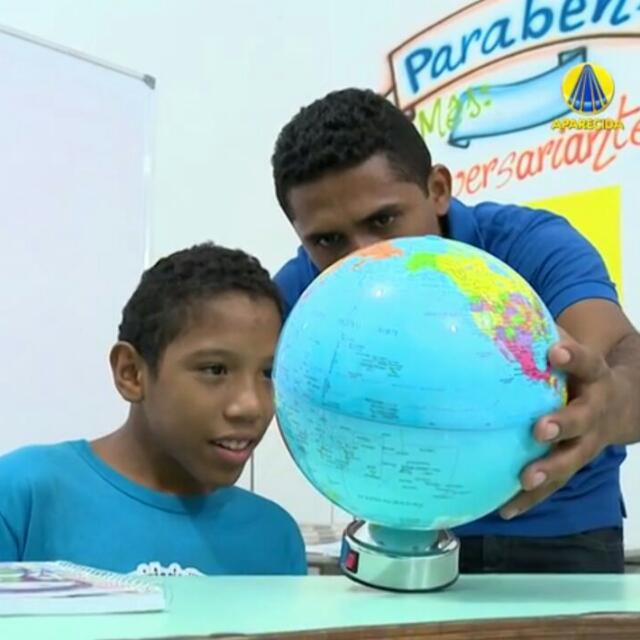
Feb 1, 2017 | Non categorizzato
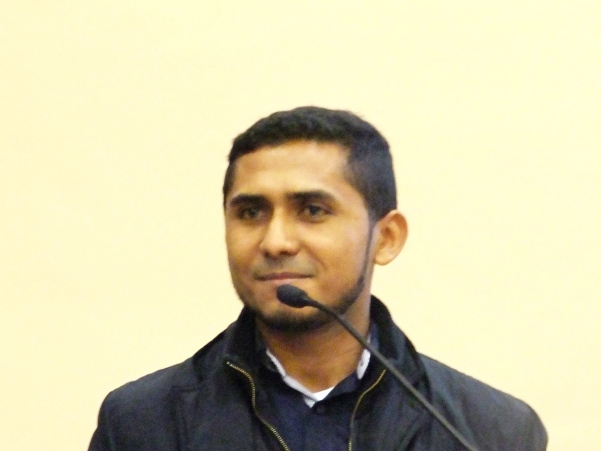 Brazil is a land of contradictions, the emblem of joy, hospitality, folklore, music, pristine nature, beaches, luxorious forests and metropolises oon the one hand. But on the other, like many countries in the world, Brazil is a land of contrasts, criminality and social inequality. Drug traffiking in the city represents a real wound on society that inevitably leads to armed conflicts. In addition, the murder rate among women is high, prostitution, lack of health care, child labour, low level of education, and the spread of slave labour generates high levels of inenquality as in the favellas and in the outlying districts of big cities. Health care and education are not garunteed and young people can’t look forward to an education and a job. Few escape the clutches of cime, thanks mostly to a few public policies and the work of social aid organizations such as parishes and Christian church groups that are really the only ones who have the fate of the poor at heart. Even in my own city with its 800,000 citizens, children between the ages of 13 and 17 have been mudered because of their involvement with drugs. My desire to love my neighbor, to give myself especially to the people that have been rejected by society, led me to be involved for five years, in the spirit of the Focolare, with a social project years in the diocese of Teresina: “The New Youth Community Centre.”
Brazil is a land of contradictions, the emblem of joy, hospitality, folklore, music, pristine nature, beaches, luxorious forests and metropolises oon the one hand. But on the other, like many countries in the world, Brazil is a land of contrasts, criminality and social inequality. Drug traffiking in the city represents a real wound on society that inevitably leads to armed conflicts. In addition, the murder rate among women is high, prostitution, lack of health care, child labour, low level of education, and the spread of slave labour generates high levels of inenquality as in the favellas and in the outlying districts of big cities. Health care and education are not garunteed and young people can’t look forward to an education and a job. Few escape the clutches of cime, thanks mostly to a few public policies and the work of social aid organizations such as parishes and Christian church groups that are really the only ones who have the fate of the poor at heart. Even in my own city with its 800,000 citizens, children between the ages of 13 and 17 have been mudered because of their involvement with drugs. My desire to love my neighbor, to give myself especially to the people that have been rejected by society, led me to be involved for five years, in the spirit of the Focolare, with a social project years in the diocese of Teresina: “The New Youth Community Centre.”  The project, which is geared towards at-risk children and teenagers, tries to provide alternative opportunities. Eighty children and teenagers (betweeen the ages of 5 and 17) attend music, dance and theatre classes. They receive tutoring and are provided with hot meals, since they often don’t find food in their homes. Their lives change when they come into contact with people who welcome and care for them. I also tried to be involved, listening to many young people who have shared their suffering with me. One boy told me about his drug problem and asked me to help him out of the tunnel. Another told me how he steals in order to get money. We often involve the professionals who work there, such as psychologists and social workers. Now many of the children are grown, they study and have found honest work. Others continue to arrive in search of an opportunity at a better life, of being loved and cared for. One of them who had been abandoned by his father, called me “Dad” and so I took on this role One boy had suffered various forms of violence and neglect. We found a way to channel his energy, by introducing him to judo, and that changed him for the better. He became a source of pride for all of us who had helped him. But one day he didn’t show up at the centre. We learned that he had become involved in some ugly ways and, one day, as he sat in front of his house was murdered. He had just turned 15. It was a big suffering for all of us, also for me because of the friendship we had built. Many other teenagers suffer the same fate. The project foresees also moments of training for educators and young people, according to the Chiara Lubich‘s spirituality, with monthly meetings of the Word of Life. What I got out of this experience is that continuity is required for recovering these boys, working in synchrony with the State, public institutions of education and health, with civil society, and with the church. To win this challenge we need to create networks and dialogue at every level: personal, group, community, all the way to the highest levels of society. But it all begins with me, moving beyond myself and going out to encounter the many peripheries. We’ve already begun.
The project, which is geared towards at-risk children and teenagers, tries to provide alternative opportunities. Eighty children and teenagers (betweeen the ages of 5 and 17) attend music, dance and theatre classes. They receive tutoring and are provided with hot meals, since they often don’t find food in their homes. Their lives change when they come into contact with people who welcome and care for them. I also tried to be involved, listening to many young people who have shared their suffering with me. One boy told me about his drug problem and asked me to help him out of the tunnel. Another told me how he steals in order to get money. We often involve the professionals who work there, such as psychologists and social workers. Now many of the children are grown, they study and have found honest work. Others continue to arrive in search of an opportunity at a better life, of being loved and cared for. One of them who had been abandoned by his father, called me “Dad” and so I took on this role One boy had suffered various forms of violence and neglect. We found a way to channel his energy, by introducing him to judo, and that changed him for the better. He became a source of pride for all of us who had helped him. But one day he didn’t show up at the centre. We learned that he had become involved in some ugly ways and, one day, as he sat in front of his house was murdered. He had just turned 15. It was a big suffering for all of us, also for me because of the friendship we had built. Many other teenagers suffer the same fate. The project foresees also moments of training for educators and young people, according to the Chiara Lubich‘s spirituality, with monthly meetings of the Word of Life. What I got out of this experience is that continuity is required for recovering these boys, working in synchrony with the State, public institutions of education and health, with civil society, and with the church. To win this challenge we need to create networks and dialogue at every level: personal, group, community, all the way to the highest levels of society. But it all begins with me, moving beyond myself and going out to encounter the many peripheries. We’ve already begun.
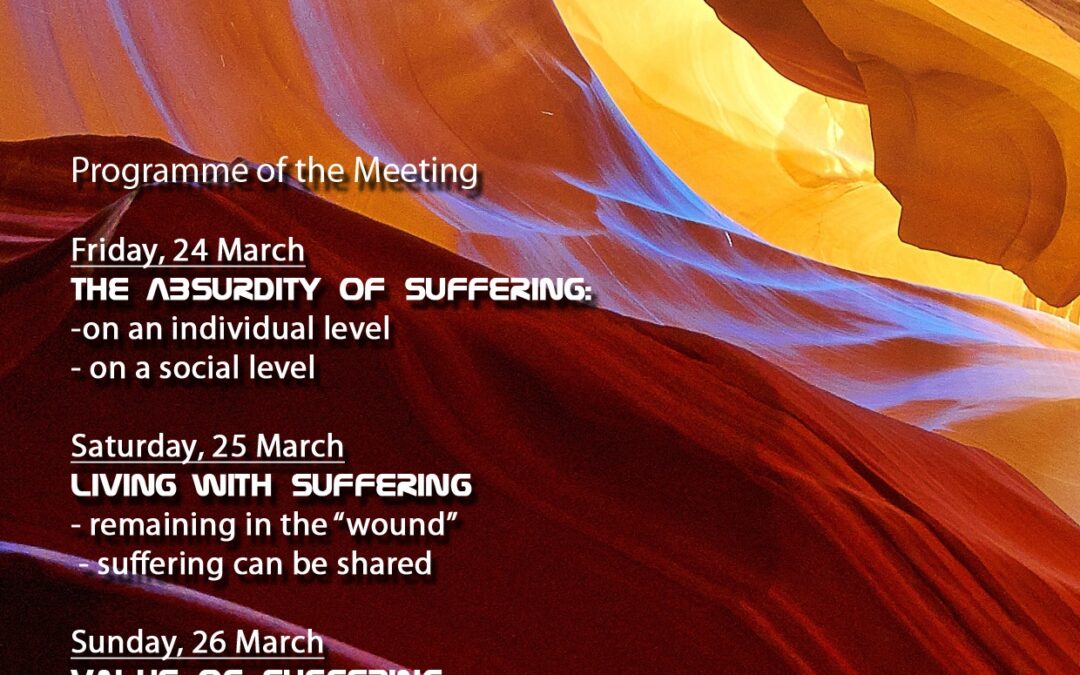
Jan 30, 2017 | Non categorizzato
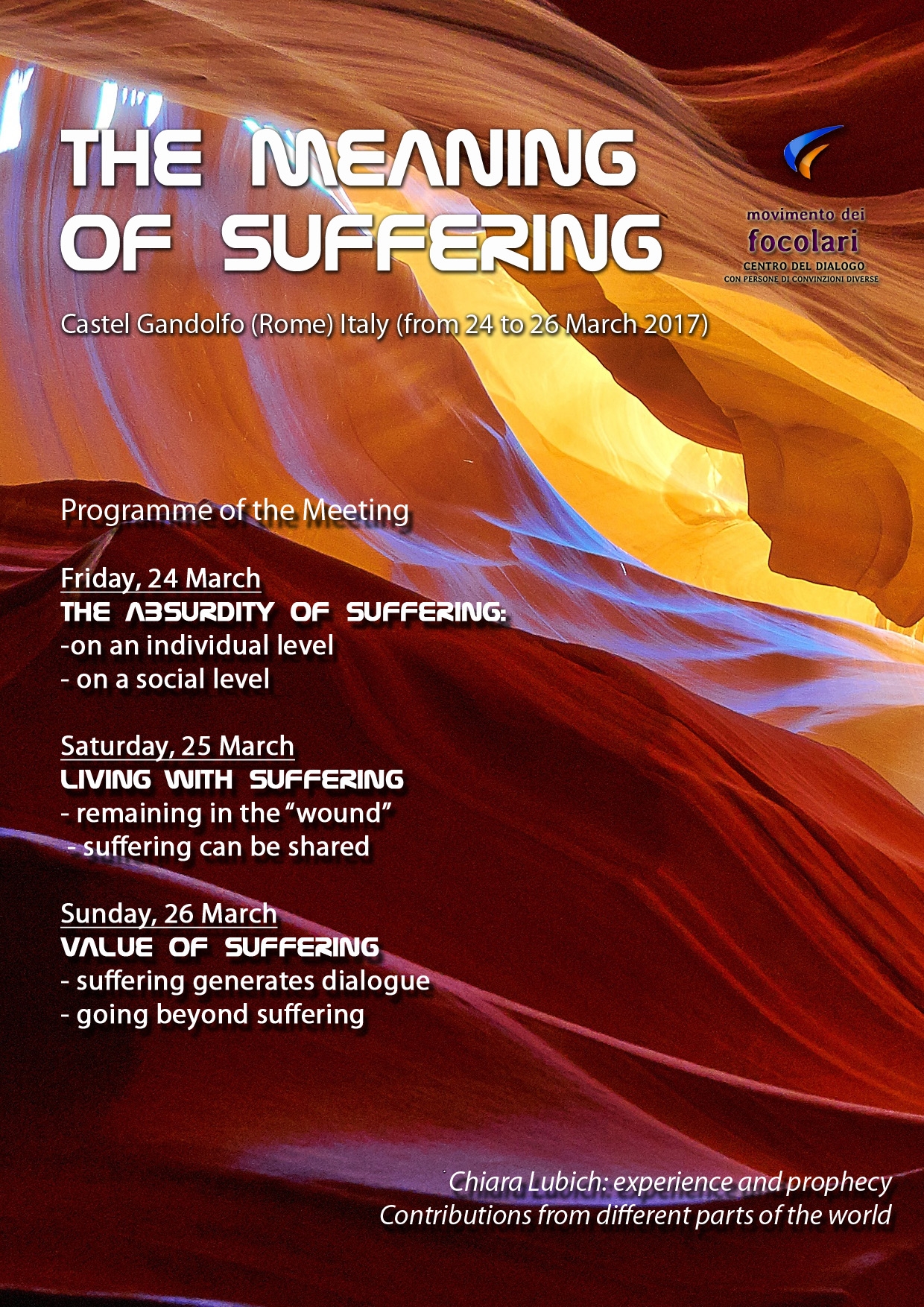 The program will focus on these themes: The absurdity of suffering on an individual and social level Living with suffering The value of suffering There will be input from various geographic regions and from various disciplines: psychology, medicine, philosophy, art, through personal experiences given by people of different age-groups. Bookings can be made through the Centre for Dialogue with Persons of no Religious Affiliation Focolare Movement, Via Frascati 306, 00040 Rocca di Papa (Rome), Italy Email: centrodialogo@focolare.org Tel: +39 06 94798-343
The program will focus on these themes: The absurdity of suffering on an individual and social level Living with suffering The value of suffering There will be input from various geographic regions and from various disciplines: psychology, medicine, philosophy, art, through personal experiences given by people of different age-groups. Bookings can be made through the Centre for Dialogue with Persons of no Religious Affiliation Focolare Movement, Via Frascati 306, 00040 Rocca di Papa (Rome), Italy Email: centrodialogo@focolare.org Tel: +39 06 94798-343
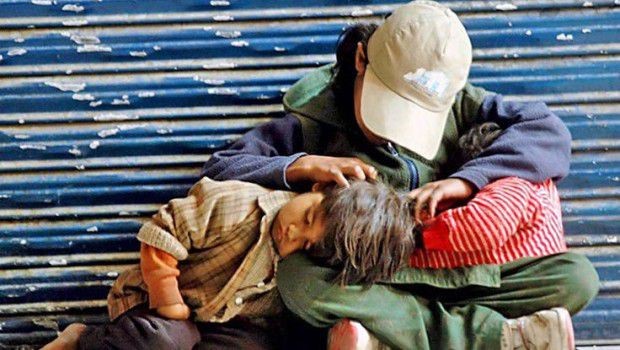
Jan 30, 2017 | Non categorizzato
Eight people own as much as the poorest half of the world’s population. This is what Oxfam Report 2017 says. Runaway inequality is condemning hundreds of millions of people to poverty and highlighting the iniquity of the current economic system. In this complex situation, the Economy of Communion may be considered as a prophetic sign. It originated in May 1991, in Brazil as a reaction to the scandalous situation of the favelas that surround the city of San Paolo. Chiara Lubich invited a first group of entrepreneurs to set up businesses that follow the market laws and produce profits “which would be freely put in common”. Its aim is to help the poor, create jobs and promote the culture of giving as an alternative to the culture of having.  Since then, 25 years have passed. And on Saturday, February 4, 2017, 1100 people involved in the Economy of Communion (EoC) will meet Pope Francis at Paul VI Hall. The majority of them are entrepreneurs, men and women, who chose communion as away of life, personally and also in the running of their businesses. They will be joined by students, scholars and professors, who, through research and academic activity, aim at laying a theoratical foundation to the inspiration economy/communion . These participants come from different countries and various backgrounds, and this shows that the EoC can establish itself in any geographical and cultural environment, rich and poor. Many participants will come from the continent of Asia: China, Korea, the Philippines, Hong Kong, India, Malaysia, Singapore, Thailand and Vietnam. Africa will be presented by participants from Burkina Faso, Burundi, Cameroon, Ivory Coast, Ethiopia, Uganda, Nigeria and the Democratic Republic of Congo. Entrepreneurs from North and South America will come from 11 different countries, namely, Argentina, Bolivia, Brazil, Canada, Chile, Cuba, Mexico, Panama, Paraguay, Uruguay and USA. European participants are many and they come from 20 different countries. Oceania will be present with Australia. Maria Voce, the president of the Focolare Movement together its General Council will also be present. These participants want, first of all, to thank Pope Francis for his teachings and actions that highlight the dignity of the poor and the excluded. At the same time, this assembly would like to present to the Pope some fruits of the EoC, that has been facing challenges and crises that afflict the world since its very start. Today, the EoC animates industrial parks in Europe and Latin America, generates a life of communion in more than eight hundred companies, helps several thousands of people in need and sees to the education of their children, develops a cultural reflection that contributes towards rethinking about economic practices such as reciprocity, gift, gratuity and the idea of market. New projects are also being carried out:
Since then, 25 years have passed. And on Saturday, February 4, 2017, 1100 people involved in the Economy of Communion (EoC) will meet Pope Francis at Paul VI Hall. The majority of them are entrepreneurs, men and women, who chose communion as away of life, personally and also in the running of their businesses. They will be joined by students, scholars and professors, who, through research and academic activity, aim at laying a theoratical foundation to the inspiration economy/communion . These participants come from different countries and various backgrounds, and this shows that the EoC can establish itself in any geographical and cultural environment, rich and poor. Many participants will come from the continent of Asia: China, Korea, the Philippines, Hong Kong, India, Malaysia, Singapore, Thailand and Vietnam. Africa will be presented by participants from Burkina Faso, Burundi, Cameroon, Ivory Coast, Ethiopia, Uganda, Nigeria and the Democratic Republic of Congo. Entrepreneurs from North and South America will come from 11 different countries, namely, Argentina, Bolivia, Brazil, Canada, Chile, Cuba, Mexico, Panama, Paraguay, Uruguay and USA. European participants are many and they come from 20 different countries. Oceania will be present with Australia. Maria Voce, the president of the Focolare Movement together its General Council will also be present. These participants want, first of all, to thank Pope Francis for his teachings and actions that highlight the dignity of the poor and the excluded. At the same time, this assembly would like to present to the Pope some fruits of the EoC, that has been facing challenges and crises that afflict the world since its very start. Today, the EoC animates industrial parks in Europe and Latin America, generates a life of communion in more than eight hundred companies, helps several thousands of people in need and sees to the education of their children, develops a cultural reflection that contributes towards rethinking about economic practices such as reciprocity, gift, gratuity and the idea of market. New projects are also being carried out:
- an international network (Economy of Communion Incubating International Network – EOC-IIN) with hubs in industrial parks (and also in other places) to support young entrepreneurs. These hubs are already functioning in Cameroon, Portugal, Croatia, Mexico and Brazil. 100 young people living in vulnerable situations are being trained through a successfully run partnership in which social and civil economy organizations are involved. Workshops are currently taking place in Portugal and Mexico to train youth in an entrepreneurship “of communion”. Collaboration with academic institutions is also present as, e.g. with the University of Puebla (Mexico) for the development of projects for an indigenous community.
- An Observatory on Poverty that gathers information about the best practices in the struggle against poverty and develops an approach inspired by the values of communion and reciprocity.
These and other topics will be dealt with during the three working conferences to be held from 1-5 February at the Mariapolis Centre of Castelgandolfo (Rome). Tracks and projects for 2018-2020 will be defined. “If we decide to look at the world with the poor and the discarded” says Luigino Bruni, economist and international coordinator of the Economy of Communion, “we cannot stay on the pedestal; we have to come down and be with the victims, we have to fight for them, fight with them. In return, we will get new eyes, we will see things others do not see; sometimes we see horrible things; other times we see things of infinite beauty. The EoC has been doing this for 25 years. If it wants to survive, it must keep on doing it every day, better and more”. Press release Edc online
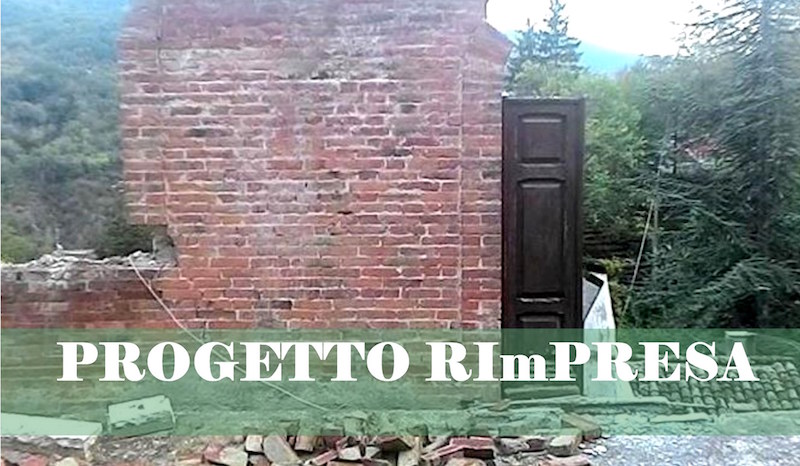
Jan 30, 2017 | Non categorizzato
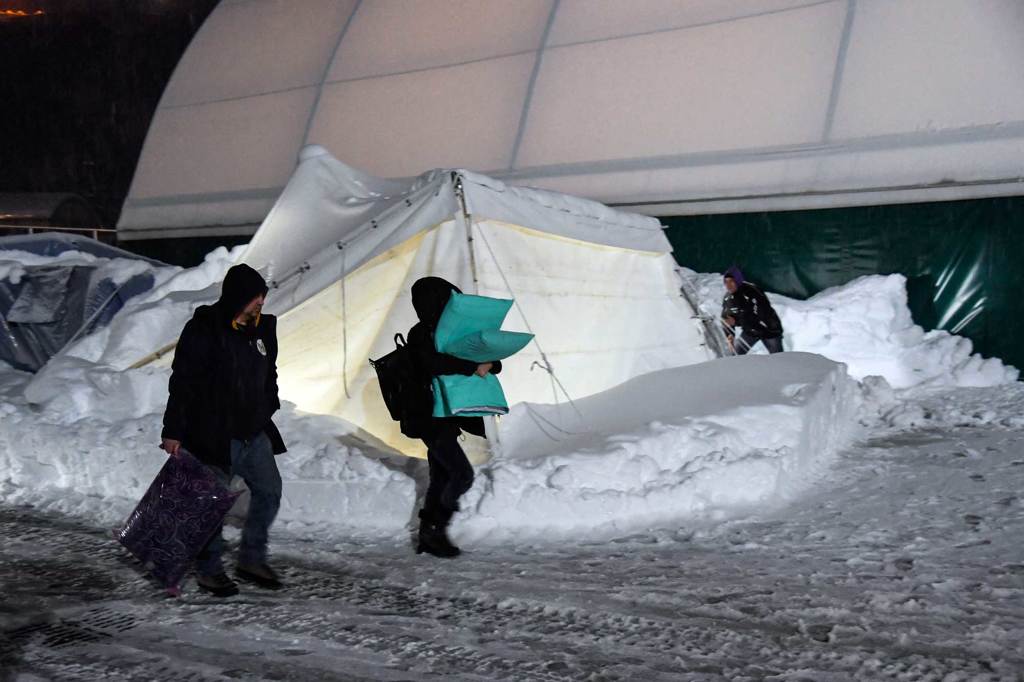 “It’s like being in a war. There are police, civil protection agencies, the Red Cross, and so on. Last night we had supper with a family of six, whose sons are boys scouts with our son. Their house is damaged and their sleeping under the canopy. Our family has grown, but also our hearts. From a tank of gas for those who were without energy to shovelling out a neighbour after the snowfall, we are having an experience of brotherhood. Up until ysterday we were among the ones asking for help. Then the lights came on and we turned out attention towards those who are in need. At the end of our lives we won’t be asked whether we were believers, but whether we were credible!” These are the reports coming to us from our friends that were hit by the latest earthquake which, since last August 24th has been shaking Italy, which is now covered in a thick blanket of snow. The earthquakes have been followed by other earthquakes that have caused avalanches, landslides and loss of life. That was the case for the fire fighters who raced to the hotel that was buried in snow, or the civil volunteers who are here from alll over Italy. The RImPresa Project is also focusing on a particular aspect of the seemingly endless emergency, that is, the support network that for several months has been providing logistical support along the ancient Salaria way, to many small rural centres whose economies are based mainly on agriculture raising livestock.
“It’s like being in a war. There are police, civil protection agencies, the Red Cross, and so on. Last night we had supper with a family of six, whose sons are boys scouts with our son. Their house is damaged and their sleeping under the canopy. Our family has grown, but also our hearts. From a tank of gas for those who were without energy to shovelling out a neighbour after the snowfall, we are having an experience of brotherhood. Up until ysterday we were among the ones asking for help. Then the lights came on and we turned out attention towards those who are in need. At the end of our lives we won’t be asked whether we were believers, but whether we were credible!” These are the reports coming to us from our friends that were hit by the latest earthquake which, since last August 24th has been shaking Italy, which is now covered in a thick blanket of snow. The earthquakes have been followed by other earthquakes that have caused avalanches, landslides and loss of life. That was the case for the fire fighters who raced to the hotel that was buried in snow, or the civil volunteers who are here from alll over Italy. The RImPresa Project is also focusing on a particular aspect of the seemingly endless emergency, that is, the support network that for several months has been providing logistical support along the ancient Salaria way, to many small rural centres whose economies are based mainly on agriculture raising livestock.  The RImPRESA project, which is promoted by the AMU, the AIPEC Business Owners Association, AFN Onlus, Planetary Embrace, B&F Foundation and the Focolare Movement is now in full operation. There are suppliers, raw material businesses, machinery and provisional infrastructure companies, 4 (GAS) purchasing groups from other Italian cities who are all working to create a user and consumption base outside the areas affected by the earthquake. The eighty families involved so far will soon be able to buy the products from the companies through an IT platform that will send their order. The products will be delivered once a week. The intent of GAS – far from providing welfare – is to encourage a reciprocity and involvement by all the participants. The project includes the creation of a “Reciprocity Fund” from which the selected families will receive a grant for the restart of their production activities. They in turn will agree help support businesses, once the condition of their own businesses allow it. For more information: www.amu-it.eu See: Earthquake in Italy: three hours under the rubble “Toulouse for Italy” Concert Christmas among earthquake victims in Centra Italy
The RImPRESA project, which is promoted by the AMU, the AIPEC Business Owners Association, AFN Onlus, Planetary Embrace, B&F Foundation and the Focolare Movement is now in full operation. There are suppliers, raw material businesses, machinery and provisional infrastructure companies, 4 (GAS) purchasing groups from other Italian cities who are all working to create a user and consumption base outside the areas affected by the earthquake. The eighty families involved so far will soon be able to buy the products from the companies through an IT platform that will send their order. The products will be delivered once a week. The intent of GAS – far from providing welfare – is to encourage a reciprocity and involvement by all the participants. The project includes the creation of a “Reciprocity Fund” from which the selected families will receive a grant for the restart of their production activities. They in turn will agree help support businesses, once the condition of their own businesses allow it. For more information: www.amu-it.eu See: Earthquake in Italy: three hours under the rubble “Toulouse for Italy” Concert Christmas among earthquake victims in Centra Italy
Jan 28, 2017 | Non categorizzato, Word of
The word ‘heart’ makes us think of affections, feelings and passions. However, for the bible writers it meant much more. Together with the spirit, the heart is the centre both of life and of the person; it is the place where decisions are made, the place of our inner life, our spiritual life. A heart of flesh is docile to the word of God and allows itself to be guided by the word, giving rise to “peaceful thoughts” about others. Instead, a heart of stone is closed in on itself and is unable to listen or be merciful. Do we really need a new heart and a new spirit? It is enough to look around and see the violence, corruption and wars that are caused by hearts of stone which are not open to God’s plan for creation. If we look honestly within ourselves, we can see that we are often motivated by selfish wants. Does love truly guide our decisions? Are we guided by what is good for others? Seeing our impoverished humanity, God was moved to compassion. He knows us better than we know ourselves and he knows we need a new heart. He promised this to the Prophet Ezekiel, thinking not only of individuals but of all his people. God’s dream is to recreate one large family of peoples, as was his original intention, which is guided by the law of mutual love. History has often shown that while, on the one hand, we cannot fulfill God’s plan on our own, on the other He has never tired of getting involved, to the point of promising that he himself would give us a new heart and a new spirit. He kept his promise to the full when he sent his Son on earth and when he poured out his Spirit on the day of Pentecost. A community began – the first Christian community in Jerusalem – which was an icon of humankind living as “one heart and one soul”. All of us, you who are reading or listening to this commentary on the Word of Life and I who am writing it, are called to be part of this new humanity. Moreover, we are called to edify this new humanity around us, bringing it into the places where we live and work. What a great mission has been given to us and how great is God’s trust in us! Instead of feeling depressed at seeing how corrupt society seems to be; instead of resigning ourselves to evils that are bigger than us, and shutting it all out as if we were not concerned, let’s widen our hearts “according to the measure of the heart of Jesus. How much work that means! Yet this is the only thing necessary.” This is what Chiara Lubich asked us to do and she went on saying: “It means loving everyone we meet as God loves them. And since we live in time, we must love our neighbors one by one, without holding in our heart any left-over affection for the brother or sister met a moment before”. Let’s not trust in our own strength and abilities, which are inadequate, but let’s trust in God’s gift to us: “A new heart I will give you, and a new spirit I will put within you.” If we respond willingly to the call to love each person, if we allow ourselves to be guided by the voice of the Holy Spirit in us, we will become living cells of a new humanity, builders of a new world, in the great diversity of peoples and cultures. Fabio Ciardi This month we will be living this Word, which was chosen by an ecumenical group in Germany, together with brothers and sisters of various Churches, so as to let God’s promise accompany us during the whole of this year in which we are commemorating the 500th anniversary of the Reformation.

Jan 28, 2017 | Non categorizzato
 “The miracle of the house of Nazareth repeats itself in some way in every Christian home, if it ”generates” Christ among men. The Council called the family a “Domestic Church,” and Church stands for living together in love, and thus in God, a coexistence which has the Lord as its centre. Starting off from this awareness, the home – every Christian home – becomes a blossoming of new moral and physical life for society, and is also a heating system to vivify the environment. As the Council teaches us, “the physical and moral life of humanity, and even more so the real expansion of God’s Kingdom, depends on the fullness of health and spiritual life of the family.” So –Paul VI says– “through marriage and the family, God has wisely united two of the greatest human realities: the mission of transmitting life and mutual love, and the legitimacy of man and woman.” Never has a poet elevated conjugal love to such sublime heights. Here the religion of Christ is really expressed also as poetry, placing the family centrally – at the source – of sociality. There is life if there is love, the first condition of conjugal union. And if the spouses love one another, they are the «cooperators of the love of God the creator and his interpreters,» says the Council. If they know this, upon marrying each other they undertake to fulfill a mandate of regal priesthood, a great mystery as St. Paolo defined it. In loving one another they sanctify themselves and donate God who is love, and are his testimonials. If two spouses love one another, it is a sign for the people that they are really Christians and live God’s life. The old world got converted upon seeing how the Christians loved one another, starting from their homes. If they loved one another then their religion was true, and God was in them. In loving one another spouses create their happiness and build their sanctity. The home becomes a temple – Paradise. Love is the secret of the strength of families, and their concord is the solution of the trials of existence. Without love, the family and existence itself fail. So sanctity is seen to be the health of the spirit, which acts also on the physical, while it overflows like a pure wave of healing in all folds of society. So from a Christian home, the people of God ensue.”
“The miracle of the house of Nazareth repeats itself in some way in every Christian home, if it ”generates” Christ among men. The Council called the family a “Domestic Church,” and Church stands for living together in love, and thus in God, a coexistence which has the Lord as its centre. Starting off from this awareness, the home – every Christian home – becomes a blossoming of new moral and physical life for society, and is also a heating system to vivify the environment. As the Council teaches us, “the physical and moral life of humanity, and even more so the real expansion of God’s Kingdom, depends on the fullness of health and spiritual life of the family.” So –Paul VI says– “through marriage and the family, God has wisely united two of the greatest human realities: the mission of transmitting life and mutual love, and the legitimacy of man and woman.” Never has a poet elevated conjugal love to such sublime heights. Here the religion of Christ is really expressed also as poetry, placing the family centrally – at the source – of sociality. There is life if there is love, the first condition of conjugal union. And if the spouses love one another, they are the «cooperators of the love of God the creator and his interpreters,» says the Council. If they know this, upon marrying each other they undertake to fulfill a mandate of regal priesthood, a great mystery as St. Paolo defined it. In loving one another they sanctify themselves and donate God who is love, and are his testimonials. If two spouses love one another, it is a sign for the people that they are really Christians and live God’s life. The old world got converted upon seeing how the Christians loved one another, starting from their homes. If they loved one another then their religion was true, and God was in them. In loving one another spouses create their happiness and build their sanctity. The home becomes a temple – Paradise. Love is the secret of the strength of families, and their concord is the solution of the trials of existence. Without love, the family and existence itself fail. So sanctity is seen to be the health of the spirit, which acts also on the physical, while it overflows like a pure wave of healing in all folds of society. So from a Christian home, the people of God ensue.”
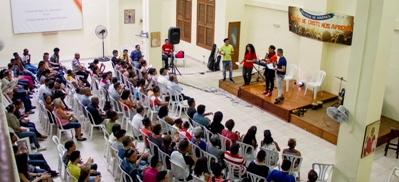
Jan 27, 2017 | Non categorizzato
The celeb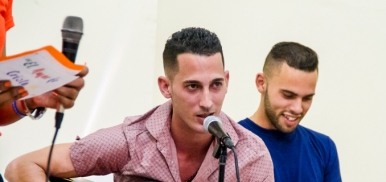 ration of the “Week of Prayer for Unity of Christians” at Havana was highlighted by a particular moment, the Ecumenical Youth Festival, at its third edition. Created with the aim of encouraging a more active participation of the youth in the ecumenical movement, the festival project began to take shape and became an annual meeting of young Christians of Havana. The “Week of Prayer” was enlivened by the youth sectors of the Focolare Movement, Community of Sant’Egidio and Council of Churches of Cuba. Inspired by this year’s “Christ’s love compels us” (2 Cor 5, 14-20), which was also the festival’s motto, the programme of dance, music, and drama staged in this edition saw the participation of about 150 youths of various communities of different Christian denominations. The meeting began on Sunday, 22 January, in the Headquarters of the Community of Sant’Egidio, in the historical centre of the Cuban capital. The representatives of the Cuban Council of Churches also took part in the event, along with Bishop Juan García, Archbishop of Havana, who in his brief greeting, encouraged the youths to see themselves as members of a sole body, a sole family.
ration of the “Week of Prayer for Unity of Christians” at Havana was highlighted by a particular moment, the Ecumenical Youth Festival, at its third edition. Created with the aim of encouraging a more active participation of the youth in the ecumenical movement, the festival project began to take shape and became an annual meeting of young Christians of Havana. The “Week of Prayer” was enlivened by the youth sectors of the Focolare Movement, Community of Sant’Egidio and Council of Churches of Cuba. Inspired by this year’s “Christ’s love compels us” (2 Cor 5, 14-20), which was also the festival’s motto, the programme of dance, music, and drama staged in this edition saw the participation of about 150 youths of various communities of different Christian denominations. The meeting began on Sunday, 22 January, in the Headquarters of the Community of Sant’Egidio, in the historical centre of the Cuban capital. The representatives of the Cuban Council of Churches also took part in the event, along with Bishop Juan García, Archbishop of Havana, who in his brief greeting, encouraged the youths to see themselves as members of a sole body, a sole family.  This year, the event was characterised by a family atmosphere which was tangible in all the various activities. It was not only a show where every church or community performed its piece of the festival. But it was an event accomplished by people who considered one another more and more as brothers, thanks to the relationship established during the years, between one festival and the other, through meetings, dinners, celebrations and mutual help. The group that led the festival was composed of Catholics, Baptists and Pentecostals; the choir was formed by youths of various churches, and accompanied the songs presented by a Catholic. The theatre piece was created by a Pentecostal youth and performed by a group of Catholic girls. «The desire and decision to live unity is already a reality,» one of the participants said. At the end of the programme, the idea that spontaneously came up was the decision “to hold the next festival in a public theatre.” This expressed the desire to testify before others, about the experience of unity concretely lived. From Havana, 22 January 2017
This year, the event was characterised by a family atmosphere which was tangible in all the various activities. It was not only a show where every church or community performed its piece of the festival. But it was an event accomplished by people who considered one another more and more as brothers, thanks to the relationship established during the years, between one festival and the other, through meetings, dinners, celebrations and mutual help. The group that led the festival was composed of Catholics, Baptists and Pentecostals; the choir was formed by youths of various churches, and accompanied the songs presented by a Catholic. The theatre piece was created by a Pentecostal youth and performed by a group of Catholic girls. «The desire and decision to live unity is already a reality,» one of the participants said. At the end of the programme, the idea that spontaneously came up was the decision “to hold the next festival in a public theatre.” This expressed the desire to testify before others, about the experience of unity concretely lived. From Havana, 22 January 2017
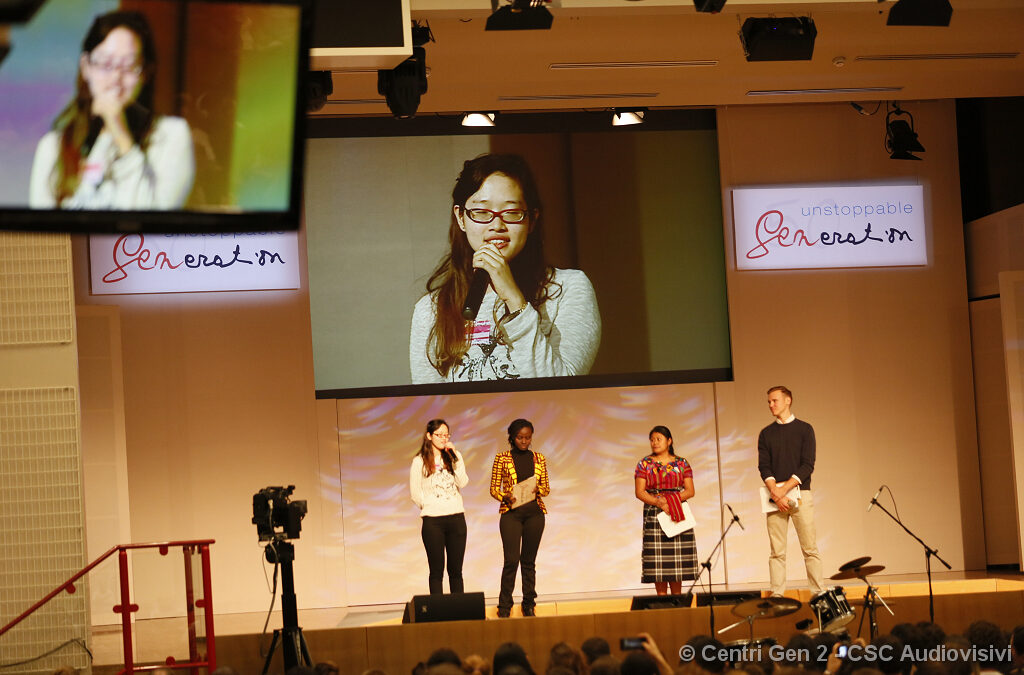
Jan 25, 2017 | Non categorizzato
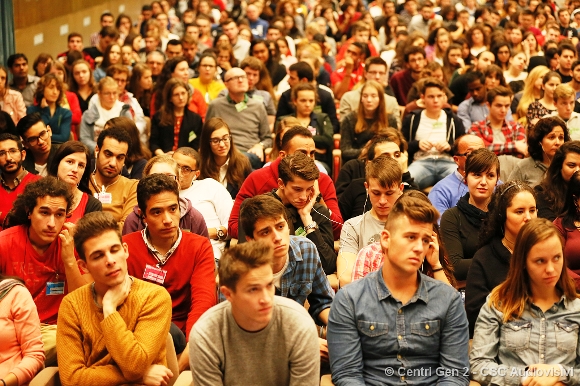 “I lost my father when I was six years old. He died during the war,” says Ivona from Croatia. “That was a hard time in my life that caused me to become closed in myself. In 2003 I met the Focolare Movement and I experienced an atmosphere of love and joy, and I found the strength to face everything and love life even when it was difficult. On New Year’s Eve, at the age of 13, had a fainting spell and ended up in hospital. While waiting for the results of the tests, I suddenly noticed a small rosary in my hand. When I think of it now, I believe that it may have been a sign from God because of what I would have to go through. I was diagnosed with a form of emotional epilepsy resulting from the trauma of my father’s death. I cried for two night. One evening as I was praying the rosary, I felt that I wasn’t alone, that Jesus understood my pain. I seemed to understand the meaning of Chiara Lubich’s words about the moment of Jesus’s abandonment on the cross: ‘What is His is mine and nothing else. Universal suffering is His and therefore mine . . . What hurts me is mine . . . Mine is the suffering of the soul beside me – that’s my Jesus.’ From that moment on my life went ahead in peace and joy, but mostly I was living it with Jesus. Through the illness, I experienced that Jesus Forsaken has illumined every darkness, as Chiara says, and accompanied every solitude. I accepted my illness and felt loved by Him.”
“I lost my father when I was six years old. He died during the war,” says Ivona from Croatia. “That was a hard time in my life that caused me to become closed in myself. In 2003 I met the Focolare Movement and I experienced an atmosphere of love and joy, and I found the strength to face everything and love life even when it was difficult. On New Year’s Eve, at the age of 13, had a fainting spell and ended up in hospital. While waiting for the results of the tests, I suddenly noticed a small rosary in my hand. When I think of it now, I believe that it may have been a sign from God because of what I would have to go through. I was diagnosed with a form of emotional epilepsy resulting from the trauma of my father’s death. I cried for two night. One evening as I was praying the rosary, I felt that I wasn’t alone, that Jesus understood my pain. I seemed to understand the meaning of Chiara Lubich’s words about the moment of Jesus’s abandonment on the cross: ‘What is His is mine and nothing else. Universal suffering is His and therefore mine . . . What hurts me is mine . . . Mine is the suffering of the soul beside me – that’s my Jesus.’ From that moment on my life went ahead in peace and joy, but mostly I was living it with Jesus. Through the illness, I experienced that Jesus Forsaken has illumined every darkness, as Chiara says, and accompanied every solitude. I accepted my illness and felt loved by Him.” 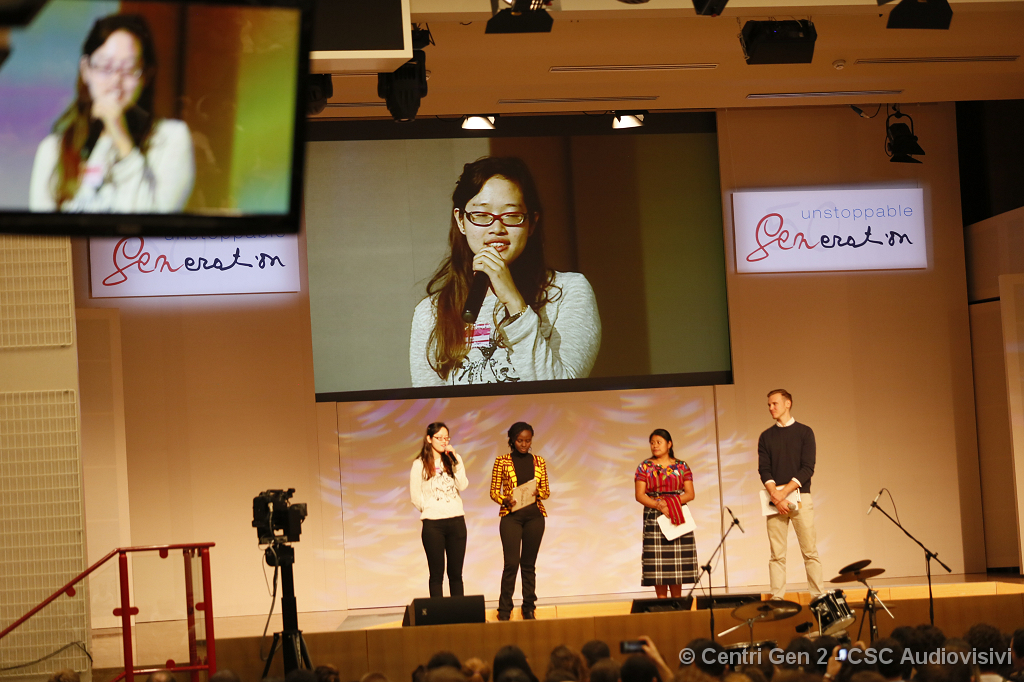 “I’m Zin from Myanmar and I’m a Buddhist Gen. I’ve been at the Gen School in Montet, Switzerland since September. Whenever I tell people that I’m a Buddhist, they all ask me what it’s like to live with the other Gen who are all Christians. It’s easy for me to accept that we follow different religions. It’s only when the other Gen pray or go to mass that I realize there’s a difference. In all the rest we’re the same – sisters living in the same house. We like to love one another in accordance with the way that each one of us understands Love: in Buddhism it’s mostly a matter of compassion, politeness and forgetting oneself. For Christians it’s ‘love of neighbhbour’, ‘love of enemy’ ‘mutual love’ ‘love for Jesus Forsaken’. While noting the diversity in our manner of expressing love, striving to ‘be love’ as our common goal leads us to experience unity.” “I’m Lilia Mayrleny from the Maya Kaqchikel ethnic community in Guatemala, originally from the Patzun people. I’m a Kaqchikel/Spanish bilingual early childhood teacher. Kazchikel is my native language. My country is multi-cultural and bi-lingual. It’s multi-cultural because it’s comprised of four different cultures: Maya, Garifuna, Xinca and Ladino; and it’s multi-lingual because we speak 22 Maya languages. I met the Focolare Movement at the Gen4 meetings when I was a child. I try to bring the ideal of unity into my daily life. I study at university thanks to my parents who also live the Focolare spirituality and support my studies. This is a great conquest, because not all women in my community are able to pursue their studies because of the sexist culture we live in. In Maya culture things like truth, the rule of law, love and respect are cherished. At times I felt very alone without any answers to my questions. But, by trying to live the Gospel I discovered that sorrows and pain, disapointments and doubts, weaknesses, unexpected surprises and all the trials of life, including deception are the many different guises of Jesus who suffered the abandonment on the cross. Whenever I manage to recognize and love him, the difficult situations are transfigured and peace blossoms in me.”
“I’m Zin from Myanmar and I’m a Buddhist Gen. I’ve been at the Gen School in Montet, Switzerland since September. Whenever I tell people that I’m a Buddhist, they all ask me what it’s like to live with the other Gen who are all Christians. It’s easy for me to accept that we follow different religions. It’s only when the other Gen pray or go to mass that I realize there’s a difference. In all the rest we’re the same – sisters living in the same house. We like to love one another in accordance with the way that each one of us understands Love: in Buddhism it’s mostly a matter of compassion, politeness and forgetting oneself. For Christians it’s ‘love of neighbhbour’, ‘love of enemy’ ‘mutual love’ ‘love for Jesus Forsaken’. While noting the diversity in our manner of expressing love, striving to ‘be love’ as our common goal leads us to experience unity.” “I’m Lilia Mayrleny from the Maya Kaqchikel ethnic community in Guatemala, originally from the Patzun people. I’m a Kaqchikel/Spanish bilingual early childhood teacher. Kazchikel is my native language. My country is multi-cultural and bi-lingual. It’s multi-cultural because it’s comprised of four different cultures: Maya, Garifuna, Xinca and Ladino; and it’s multi-lingual because we speak 22 Maya languages. I met the Focolare Movement at the Gen4 meetings when I was a child. I try to bring the ideal of unity into my daily life. I study at university thanks to my parents who also live the Focolare spirituality and support my studies. This is a great conquest, because not all women in my community are able to pursue their studies because of the sexist culture we live in. In Maya culture things like truth, the rule of law, love and respect are cherished. At times I felt very alone without any answers to my questions. But, by trying to live the Gospel I discovered that sorrows and pain, disapointments and doubts, weaknesses, unexpected surprises and all the trials of life, including deception are the many different guises of Jesus who suffered the abandonment on the cross. Whenever I manage to recognize and love him, the difficult situations are transfigured and peace blossoms in me.”
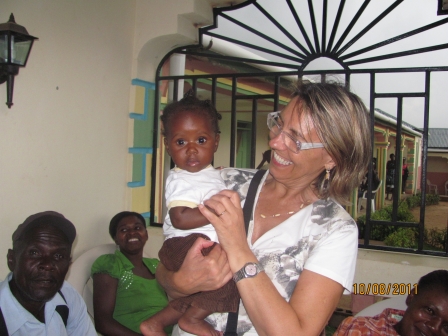
Jan 24, 2017 | Non categorizzato
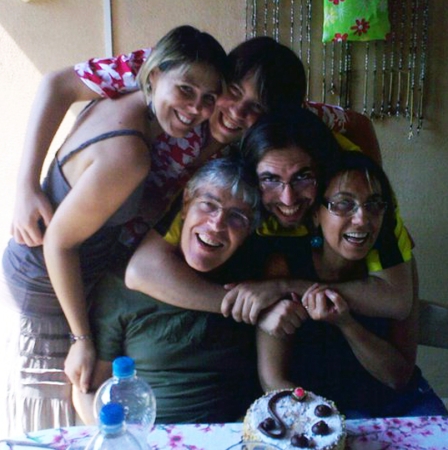 Fiorella: “Right from the start I found that Andrea was an atheist and very popular with the girls. I decided in my heart that it was better to let him go. But then in the disco I always found myself in his arms.” Andrea: “Fiorella was really one of the many. Before telling her – to my own great surprise – that I might actually love her, two years went by.” Fiorella: “I was aware that the relationship wasn’t going anywhere. There wasn’t dialogue and we didn’t make any plans. I had become Andrea’s shadow, without personanlity or dreams. Disappointed I decided to leave him. To evade him, I changed jobs and moved to another city, but I soon began to feel alone and full of sadness. One morning, nearly desperate, I found myself in the doorway of a small church, yelling out why to that God whom I had left for some time. When I job contract ended, I returned home to my relatives. A few days later, a friend whom I hadn’t seen in a while couldn’t wait to talk to me about God, and invited me to a several-day gathering with people who were trying to live the Gospel. As I stepped into the hall I was struck by a sign they had hung: “God is Love”. I wondered how God could love someone like me with my heavy make-up, heels size 12 and fiery red hair. But right from the first day I felt his presence, I knew that I had discovered what I was always looking for, and I ran to pour out all my miseries in the confessional with the intention of beginning to live the Gospel. After that first “Mariapolis” the Eucharist became the vital force of my life.” Andrea:”Fiorella was changed. Now she talked, but what’s worse – at least from my point of view back then – she talked about God. Trying to be tollerant, I decided not to dump her, but I was jealous of this God who was stealing her from me. I was struck by her serenity, her enjoyment of life, her renewed love for me that filled my heart. And what if she really loved me? Surprised at myself I even reached the point of asking her to marry me, even with the understanding of doing it in church. Afterwards, an accident at work left me immobile. The only diversion was visiting those families that Fiorella began to get together with. As soon as I could, I decided to visit one of them to find out the reason for this interest in me. We talked about everything, even the faith until three o’clock in the morning. I was fascinated. “These people are serious about it!” I said to myself, I want to live like them too. I want to be the first to love too.” One Saturday I found the sink filled with dishes. Fiorella was out at work. I closed the blinds so my neighbors couldn’t see me and began to wash the dishes to show her my love in a concrete way. I even tried to iron, although it took me two hours to press one shirt. And as I did all this I began to notice a certainty blossoming inside me: God exists, God is Love. With this new faith I suddenly felt the need to pray. I told Fiorella and suggested we do it together. With a bit of embarrassment and the lights turned off, each of us on our own side of the bed, that night we prayed together for the first time.”
Fiorella: “Right from the start I found that Andrea was an atheist and very popular with the girls. I decided in my heart that it was better to let him go. But then in the disco I always found myself in his arms.” Andrea: “Fiorella was really one of the many. Before telling her – to my own great surprise – that I might actually love her, two years went by.” Fiorella: “I was aware that the relationship wasn’t going anywhere. There wasn’t dialogue and we didn’t make any plans. I had become Andrea’s shadow, without personanlity or dreams. Disappointed I decided to leave him. To evade him, I changed jobs and moved to another city, but I soon began to feel alone and full of sadness. One morning, nearly desperate, I found myself in the doorway of a small church, yelling out why to that God whom I had left for some time. When I job contract ended, I returned home to my relatives. A few days later, a friend whom I hadn’t seen in a while couldn’t wait to talk to me about God, and invited me to a several-day gathering with people who were trying to live the Gospel. As I stepped into the hall I was struck by a sign they had hung: “God is Love”. I wondered how God could love someone like me with my heavy make-up, heels size 12 and fiery red hair. But right from the first day I felt his presence, I knew that I had discovered what I was always looking for, and I ran to pour out all my miseries in the confessional with the intention of beginning to live the Gospel. After that first “Mariapolis” the Eucharist became the vital force of my life.” Andrea:”Fiorella was changed. Now she talked, but what’s worse – at least from my point of view back then – she talked about God. Trying to be tollerant, I decided not to dump her, but I was jealous of this God who was stealing her from me. I was struck by her serenity, her enjoyment of life, her renewed love for me that filled my heart. And what if she really loved me? Surprised at myself I even reached the point of asking her to marry me, even with the understanding of doing it in church. Afterwards, an accident at work left me immobile. The only diversion was visiting those families that Fiorella began to get together with. As soon as I could, I decided to visit one of them to find out the reason for this interest in me. We talked about everything, even the faith until three o’clock in the morning. I was fascinated. “These people are serious about it!” I said to myself, I want to live like them too. I want to be the first to love too.” One Saturday I found the sink filled with dishes. Fiorella was out at work. I closed the blinds so my neighbors couldn’t see me and began to wash the dishes to show her my love in a concrete way. I even tried to iron, although it took me two hours to press one shirt. And as I did all this I began to notice a certainty blossoming inside me: God exists, God is Love. With this new faith I suddenly felt the need to pray. I told Fiorella and suggested we do it together. With a bit of embarrassment and the lights turned off, each of us on our own side of the bed, that night we prayed together for the first time.”  Fiorella: “After twelve years of milestones and setbacks new beginnings and many joys because of the new love that was growing between us, and with the birth of our two children, Maria Giovanna and Ivan, we received an invitation to move to Honduras to help support the nascent Focolare community. Jesus was asking our family to follow Him, giving up our house, our job, our relatives. A totally unknown world was awaiting us in Tegucigalpa with different customs, language and culture, along with the difficult life of the Honduran people who were knocking at our door each day. We entered so deeply into “making ourselves one” and being immersed in their lives in a deep experience of inculturation. The fruits of evangelization were many: vocations, marriages convalidated, families put together again, people coming back to God and the growth of brotherhood. After eight years we left behind a community that had been built piece by piece, based on concrete love that we tried to show and drew in our children into who, in the meantime, had become three. Andrea: “In fact, our on Juan Diego was born while we were in Honduras. We named him in honour of the Virgin of Guadalupe to whom we continue to entrust the so generous people that changed our life.”
Fiorella: “After twelve years of milestones and setbacks new beginnings and many joys because of the new love that was growing between us, and with the birth of our two children, Maria Giovanna and Ivan, we received an invitation to move to Honduras to help support the nascent Focolare community. Jesus was asking our family to follow Him, giving up our house, our job, our relatives. A totally unknown world was awaiting us in Tegucigalpa with different customs, language and culture, along with the difficult life of the Honduran people who were knocking at our door each day. We entered so deeply into “making ourselves one” and being immersed in their lives in a deep experience of inculturation. The fruits of evangelization were many: vocations, marriages convalidated, families put together again, people coming back to God and the growth of brotherhood. After eight years we left behind a community that had been built piece by piece, based on concrete love that we tried to show and drew in our children into who, in the meantime, had become three. Andrea: “In fact, our on Juan Diego was born while we were in Honduras. We named him in honour of the Virgin of Guadalupe to whom we continue to entrust the so generous people that changed our life.”
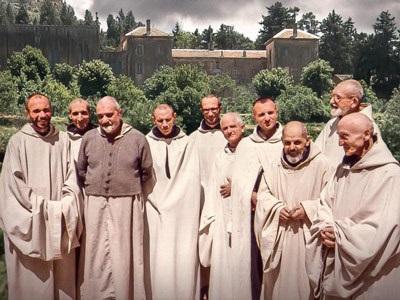
Jan 23, 2017 | Focolare Worldwide, Senza categoria
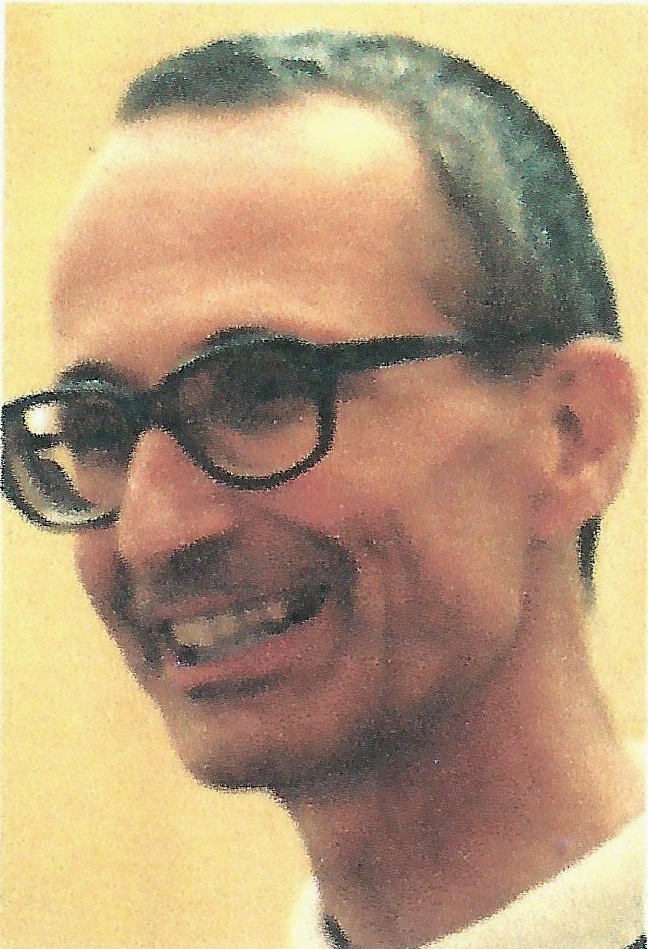 I came across a letter of Fr. Christian de Chergé a few days ago, on his 20th death anniversary. Christian was the Prior of the community of Trappist monks of the monastery of Nostra Signora dell’Atlas in Tibhirine (90 km from Algiers). In 1996, he and six other monks were kidnapped and then killed. On 1 August, Bishop Pierre Claverie, the Bishop of Orano was killed. That was really a “black decade,” as people called the civil war that exploded in the1990s. The monks were French and like the other “foreigners” were the direct targets of the “ mountain brothers,” name that referred to all those who had gone into hiding to take up their arms following the annulment of the 1992 elections. The Islamic Salvation Front, a political party that was dispersed and declared illegal, was about to win the elections. In my mind I often see their smiling faces, during those moments we lived together. We all took part in that particular vocation of the Church in that country, to which we felt we had been sent to testify to the Gospel, at the service of those people. It was a simple, poor Church, but its testimony shone in the hearts of many friends, mostly Muslims. Already then in Algiers, 99.99% of the population followed Islam. The Archbishop of Algiers, Paul Desfarges, said that, “The Church is for the people, a Church of Encounters.” But going back to the letter of 3 December 1994, it seemed to me like meeting Christian once again, or one of the monks in our focolare house in Tlemcen, where they used to spend a night, to then resume the journey towards the monastery they were about to found in Fèz, Morocco. Those were evenings of intense dialogue and joy of getting together, feeling like brothers and of sharing and understanding, in this mutual commitment toward the people that hosted us. Even if we had different callings, our hearts beat in unison.
I came across a letter of Fr. Christian de Chergé a few days ago, on his 20th death anniversary. Christian was the Prior of the community of Trappist monks of the monastery of Nostra Signora dell’Atlas in Tibhirine (90 km from Algiers). In 1996, he and six other monks were kidnapped and then killed. On 1 August, Bishop Pierre Claverie, the Bishop of Orano was killed. That was really a “black decade,” as people called the civil war that exploded in the1990s. The monks were French and like the other “foreigners” were the direct targets of the “ mountain brothers,” name that referred to all those who had gone into hiding to take up their arms following the annulment of the 1992 elections. The Islamic Salvation Front, a political party that was dispersed and declared illegal, was about to win the elections. In my mind I often see their smiling faces, during those moments we lived together. We all took part in that particular vocation of the Church in that country, to which we felt we had been sent to testify to the Gospel, at the service of those people. It was a simple, poor Church, but its testimony shone in the hearts of many friends, mostly Muslims. Already then in Algiers, 99.99% of the population followed Islam. The Archbishop of Algiers, Paul Desfarges, said that, “The Church is for the people, a Church of Encounters.” But going back to the letter of 3 December 1994, it seemed to me like meeting Christian once again, or one of the monks in our focolare house in Tlemcen, where they used to spend a night, to then resume the journey towards the monastery they were about to found in Fèz, Morocco. Those were evenings of intense dialogue and joy of getting together, feeling like brothers and of sharing and understanding, in this mutual commitment toward the people that hosted us. Even if we had different callings, our hearts beat in unison.  That atmosphere of danger surrounding us, encouraged us to go ahead. In fact, there was talk about a possible momentous departure of the members of the focolare of Tlemcen, which then did not occur. And Christian had written: «We all thought that you would stay longer to testify to a convivial offer, a boundless sharing of life, and a friendly openness that enables our hearts to vibrate in unison beyond the barriers of religious affiliations. You made the message of the Gospel your very own and you have deeply imprinted this message among us. And we rejoice with you for this greater humanity which your Charism has given to our Church. It was such a joy to meet at your “focolare” house. Many monks were able to make use of your hospitality when they passed through on their way to Fez. All of us still savour the thought of experiencing it all again! In these times we all need to be able to count on this “fire” kept alive in the common room. It will be a bit colder at Christmas if you will no longer be here… Our lives are in God’s hands… and our motives to remain, conform to those that have allowed us to live here. For you, as for us, the situation has not changed. THANKS once again to each of you and our fraternal communion today and for always. Christian». We had talked about the courage to remain… but for those who, like us had lived that harsh situation in person, I would rather speak of the courage to remain faithful to a calling and share it with a section of humanity, which we already felt an integral part of. It was a Fidelity of love. In the hearts of those who knew the monks, Bishop Claverie, or the other nuns and religious killed in those years in Algiers, they continue to speak to us of the Gospel lived and deep friendships with a people they had made their own. Giorgio Antoniazzi
That atmosphere of danger surrounding us, encouraged us to go ahead. In fact, there was talk about a possible momentous departure of the members of the focolare of Tlemcen, which then did not occur. And Christian had written: «We all thought that you would stay longer to testify to a convivial offer, a boundless sharing of life, and a friendly openness that enables our hearts to vibrate in unison beyond the barriers of religious affiliations. You made the message of the Gospel your very own and you have deeply imprinted this message among us. And we rejoice with you for this greater humanity which your Charism has given to our Church. It was such a joy to meet at your “focolare” house. Many monks were able to make use of your hospitality when they passed through on their way to Fez. All of us still savour the thought of experiencing it all again! In these times we all need to be able to count on this “fire” kept alive in the common room. It will be a bit colder at Christmas if you will no longer be here… Our lives are in God’s hands… and our motives to remain, conform to those that have allowed us to live here. For you, as for us, the situation has not changed. THANKS once again to each of you and our fraternal communion today and for always. Christian». We had talked about the courage to remain… but for those who, like us had lived that harsh situation in person, I would rather speak of the courage to remain faithful to a calling and share it with a section of humanity, which we already felt an integral part of. It was a Fidelity of love. In the hearts of those who knew the monks, Bishop Claverie, or the other nuns and religious killed in those years in Algiers, they continue to speak to us of the Gospel lived and deep friendships with a people they had made their own. Giorgio Antoniazzi

Jan 22, 2017 | Non categorizzato
 Chiara Lubich visited Germany in 1998, from 1st November to 13 December, spending time at Aachen, Münster, Augsburg and then in Berlin at the invitation of the Evangelical Church community. In her address, part of which is published below. We present several excerpts from her speech given on November 19th at the the Berlin Memorial Church, in which she indicates the law of love as the royal road to Christian unity and dialogue with all believers. “The plain fact is that if we Christians now, at the dawn of the third millennium, take a good look back at our 2000 years of history and particularly at the last millennium, we cannot fail to be saddened by what we see: a painful succession of misunderstandings, arguments and conflicts. These have caused many rips and tears in the “seamless robe of Christ”, which is His Church. And whose fault is this? Without doubt, countless historical, cultural, geo-political, social factors have played their part …. But could it also be due to a weakening among Christians of their characteristic unifying bond of love? I think so. In fact, when we try to address the painful situation we find ourselves in, we must keep in mind the guiding principle of our common faith: God Love who calls us too to love. In these our times it is God Love who, in some way, must return once more to reveal Himself also to the Churches we are part of. It’s true that we can’t really know how to love others unless we have experienced being deeply loved ourselves, unless all Christians are convinced of how much God loves us. He loves us as individual Christians and also as Church. He loves the Church in so far as it has been faithful to God’s plan for it, but also – and herein lies the wonder of God’s mercy – He loves the Church even when it has not corresponded to that plan and has allowed divisions to occur, as long as now it is seeking for full communion with the other Churches. This is the consoling conviction that led John Paul II, trusting in the One who can draw good from what is bad, to reflect: “Could it not be that the divisions have also been a way which has led and is leading the Church to discover the many treasures contained in the Gospel of Christ and in the redemption he brought about? Perhaps such a wealth would not have come to light otherwise.” So, belief in God who is Love, also for the Church. But if God loves us, we cannot remain inert in the face of such divine benevolence. As true sons and daughters, we must respond to His love with love, individually and as Church. Perhaps we can say that the Churches over the centuries may have hardened somewhat within themselves against the relentless tide of indifference, of misunderstanding, if not of actual hatred between them. So now we need a supplement of love in each one; we would need, in fact, a whole tidal wave of love to invade all Christianity. Love towards the other Churches is what we’re talking about here, together with mutual love among the Churches: a love that enables each one to be a gift for the others, so that it is possible to hope in a Church of the future which is one, in which one alone is the truth, expressed in many ways, observed from different perspectives, made even more beautiful by the variety of interpretations. It’s not that any of the Churches would have to “die” (as some may think), rather each one will have to be “reborn” in unity. And to live in this Church of the future, in full communion, will be such a wonderful, miraculous reality, that it cannot fail to be noticed by the whole world.” More Chiara Lubic Center
Chiara Lubich visited Germany in 1998, from 1st November to 13 December, spending time at Aachen, Münster, Augsburg and then in Berlin at the invitation of the Evangelical Church community. In her address, part of which is published below. We present several excerpts from her speech given on November 19th at the the Berlin Memorial Church, in which she indicates the law of love as the royal road to Christian unity and dialogue with all believers. “The plain fact is that if we Christians now, at the dawn of the third millennium, take a good look back at our 2000 years of history and particularly at the last millennium, we cannot fail to be saddened by what we see: a painful succession of misunderstandings, arguments and conflicts. These have caused many rips and tears in the “seamless robe of Christ”, which is His Church. And whose fault is this? Without doubt, countless historical, cultural, geo-political, social factors have played their part …. But could it also be due to a weakening among Christians of their characteristic unifying bond of love? I think so. In fact, when we try to address the painful situation we find ourselves in, we must keep in mind the guiding principle of our common faith: God Love who calls us too to love. In these our times it is God Love who, in some way, must return once more to reveal Himself also to the Churches we are part of. It’s true that we can’t really know how to love others unless we have experienced being deeply loved ourselves, unless all Christians are convinced of how much God loves us. He loves us as individual Christians and also as Church. He loves the Church in so far as it has been faithful to God’s plan for it, but also – and herein lies the wonder of God’s mercy – He loves the Church even when it has not corresponded to that plan and has allowed divisions to occur, as long as now it is seeking for full communion with the other Churches. This is the consoling conviction that led John Paul II, trusting in the One who can draw good from what is bad, to reflect: “Could it not be that the divisions have also been a way which has led and is leading the Church to discover the many treasures contained in the Gospel of Christ and in the redemption he brought about? Perhaps such a wealth would not have come to light otherwise.” So, belief in God who is Love, also for the Church. But if God loves us, we cannot remain inert in the face of such divine benevolence. As true sons and daughters, we must respond to His love with love, individually and as Church. Perhaps we can say that the Churches over the centuries may have hardened somewhat within themselves against the relentless tide of indifference, of misunderstanding, if not of actual hatred between them. So now we need a supplement of love in each one; we would need, in fact, a whole tidal wave of love to invade all Christianity. Love towards the other Churches is what we’re talking about here, together with mutual love among the Churches: a love that enables each one to be a gift for the others, so that it is possible to hope in a Church of the future which is one, in which one alone is the truth, expressed in many ways, observed from different perspectives, made even more beautiful by the variety of interpretations. It’s not that any of the Churches would have to “die” (as some may think), rather each one will have to be “reborn” in unity. And to live in this Church of the future, in full communion, will be such a wonderful, miraculous reality, that it cannot fail to be noticed by the whole world.” More Chiara Lubic Center
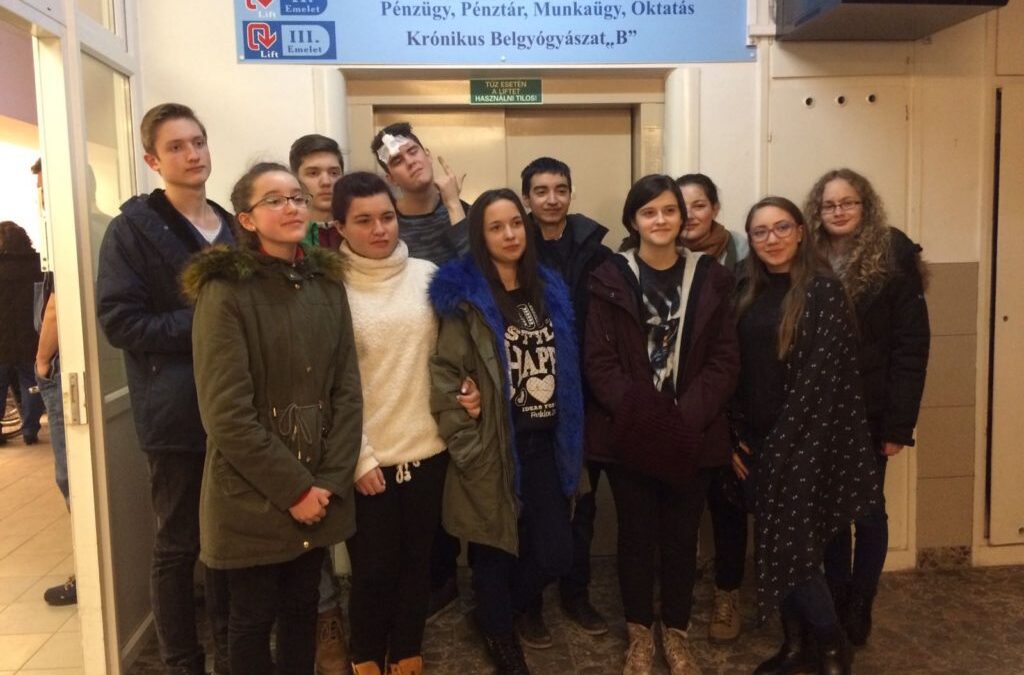
Jan 21, 2017 | Non categorizzato
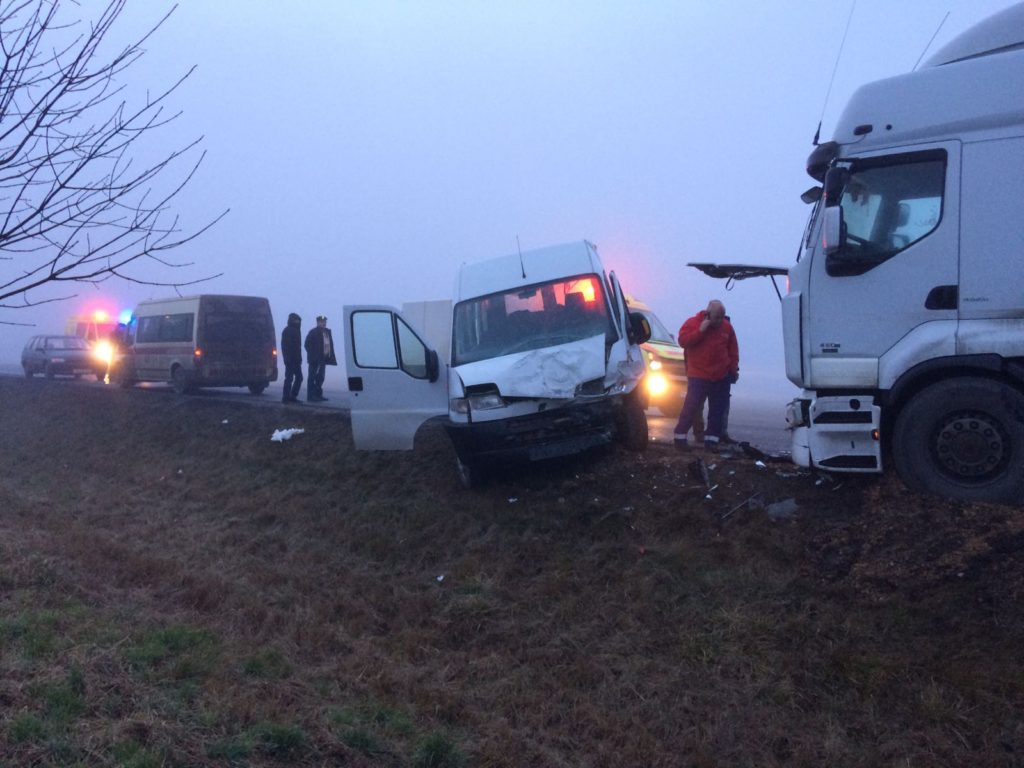 Accompanied by some of their assistants, thirteen Gen 3 were on their way to Focolare town in Krizevci, north Croatia. There was an atmosphere of serenity and great expectation during the trip. The theme of their congress would be challenging and demanding: Jesus Forsaken. The topic of suffering and pain is key to knowing how to live in a world of young people where so many seek well-being and false happiness. It was a long drive through Hungary. Towards evening some of the boys dozed off. Suddenly, the sound of horns and, in the midst of thick fog, a large truck just before the frightening crash. Teia, Adelin, Delia, Eve, Bea, Iulian and the other boys were still alive, but their shock was great. “The first car stopped just after the accident,” recounts one of the assistants. “It was an emergency vehicle. They had just finished their shift and were on their way back to the base. How could we not see God’s love in that? The police were excellent: they welcomed us in the largest room they had at police headquarters until another bus came to get us. They told us we were lucky to get out alive . . . then they brought us pizza and sweets.” Once we got to hospital, the boys were divided between wards. Bea: “At that moment we felt lost, we didn’t understand Hungarian, we were frightened and alone. We didn’t know what was happening and didn’t know how to answer the doctors’ questions. Some of us were comepletely isolated from the others, and alone like Jesus Forsaken. It was like meeting him and living him.” Eve: “Later on, people came and tranlsated for us. One focolarina from Romania was supposed to arrive in Hungary the previous day, but she had missed the bus. She was in a nearby city when she learned of the accident. The driver had proposed to the passengers not to make other stops and to take her directly to hospital to drop her off before helping us. She told us that understood why she had missed the bus the day before.”
Accompanied by some of their assistants, thirteen Gen 3 were on their way to Focolare town in Krizevci, north Croatia. There was an atmosphere of serenity and great expectation during the trip. The theme of their congress would be challenging and demanding: Jesus Forsaken. The topic of suffering and pain is key to knowing how to live in a world of young people where so many seek well-being and false happiness. It was a long drive through Hungary. Towards evening some of the boys dozed off. Suddenly, the sound of horns and, in the midst of thick fog, a large truck just before the frightening crash. Teia, Adelin, Delia, Eve, Bea, Iulian and the other boys were still alive, but their shock was great. “The first car stopped just after the accident,” recounts one of the assistants. “It was an emergency vehicle. They had just finished their shift and were on their way back to the base. How could we not see God’s love in that? The police were excellent: they welcomed us in the largest room they had at police headquarters until another bus came to get us. They told us we were lucky to get out alive . . . then they brought us pizza and sweets.” Once we got to hospital, the boys were divided between wards. Bea: “At that moment we felt lost, we didn’t understand Hungarian, we were frightened and alone. We didn’t know what was happening and didn’t know how to answer the doctors’ questions. Some of us were comepletely isolated from the others, and alone like Jesus Forsaken. It was like meeting him and living him.” Eve: “Later on, people came and tranlsated for us. One focolarina from Romania was supposed to arrive in Hungary the previous day, but she had missed the bus. She was in a nearby city when she learned of the accident. The driver had proposed to the passengers not to make other stops and to take her directly to hospital to drop her off before helping us. She told us that understood why she had missed the bus the day before.” 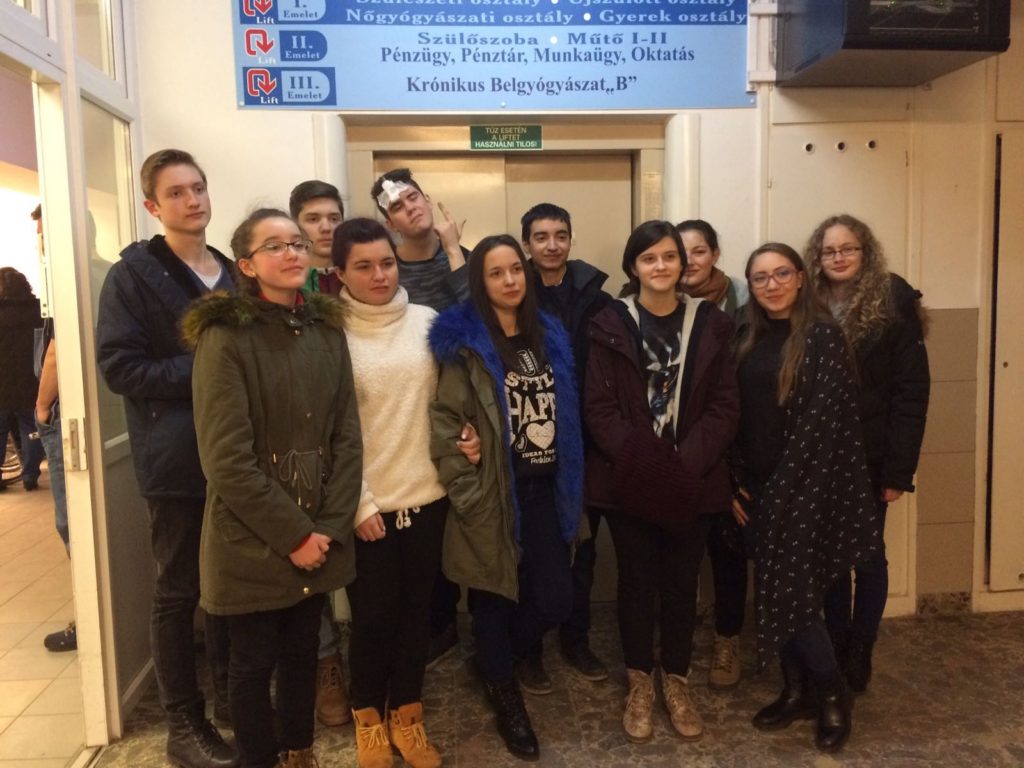 Rozi: “The doctors told us we had to stay in hospital for a few more examinations. I began to telelphone the boys’ parents. Many of them were 15 hours away from where we were. Moreover, the Gen3 were saying that they wanted to continue on to the congress. In the end we obtained permission to leave the hospital with the signature of their parents and without spending a cent.” Delia: “At that point we weren’t sure about continuing our journey, but we realized that such precious things always come with a cost.” Some days later seven boys arrived at Mariapolis Faro. The experience of fear and pain, but also of intense unity among them, showed that the theme of the congress had already become something real for them. Iulian recounts: “We all just knew that whatever happens to us in life, it’s worth it to abandon ourselves totallyto God. Jesus Forsaken unites us in an incredible way! We were allowed to live because God has a plan for us: a divine adventure awaits us.” Compiled by Chiara Favotti
Rozi: “The doctors told us we had to stay in hospital for a few more examinations. I began to telelphone the boys’ parents. Many of them were 15 hours away from where we were. Moreover, the Gen3 were saying that they wanted to continue on to the congress. In the end we obtained permission to leave the hospital with the signature of their parents and without spending a cent.” Delia: “At that point we weren’t sure about continuing our journey, but we realized that such precious things always come with a cost.” Some days later seven boys arrived at Mariapolis Faro. The experience of fear and pain, but also of intense unity among them, showed that the theme of the congress had already become something real for them. Iulian recounts: “We all just knew that whatever happens to us in life, it’s worth it to abandon ourselves totallyto God. Jesus Forsaken unites us in an incredible way! We were allowed to live because God has a plan for us: a divine adventure awaits us.” Compiled by Chiara Favotti
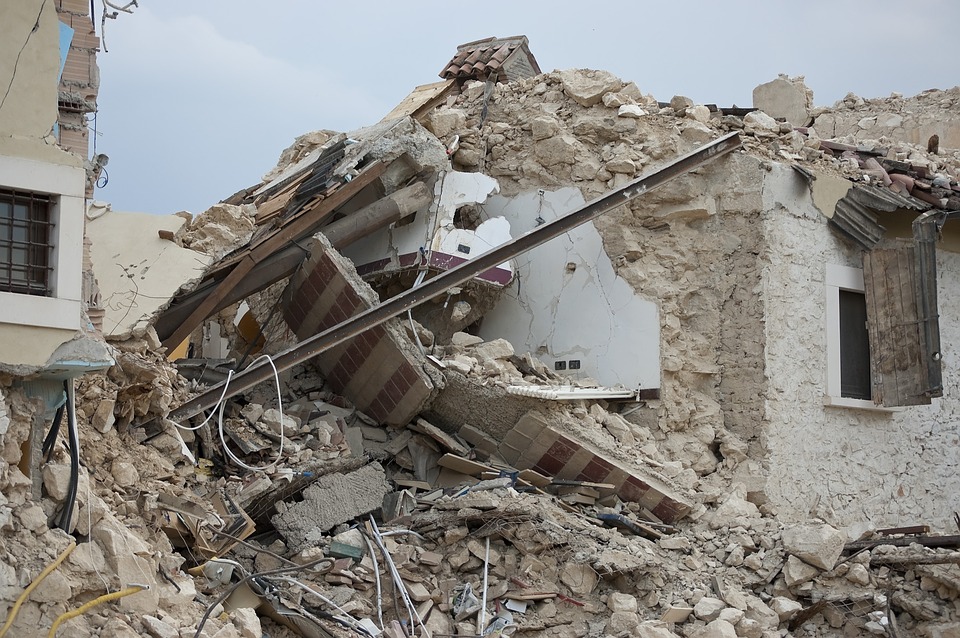
Jan 20, 2017 | Non categorizzato
 «In 142 seconds, the entire town of your childhood disappears. All that was built through the centuries is razed to the ground like a paper castle in 142 unending, damned seconds, and 299 lives are taken away from their loved ones. “Everything crumbles, and all is vanity of vanities,” is the phrase that echoes in my head while I write». This is how Lorenzo, 18, from the Marche Region started to recount his experience of remaining under the ruins of his house for some hours on 24 August. «It was 3.36 in the morning, they said, when a roar, a quake and an infernal phenomenon of dust and piles of rubble woke me up. Then came what some defined using the words of a poet, as the “quiet after the tempest.” All stood still in profound silence and it was pitch black. I was suddenly trapped in a space the size of my body. And with every small quake, a cloud of dust rose around me. My life was dangling on a string. Then at dawn, the village rescuers took me out of what I once called home and which is now just a pile of bricks starting again to call out to me. I want to share with you the joy of that moment, but words are not enough. Rescued after three hours in that inferno, there was destruction everywhere but in all this I could see only one thing: love. All went out to help the other, even placing their own lives in danger. Heedless of the hazards, they were really ready to give their lives. Sadly, or luckily, humanity gives the best of itself in suffering. Suffering is precisely the theme of my experience. I felt that despite all the people around my house, nobody could help or understand me. While praying I asked, “Why me?” and I thought: “My God, why have you abandoned me?” In reality he had not abandoned me, and when I came out I discovered why this experience has become a sort of lens through which I could see a different world, giving me the strength to live my life at best.». From the night of 24 August, and after the quakes of the succeeding months, there are still so many displaced victims of the Central Italy earthquake. These are people who had to leave their own homes, their properties and some even their own village. We really ask ourselves what they were able to bring with them after that tragic and eternal night, and what is giving them the strength to go ahead and start again. We chose Lorenzo’s story because it relays not only the fear lived that day, but also the discovery of something greater. Italy is strong, and is demonstrating great unity. There are many associations that are helping the earthquake victims, immediately involved through AMU, AFN and others to respond to the various needs. They tell us how they are working in the areas of Central Italy. «We are bringing animation activities ahead, and building a small meeting centre to allow the residents to keep up their community spirit. Then our efforts focused greatly on the support of the small agri-food enterprises of the territory, to allow them to continue operating in this emergency phase, and not to lose their jobs.» To support the small enterprises, they thought of creating a real project: «The progetto RimPRESA project. It consists of two lines: furnishing raw materials, machinery, and small infrastructure, and supporting the sales of products. Of course, at the base of all this, there must be human relationships with the people struck by the earthquake.» Source: Teens, work in progress 4 unity, New City editorial group, Rome 2016, n.6, pages 4-5 Info Progetto:www.focolaritalia.it rimpresa@focolare.org To collaborate:
«In 142 seconds, the entire town of your childhood disappears. All that was built through the centuries is razed to the ground like a paper castle in 142 unending, damned seconds, and 299 lives are taken away from their loved ones. “Everything crumbles, and all is vanity of vanities,” is the phrase that echoes in my head while I write». This is how Lorenzo, 18, from the Marche Region started to recount his experience of remaining under the ruins of his house for some hours on 24 August. «It was 3.36 in the morning, they said, when a roar, a quake and an infernal phenomenon of dust and piles of rubble woke me up. Then came what some defined using the words of a poet, as the “quiet after the tempest.” All stood still in profound silence and it was pitch black. I was suddenly trapped in a space the size of my body. And with every small quake, a cloud of dust rose around me. My life was dangling on a string. Then at dawn, the village rescuers took me out of what I once called home and which is now just a pile of bricks starting again to call out to me. I want to share with you the joy of that moment, but words are not enough. Rescued after three hours in that inferno, there was destruction everywhere but in all this I could see only one thing: love. All went out to help the other, even placing their own lives in danger. Heedless of the hazards, they were really ready to give their lives. Sadly, or luckily, humanity gives the best of itself in suffering. Suffering is precisely the theme of my experience. I felt that despite all the people around my house, nobody could help or understand me. While praying I asked, “Why me?” and I thought: “My God, why have you abandoned me?” In reality he had not abandoned me, and when I came out I discovered why this experience has become a sort of lens through which I could see a different world, giving me the strength to live my life at best.». From the night of 24 August, and after the quakes of the succeeding months, there are still so many displaced victims of the Central Italy earthquake. These are people who had to leave their own homes, their properties and some even their own village. We really ask ourselves what they were able to bring with them after that tragic and eternal night, and what is giving them the strength to go ahead and start again. We chose Lorenzo’s story because it relays not only the fear lived that day, but also the discovery of something greater. Italy is strong, and is demonstrating great unity. There are many associations that are helping the earthquake victims, immediately involved through AMU, AFN and others to respond to the various needs. They tell us how they are working in the areas of Central Italy. «We are bringing animation activities ahead, and building a small meeting centre to allow the residents to keep up their community spirit. Then our efforts focused greatly on the support of the small agri-food enterprises of the territory, to allow them to continue operating in this emergency phase, and not to lose their jobs.» To support the small enterprises, they thought of creating a real project: «The progetto RimPRESA project. It consists of two lines: furnishing raw materials, machinery, and small infrastructure, and supporting the sales of products. Of course, at the base of all this, there must be human relationships with the people struck by the earthquake.» Source: Teens, work in progress 4 unity, New City editorial group, Rome 2016, n.6, pages 4-5 Info Progetto:www.focolaritalia.it rimpresa@focolare.org To collaborate:
| Azione per un Mondo Unito ONLUS (AMU) |
Azione per Famiglie Nuove ONLUS (AFN) |
| IBAN: IT16 G050 1803 2000 0000 0120 434 at Banca Popolare Etica |
IBAN: IT55 K033 5901 6001 0000 0001 060 at Banca Prossima |
| Codice SWIFT/BIC: CCRTIT2184D |
Codice SWIFT/BIC: BCITITMX |
| CAUSE : Emergenza terremoto (Italia) |
| All contributions that are deposited in these two accounts for this cause will be jointly administered by AMU and AFN. Except for cash donations, Italian taxpayers can get deductions and allowances from income, in accordance with the regulations for non-profit organizations, to up to 10% of income and the € 70,000.00 annual limit. Tax benefits are provided in many European Union countries and other countries of the world in accordance with local regulations. |

Jan 19, 2017 | Non categorizzato
Download brochure with program Live streaming event 11 Mach 2017 16:00-18:30 (CET, UTC+1): http://live.focolare.org/FamilyHighlights/
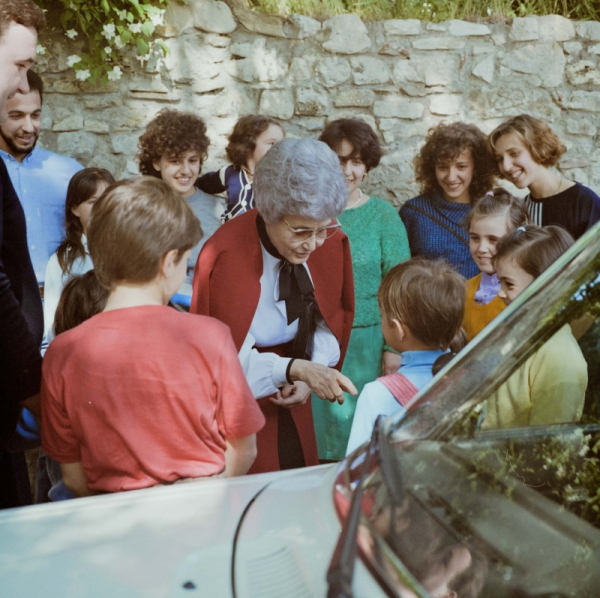 A series of events are to be held around the world in 2017 that will highlight the value of the family from the perspective of “universal brotherhood” and will bear witness to the richness of cultural diversity, through the ideal of unity incarnated in family life. The main event will be held in Loppiano from 10-12 March 2017, where about 800 participants from all over the world are expected. The families will be able to delve into the life of the international town of the Focolare and testify to the dream of Chiara Lubich which has reached all the continents. In the morning, there will be workshops for adults, young teenagers and children, in collaboration with the Parish Movement, the Gen3 and Gen4 centres, the New Families Association (AFNonlus) and the New Humanity Movement (AMU). In the afternoon there will be larger gatherings in the hall, with direct streaming. Presentations will be given by experts in family life, who are involved in the Cultural Seminar to be held at Sophia University Institute on March 10-11. The seminar will mark the opening of the Centre of Family Studies whose objective is to examine the contribution of the spirituality of unity to the family in today’s world. Three topics will be examined: Family, a story of relationships that evolve from ‘me’ to ‘us’ (relationships between the couple, with the children, among generations) Love as the appropriate measure for responding to critical problems in the family (wounds, challenges, sufferings: the reality of life and the sharing process). The family as a creative resource within the social fabric of any nation (life, family networks, solidarity and hospitality, social involvement and work)
A series of events are to be held around the world in 2017 that will highlight the value of the family from the perspective of “universal brotherhood” and will bear witness to the richness of cultural diversity, through the ideal of unity incarnated in family life. The main event will be held in Loppiano from 10-12 March 2017, where about 800 participants from all over the world are expected. The families will be able to delve into the life of the international town of the Focolare and testify to the dream of Chiara Lubich which has reached all the continents. In the morning, there will be workshops for adults, young teenagers and children, in collaboration with the Parish Movement, the Gen3 and Gen4 centres, the New Families Association (AFNonlus) and the New Humanity Movement (AMU). In the afternoon there will be larger gatherings in the hall, with direct streaming. Presentations will be given by experts in family life, who are involved in the Cultural Seminar to be held at Sophia University Institute on March 10-11. The seminar will mark the opening of the Centre of Family Studies whose objective is to examine the contribution of the spirituality of unity to the family in today’s world. Three topics will be examined: Family, a story of relationships that evolve from ‘me’ to ‘us’ (relationships between the couple, with the children, among generations) Love as the appropriate measure for responding to critical problems in the family (wounds, challenges, sufferings: the reality of life and the sharing process). The family as a creative resource within the social fabric of any nation (life, family networks, solidarity and hospitality, social involvement and work)  New logo. Fifty years after its founding, the New Families Movement changes its image with a new logo. It represents a tree, a sign of the growth of the tiny plant that over the years has produced many fruits of life that have been offered to families, to the Church and to the world. The plant is strong, which grew from the first seed that was welcomed by the good soil. Opening itself to others, the family has contributed to the birth and development of many seeds of brotherhood and peace that are sprouting a new society. Chiara Lubich (1920-2008) always paid particular attention to the family and, with the precious contribution of Igino Giordani, writer, Italian politician and first married focolarino, she lifted up his “bold, beautiful and demanding example” as a shining model for the construction of a peace in our world. In 1967 Chiara founded the New Families Movement that it might always keep love enkindled in the home, along with those family values that are so needed by today’s world. She saw the family has the best channel for reaching young people who will one day enter into married life; for broken families, widows and widowers, abandoned children – and every other form of marginalization. For more information: www.famiglienuove.org famiglienuove@focolare.org tel. 069411565
New logo. Fifty years after its founding, the New Families Movement changes its image with a new logo. It represents a tree, a sign of the growth of the tiny plant that over the years has produced many fruits of life that have been offered to families, to the Church and to the world. The plant is strong, which grew from the first seed that was welcomed by the good soil. Opening itself to others, the family has contributed to the birth and development of many seeds of brotherhood and peace that are sprouting a new society. Chiara Lubich (1920-2008) always paid particular attention to the family and, with the precious contribution of Igino Giordani, writer, Italian politician and first married focolarino, she lifted up his “bold, beautiful and demanding example” as a shining model for the construction of a peace in our world. In 1967 Chiara founded the New Families Movement that it might always keep love enkindled in the home, along with those family values that are so needed by today’s world. She saw the family has the best channel for reaching young people who will one day enter into married life; for broken families, widows and widowers, abandoned children – and every other form of marginalization. For more information: www.famiglienuove.org famiglienuove@focolare.org tel. 069411565
Jan 19, 2017 | Non categorizzato
https://vimeo.com/171535556 Copyright 2016 © CSC Audiovisivi – All rights reserved
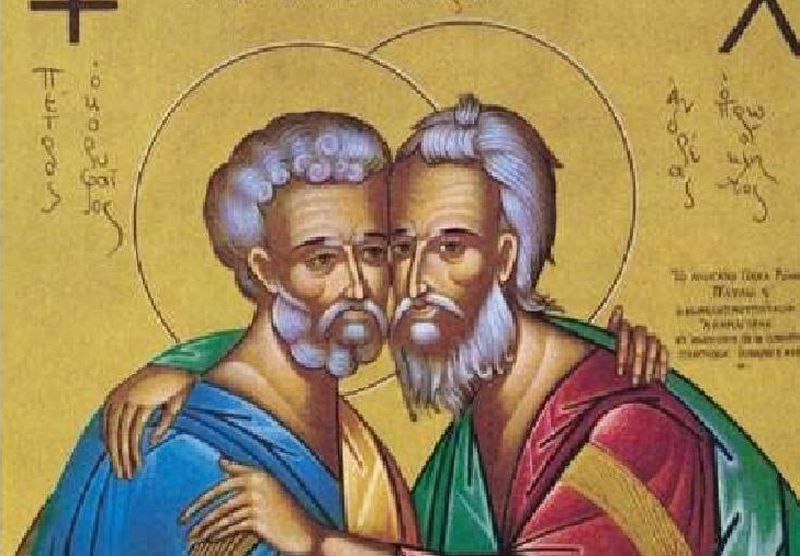
Jan 18, 2017 | Non categorizzato
 “The theme chosen for the 2017 Week of Prayer for Christian Unity is: “Reconciliation: The love of Christ compels us” (2 Cor 5:14). The Week was called for and organized by up to the most important organizations involved in ecumenism, including the Ecumenical Council of Churches and the Pontifical Council for the Promotion of Christian Unity: It was a propitious choice, especially after the celebration of the 500th anniversary of the Reform when many leading representatives of the Lutheran World Federation and Pope Francis gathered around the same altar in prayer at the Cathedral of Lund in Sweden. Alongside such highly significant ecumenical gestures another ecumenism has been spreading that could be called the ecumenism of the people. It is comprised of initiatives by the faithful of different confessions who want to recognize one another more and more as brothers and sisters. It is made up of small gestures that, thanks to the Holy Spirit, are already spreading in many places of the world. They show how far the irresistible journey of unity has come. We present a few examples from Latin America. “Many of us from the Focolare Movement in Peru had established friendships with the faithful of other Churches. Now, ever since an ecumenical group was begun in the Diocese of Arequipa, we have been collaborating with them in organizing the Week of Prayer. There will be daily events in several of the different Churches that visit the focolare regularly. Our centre was chosen for the final event of the Week of Prayer, which will include Catholic bishops, Lutheran pastors, Anglicans, Evangelicals and Pentecostals. Every month we attend an ecumenical breakfast at the YMCA, and a young Evangelical from a city in the north, with the permission of his Pastor, is attending a course of formation in the Focolare town of Loppiano, Italy.” The focolare community in Brazil reports: “We have relationships with Anglicans, Methodists, Presbyterians and Seventh Day Adventists that are truly significant. Sometimes we meet to dialogue about specific topics as we did at a conference held last August at Mariapolis Ginetta in san Paolo where we discussed the topic of peace.” “Because of our friendship with Methodists and Waldensians in Buenos Aires, Argentina, we set up on the square an ecumenical Nativity Scene that had been created by the children. It was visited by over a hundred and fifty people. It concluded with a moment of prayer with lit candles as a sign that each one of us can bring the light of Christmas into our own world.” From Venezuela: “Our sharing in the various celebrations of the Week of Prayer is an opportunity to deepen friendships that have existed for many years and to make new contacts. These friendships do not end when the celebration ends – on the contrary! The acquaintances most often lead to concrete assistance projects that we do together.” In conclusion, from Lima, Peru: “Following the ruinous floods on the outskirts, several young people from the Focolare and Methodist Church went to shovel away the mud that had covered the homes of so many humble folk. It was hard work, but we were all so happy to bring our love concretely to those families, to recognize that they are our brothers and sisters, and that we are also brothers and sisters.” Compiled by Anna Friso
“The theme chosen for the 2017 Week of Prayer for Christian Unity is: “Reconciliation: The love of Christ compels us” (2 Cor 5:14). The Week was called for and organized by up to the most important organizations involved in ecumenism, including the Ecumenical Council of Churches and the Pontifical Council for the Promotion of Christian Unity: It was a propitious choice, especially after the celebration of the 500th anniversary of the Reform when many leading representatives of the Lutheran World Federation and Pope Francis gathered around the same altar in prayer at the Cathedral of Lund in Sweden. Alongside such highly significant ecumenical gestures another ecumenism has been spreading that could be called the ecumenism of the people. It is comprised of initiatives by the faithful of different confessions who want to recognize one another more and more as brothers and sisters. It is made up of small gestures that, thanks to the Holy Spirit, are already spreading in many places of the world. They show how far the irresistible journey of unity has come. We present a few examples from Latin America. “Many of us from the Focolare Movement in Peru had established friendships with the faithful of other Churches. Now, ever since an ecumenical group was begun in the Diocese of Arequipa, we have been collaborating with them in organizing the Week of Prayer. There will be daily events in several of the different Churches that visit the focolare regularly. Our centre was chosen for the final event of the Week of Prayer, which will include Catholic bishops, Lutheran pastors, Anglicans, Evangelicals and Pentecostals. Every month we attend an ecumenical breakfast at the YMCA, and a young Evangelical from a city in the north, with the permission of his Pastor, is attending a course of formation in the Focolare town of Loppiano, Italy.” The focolare community in Brazil reports: “We have relationships with Anglicans, Methodists, Presbyterians and Seventh Day Adventists that are truly significant. Sometimes we meet to dialogue about specific topics as we did at a conference held last August at Mariapolis Ginetta in san Paolo where we discussed the topic of peace.” “Because of our friendship with Methodists and Waldensians in Buenos Aires, Argentina, we set up on the square an ecumenical Nativity Scene that had been created by the children. It was visited by over a hundred and fifty people. It concluded with a moment of prayer with lit candles as a sign that each one of us can bring the light of Christmas into our own world.” From Venezuela: “Our sharing in the various celebrations of the Week of Prayer is an opportunity to deepen friendships that have existed for many years and to make new contacts. These friendships do not end when the celebration ends – on the contrary! The acquaintances most often lead to concrete assistance projects that we do together.” In conclusion, from Lima, Peru: “Following the ruinous floods on the outskirts, several young people from the Focolare and Methodist Church went to shovel away the mud that had covered the homes of so many humble folk. It was hard work, but we were all so happy to bring our love concretely to those families, to recognize that they are our brothers and sisters, and that we are also brothers and sisters.” Compiled by Anna Friso

Jan 17, 2017 | Focolare Worldwide
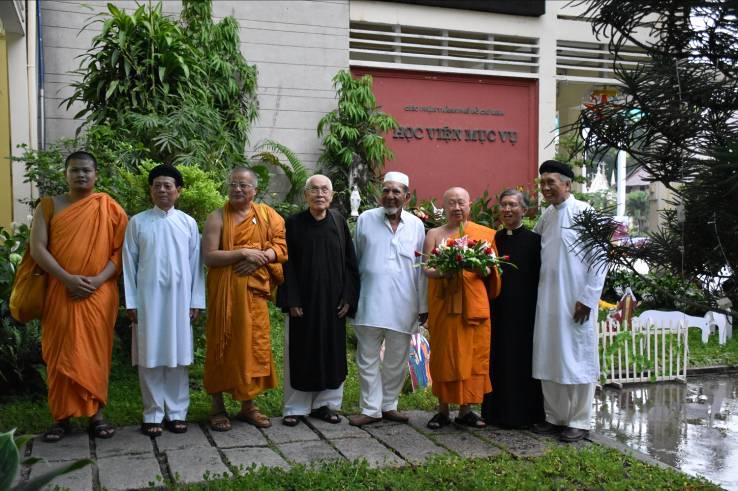 «These were days of ‘fire’, with the three monk-friends coming from Thailand: Phramaha Thongrattana Thavorn, Ajarn Suchart Vitipanyaporn, Bhikkhu Jayabhinunto and Mr. Khamphorn who accompanied them», Marcella and Luigi, Christian friends recounted, about the second week of December spent with the Buddhist monks in Ho Chi Minh City, Vietnam. Our friends stressed how «the atmosphere we breathed in these days was one of great openness and new horizons.» And continued by saying: «it was like living in a fable, so to say.» Some historical notes. The meeting of the monk, Phramaha Thongrattana Thavorn with the spirituality of unity goes back to 1995. He had come to Rome to accompany his disciple, Somjit, who was living for a short period in the community of monks before his marriage, as is the tradition of young Buddhists. Phramaha Thongrattana, which means ‘fine gold,’ and on that occasion had met Chiara Lubich and was strongly impressed. She too was impressed by him and on his request gave him a new name: Ardent Light. From then on this monk did his best to live and announce forcefully and with enthusiasm the ideal of universal brotherhood, the ideal of “mummy Chiara” (as he still calls her today). At the funeral of Chiara Lubich, in 2008, Ardent Light declared his wish to tell the Buddhists «how much good Chiara did to my life as a monk. I feel that she continues to give me an interior drive and the strength to bring the ideal of fraternity to all. She no longer belongs to you Christians, but now, she and her ideal are the legacy of the entire humanity.»
«These were days of ‘fire’, with the three monk-friends coming from Thailand: Phramaha Thongrattana Thavorn, Ajarn Suchart Vitipanyaporn, Bhikkhu Jayabhinunto and Mr. Khamphorn who accompanied them», Marcella and Luigi, Christian friends recounted, about the second week of December spent with the Buddhist monks in Ho Chi Minh City, Vietnam. Our friends stressed how «the atmosphere we breathed in these days was one of great openness and new horizons.» And continued by saying: «it was like living in a fable, so to say.» Some historical notes. The meeting of the monk, Phramaha Thongrattana Thavorn with the spirituality of unity goes back to 1995. He had come to Rome to accompany his disciple, Somjit, who was living for a short period in the community of monks before his marriage, as is the tradition of young Buddhists. Phramaha Thongrattana, which means ‘fine gold,’ and on that occasion had met Chiara Lubich and was strongly impressed. She too was impressed by him and on his request gave him a new name: Ardent Light. From then on this monk did his best to live and announce forcefully and with enthusiasm the ideal of universal brotherhood, the ideal of “mummy Chiara” (as he still calls her today). At the funeral of Chiara Lubich, in 2008, Ardent Light declared his wish to tell the Buddhists «how much good Chiara did to my life as a monk. I feel that she continues to give me an interior drive and the strength to bring the ideal of fraternity to all. She no longer belongs to you Christians, but now, she and her ideal are the legacy of the entire humanity.»  To go back to December 2016 in Ho Chi Min: «The first surprising fact – they said – was the bond of friendship that came about between Ardent Light and the Most Rev. Thich Thien Tam, monk in charge of the Pho Minh Pagoda, representative of both Theravada Buddhismo and of Mahayana in Vietnam. The latter is a personage who represents all aspects of Buddhism in Vietnam at international level. As a consequence of the trust and friendship generated between them, Rev. Thich Thien Tam had asked the competent authorities permission for the three monks to stay in the temple instead of a hotel as according to protocol. ». Various interreligious (and not only) events were held, such as their visit to two Christian communities, including lunch. The monks also took part in the Christmas feast, usually held for the local Christians, but they were welcomed with great joy by everyone. Then followed the two visits to social projects brought ahead by Christians inspired by the spirituality of unity. And then, the interreligious meeting at the Diocesan Pastoral Centre of Ho Chi Minh City, attended by representatives of five religions. On that occasion, Ardent Light spoke of his friendship with the Pope at that time, John Paul II and with Chiara Lubich. He explained about what she used to call “the art of loving”: a love that addresses everyone, and one that takes the initiative, that is able to be the other’s “neighbor,” that even goes to the point of loving and praying for one’s enemies… Marcella and Luigi recounted that «The eyes of some of the leaders present filled with tears – and to tell the truth, also those of our community.» The two hours of true dialogue concluded with the visit to the Archbishop emeritus, Cardinal J. Baptiste Phan Minh Man, who had so strongly worked for the creation of the interreligious dialogue at the Diocesan Pastoral Centre. The last day was dedicated to the visit to some temples, and acting as guide was Fr. Bao Loc, priest in charge of interreligious dialogue for the Diocese of Ho Chi Minh City. «Now new, unexpected horizons have opened before us, It is now up to us to continue the experience we have lived these days. Chiara’s legacy, of being always a family, is a reality that touches the hearts of everyone, when it is really lived.» By Gustavo Clariá
To go back to December 2016 in Ho Chi Min: «The first surprising fact – they said – was the bond of friendship that came about between Ardent Light and the Most Rev. Thich Thien Tam, monk in charge of the Pho Minh Pagoda, representative of both Theravada Buddhismo and of Mahayana in Vietnam. The latter is a personage who represents all aspects of Buddhism in Vietnam at international level. As a consequence of the trust and friendship generated between them, Rev. Thich Thien Tam had asked the competent authorities permission for the three monks to stay in the temple instead of a hotel as according to protocol. ». Various interreligious (and not only) events were held, such as their visit to two Christian communities, including lunch. The monks also took part in the Christmas feast, usually held for the local Christians, but they were welcomed with great joy by everyone. Then followed the two visits to social projects brought ahead by Christians inspired by the spirituality of unity. And then, the interreligious meeting at the Diocesan Pastoral Centre of Ho Chi Minh City, attended by representatives of five religions. On that occasion, Ardent Light spoke of his friendship with the Pope at that time, John Paul II and with Chiara Lubich. He explained about what she used to call “the art of loving”: a love that addresses everyone, and one that takes the initiative, that is able to be the other’s “neighbor,” that even goes to the point of loving and praying for one’s enemies… Marcella and Luigi recounted that «The eyes of some of the leaders present filled with tears – and to tell the truth, also those of our community.» The two hours of true dialogue concluded with the visit to the Archbishop emeritus, Cardinal J. Baptiste Phan Minh Man, who had so strongly worked for the creation of the interreligious dialogue at the Diocesan Pastoral Centre. The last day was dedicated to the visit to some temples, and acting as guide was Fr. Bao Loc, priest in charge of interreligious dialogue for the Diocese of Ho Chi Minh City. «Now new, unexpected horizons have opened before us, It is now up to us to continue the experience we have lived these days. Chiara’s legacy, of being always a family, is a reality that touches the hearts of everyone, when it is really lived.» By Gustavo Clariá

Jan 16, 2017 | Non categorizzato
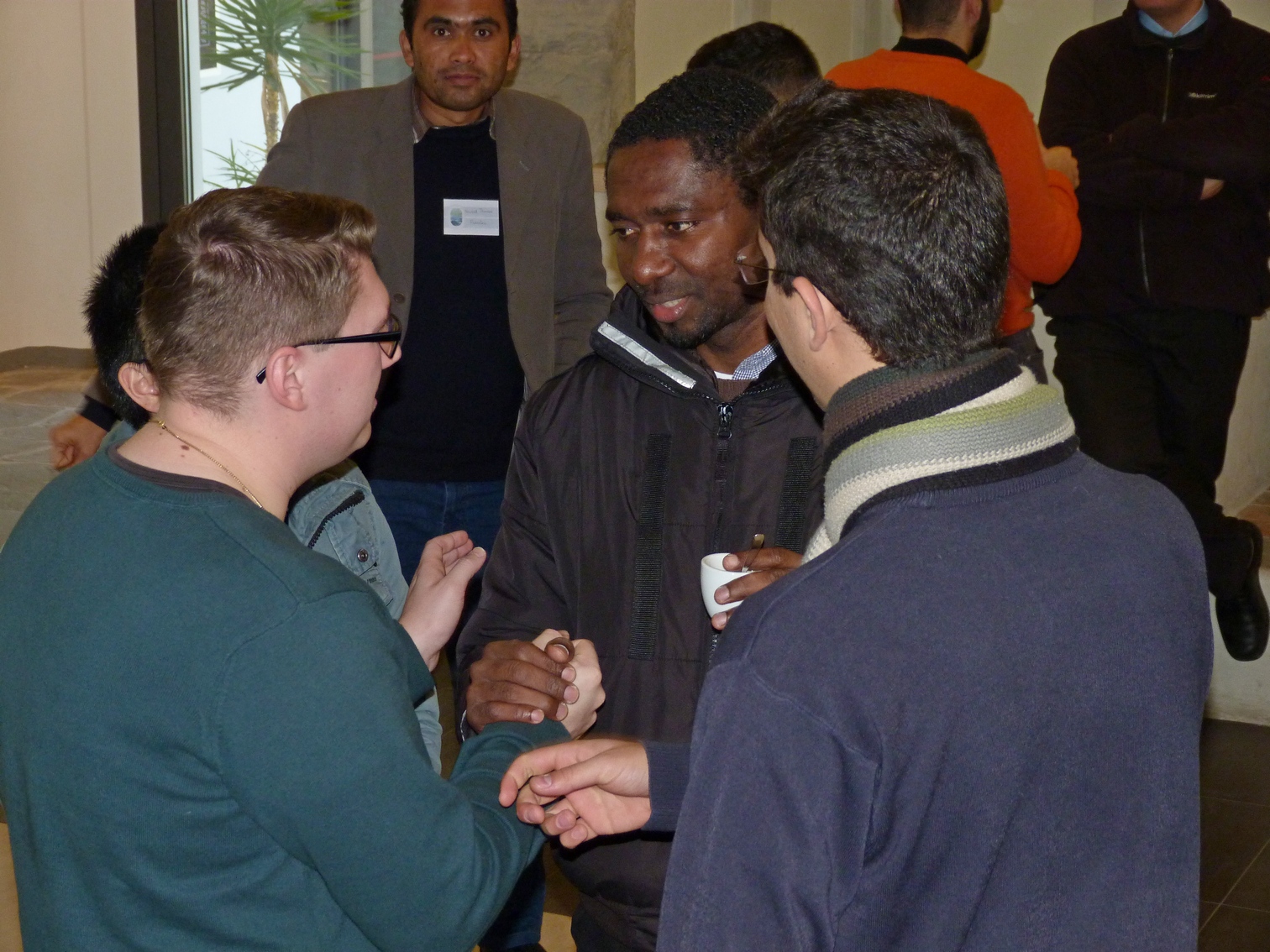 Over 40 seminarians and several priests from 17 countries on the 5 continents took an end-of-the-year holiday trip to Loppiano. “We chose the Focolare’s international town to have an experience of God in the communion among us,” they write, “and to go deeper into that radical choice of the Gospel that our heart burns for.” It was precisely the Gospel that they wanted to have as the basis of their stay in Loppiano, starting from the Golden Rule, that mandate which can also be found in the sacred writings of all the Great Religions: “So in everything, do to others as you would have them do to you” (Mt 7:12). The group stayed at Vinea Mea, the permanent residence of the School for Priests from different parts of the world who wish to be formed in the Focolare’s Spirituality of Unity and to experience a Church that St. John Paul II described as “Home and school of communion” (Novo Millennio Ineunte, 43). The seminarians were accompanied in their experience by the priests at Vinea Mea and by experts from Loppiano. The method used in presenting the topics – including some that were theologically quite dense – was dynamic and experiential and even included personal examples from their own lives, which helped the young men to come to terms with where they stood personally with Jesus’s message
Over 40 seminarians and several priests from 17 countries on the 5 continents took an end-of-the-year holiday trip to Loppiano. “We chose the Focolare’s international town to have an experience of God in the communion among us,” they write, “and to go deeper into that radical choice of the Gospel that our heart burns for.” It was precisely the Gospel that they wanted to have as the basis of their stay in Loppiano, starting from the Golden Rule, that mandate which can also be found in the sacred writings of all the Great Religions: “So in everything, do to others as you would have them do to you” (Mt 7:12). The group stayed at Vinea Mea, the permanent residence of the School for Priests from different parts of the world who wish to be formed in the Focolare’s Spirituality of Unity and to experience a Church that St. John Paul II described as “Home and school of communion” (Novo Millennio Ineunte, 43). The seminarians were accompanied in their experience by the priests at Vinea Mea and by experts from Loppiano. The method used in presenting the topics – including some that were theologically quite dense – was dynamic and experiential and even included personal examples from their own lives, which helped the young men to come to terms with where they stood personally with Jesus’s message 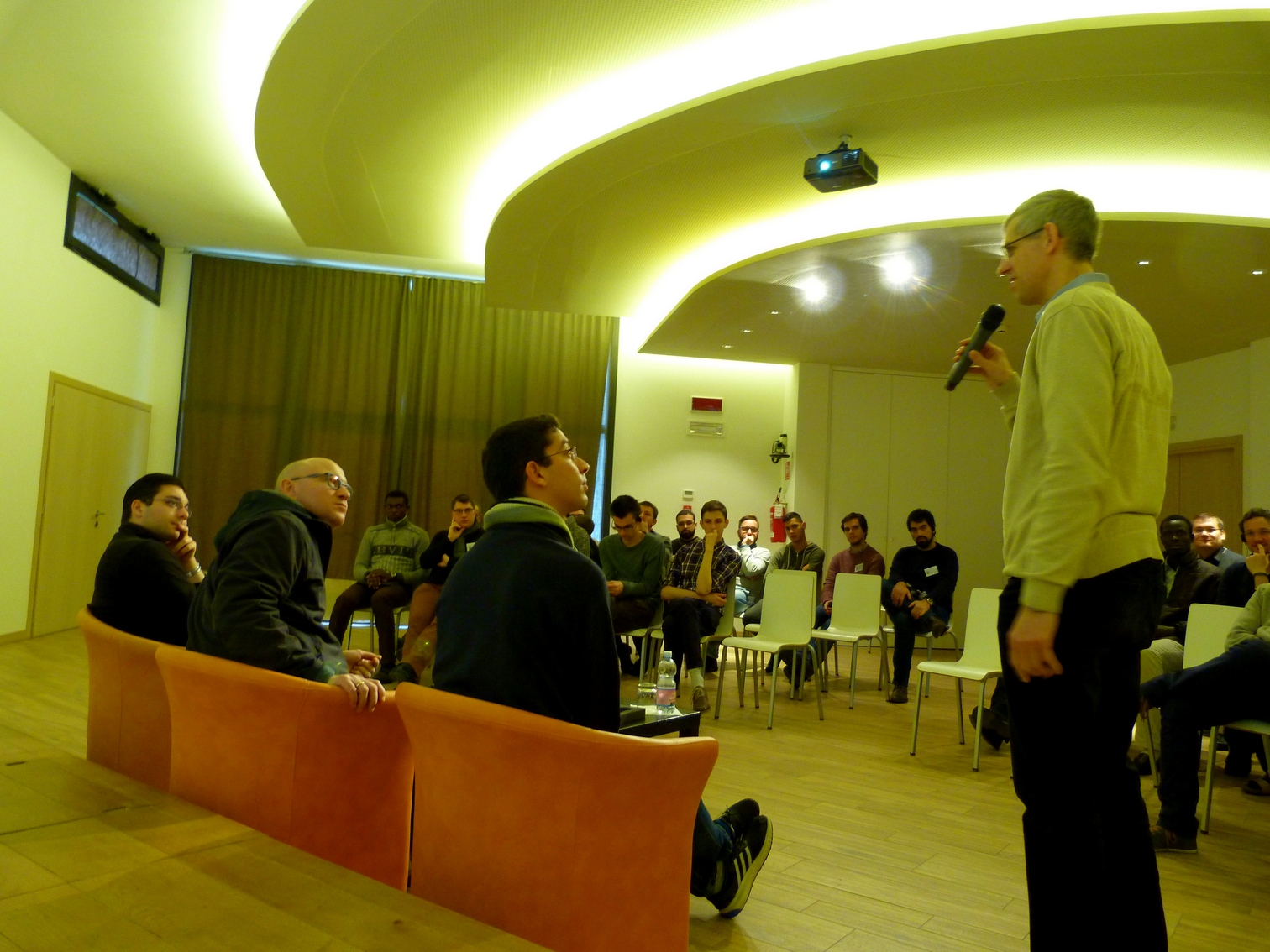 One of the seminarians writes: “I was very struck by one of the main points of the spirituality of Chiara Lubich, which was presented in the talk on ‘Jesus Forsaken, God’s window on the world and the world’s window on God’. I realized that his gaze of love opens the way for humankind toward God, but also opens God’s path toward humankind in a way that is ever new.” Another writes: “I understood that the Jesus who became a man out of love and expressed the culmination of that love in the abandonment on the cross, is not only a beautiful theological concept, but should become life in me, in love and service for whoever is near to me.” Their interaction with the citizens of Loppiano enhanced their understanding of how to build unity among themselves in spite of the many differences. Some impressions from at the concluding session: “In these days I discovered that even in our interpersonal relationships the key is being able to make myself nothing in front of the other person, as Jesus Forsaken did, burning the difficulties involved in the life of unity in Him.” “What struck me the most was the joy with which the inhabitants of the Mariapolis [Loppiano] face weariness and service, and transmit God to everyone else.” Compiled by the Gens Centre
One of the seminarians writes: “I was very struck by one of the main points of the spirituality of Chiara Lubich, which was presented in the talk on ‘Jesus Forsaken, God’s window on the world and the world’s window on God’. I realized that his gaze of love opens the way for humankind toward God, but also opens God’s path toward humankind in a way that is ever new.” Another writes: “I understood that the Jesus who became a man out of love and expressed the culmination of that love in the abandonment on the cross, is not only a beautiful theological concept, but should become life in me, in love and service for whoever is near to me.” Their interaction with the citizens of Loppiano enhanced their understanding of how to build unity among themselves in spite of the many differences. Some impressions from at the concluding session: “In these days I discovered that even in our interpersonal relationships the key is being able to make myself nothing in front of the other person, as Jesus Forsaken did, burning the difficulties involved in the life of unity in Him.” “What struck me the most was the joy with which the inhabitants of the Mariapolis [Loppiano] face weariness and service, and transmit God to everyone else.” Compiled by the Gens Centre
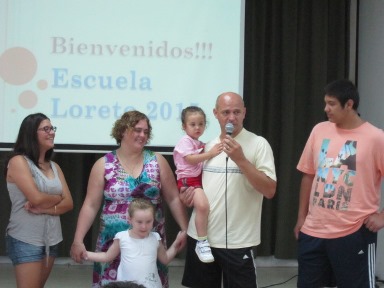
Jan 14, 2017 | Non categorizzato
 […] When God created humankind, he formed a family. When the Word of God came on earth, he chose to be born in a family. Jesus began his public life during the celebration of a new family. God had the family so much at heart; he considered it to be of such importance that he impressed on it his own image. In fact, the family reflects God’s very own life, the life of the Holy Trinity. […] So what was God’s plan for the family? God who is love, thought of the family as an intertwining of relationships of love: nuptial love between the couple, maternal and paternal love towards the children, filial love toward the parents, the love of grandparents for their grandchildren, of the grandchildren for their grandparents, for their uncles and aunts and vice versa. The family is therefore a treasure chest, a jewel, a mystery of love. This is how God thought of and created the family. Moreover, his Son, in redeeming the world, turned this natural love, which permeates the members of a family, into something sublime through the divine love he brought on earth, through the fire he wants to set alight everywhere. Through him, the family has become not only the primary cell of humanity created by God, but also the basic cell of the Church founded by his Son. Because of the supernatural love that the members of the family have for one another ‑ through baptism and the other sacraments, particularly the sacrament of matrimony ‑ they are called individually and collectively to the sublime heights of making the family a small church, an “ecclesiola”. […] Jesus wants the husband to see and love in his wife, not only the person with whom he shares his life, but to see and love Christ himself in her. In fact, Jesus considers done to him the way the husband treats his wife and vice versa. Furthermore, Jesus in the husband or wife must be loved in the measure that Jesus requires, as he expressed with the words, “Love one another as I have loved you” (John 13:34). They must love one another to the point of being ready to give their lives for one another. If parents keep this in mind throughout the day, whether they are praying, working or sharing a meal, whether they are resting or studying, laughing or playing with their children… every moment will be an opportunity for bearing witness to God. Morer: The Family and Prayer From Chiara Lubich’s talk to the international congress “Family and Society: The Family Centred on God is Open to all Humanity”, Castel Gandolfo, 8 April 1989.
[…] When God created humankind, he formed a family. When the Word of God came on earth, he chose to be born in a family. Jesus began his public life during the celebration of a new family. God had the family so much at heart; he considered it to be of such importance that he impressed on it his own image. In fact, the family reflects God’s very own life, the life of the Holy Trinity. […] So what was God’s plan for the family? God who is love, thought of the family as an intertwining of relationships of love: nuptial love between the couple, maternal and paternal love towards the children, filial love toward the parents, the love of grandparents for their grandchildren, of the grandchildren for their grandparents, for their uncles and aunts and vice versa. The family is therefore a treasure chest, a jewel, a mystery of love. This is how God thought of and created the family. Moreover, his Son, in redeeming the world, turned this natural love, which permeates the members of a family, into something sublime through the divine love he brought on earth, through the fire he wants to set alight everywhere. Through him, the family has become not only the primary cell of humanity created by God, but also the basic cell of the Church founded by his Son. Because of the supernatural love that the members of the family have for one another ‑ through baptism and the other sacraments, particularly the sacrament of matrimony ‑ they are called individually and collectively to the sublime heights of making the family a small church, an “ecclesiola”. […] Jesus wants the husband to see and love in his wife, not only the person with whom he shares his life, but to see and love Christ himself in her. In fact, Jesus considers done to him the way the husband treats his wife and vice versa. Furthermore, Jesus in the husband or wife must be loved in the measure that Jesus requires, as he expressed with the words, “Love one another as I have loved you” (John 13:34). They must love one another to the point of being ready to give their lives for one another. If parents keep this in mind throughout the day, whether they are praying, working or sharing a meal, whether they are resting or studying, laughing or playing with their children… every moment will be an opportunity for bearing witness to God. Morer: The Family and Prayer From Chiara Lubich’s talk to the international congress “Family and Society: The Family Centred on God is Open to all Humanity”, Castel Gandolfo, 8 April 1989.
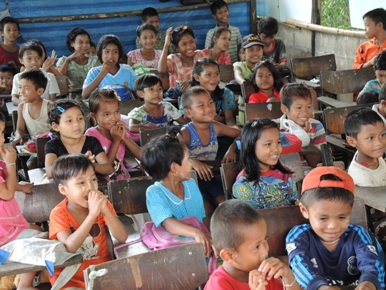
Jan 13, 2017 | Focolare Worldwide
 One of my acquaintances, years ago said: “wherever there are the poor, money also abounds.” I was young then and didn’t believe in those words: after 26 years in Asia, I realised to my dismay, that this is true also in Mae Sot. Notwithstanding any type of sustainable development or minimum respect for man and nature, paths are paved, and projects are springing up to bring the big industries, relocating them from where they find difficulty in being productive or are kicked out because it is illicit and dangerous for people’s health. All this is because there is a “work force” at low cost, very low, if not at zero cost; and on the other hand, there are the very wealthy people, ready to exploit the situation. The poor cross the border from Myanmar to Thailand, to escape from hunger and the discomforts of a country that is still struggling to reach social equality and protect the less fortunate classes or those of other religions. People are continuously expelled at the checkpoint and there are shooting incidents, with the children bearing the brunt of it all. There is a growing number of orphans, disabled and abandoned children, or those left alone at home while their parents are at work in the plantations. It is really sad to see children suffering! And Mae Sot is full of them. This is why we are trying to do something for them through our project. Every time we go to that area, we find our “special spots”: the orphanages, isolated homes in the countryside, and our little school Goccia dopo Goccia (Drop by Drop) with about 60 students: the places where you see so many of those kids with big black eyes that mark your soul indelibly. Our project is now in its 6th year (even if we have been helping the Karen people for decades) and reaches about 250 people in three countries (Thailand, Laos and Vietnam). All are direct and concrete micro projects for families often living below the minimum subsistence threshold. Their needs? Certainly food, clothes, but above all, love which means care, a smile, a bit of attention, in short: someone who says “how are you?” That means meeting people who know how to share the sufferings of a migrant population that is worth very little in the eyes of the rich, and is thus exploited. This is what we are trying to do: helping them, staying by their side, and giving relief, hope and warmth. Through our local contact person our aid reaches them monthly. Every three months we do the rounds of our projects, visiting them to make them feel that they have not been abandoned. They often say, “The fact that you travel so far to come and visit, gives us the strength and determination to go on living.” Those black eyes and unsmiling faces say more than a thousand words. They remind us of the works of Chiara Lubich who inspired our project: “Bring to me all the lonely people.” And we feel that these lonely people are all “ours” because they are images of the face of Jesus who continues to cry out on the Cross asking for all the love we can give. This is the sense of our project, but even more, it is our intimate joy. By: Luigi Butori For those who wish to join in the project: Banca Cantonale dei Grigioni, 7002 Coira IBAN-Nr: CH19 0077 4010 2957 6490 0 Goccia dopo Goccia Residenza Ragazzi 196a CH 7742 Poschiavo, Svizzera e mail: gica.ceccarelli@bluewin.ch oppure gocciadopogoccia.ms@gmail.com Association recognised by the tax administration of the Grigione district. Donations can be detracted from taxes..
One of my acquaintances, years ago said: “wherever there are the poor, money also abounds.” I was young then and didn’t believe in those words: after 26 years in Asia, I realised to my dismay, that this is true also in Mae Sot. Notwithstanding any type of sustainable development or minimum respect for man and nature, paths are paved, and projects are springing up to bring the big industries, relocating them from where they find difficulty in being productive or are kicked out because it is illicit and dangerous for people’s health. All this is because there is a “work force” at low cost, very low, if not at zero cost; and on the other hand, there are the very wealthy people, ready to exploit the situation. The poor cross the border from Myanmar to Thailand, to escape from hunger and the discomforts of a country that is still struggling to reach social equality and protect the less fortunate classes or those of other religions. People are continuously expelled at the checkpoint and there are shooting incidents, with the children bearing the brunt of it all. There is a growing number of orphans, disabled and abandoned children, or those left alone at home while their parents are at work in the plantations. It is really sad to see children suffering! And Mae Sot is full of them. This is why we are trying to do something for them through our project. Every time we go to that area, we find our “special spots”: the orphanages, isolated homes in the countryside, and our little school Goccia dopo Goccia (Drop by Drop) with about 60 students: the places where you see so many of those kids with big black eyes that mark your soul indelibly. Our project is now in its 6th year (even if we have been helping the Karen people for decades) and reaches about 250 people in three countries (Thailand, Laos and Vietnam). All are direct and concrete micro projects for families often living below the minimum subsistence threshold. Their needs? Certainly food, clothes, but above all, love which means care, a smile, a bit of attention, in short: someone who says “how are you?” That means meeting people who know how to share the sufferings of a migrant population that is worth very little in the eyes of the rich, and is thus exploited. This is what we are trying to do: helping them, staying by their side, and giving relief, hope and warmth. Through our local contact person our aid reaches them monthly. Every three months we do the rounds of our projects, visiting them to make them feel that they have not been abandoned. They often say, “The fact that you travel so far to come and visit, gives us the strength and determination to go on living.” Those black eyes and unsmiling faces say more than a thousand words. They remind us of the works of Chiara Lubich who inspired our project: “Bring to me all the lonely people.” And we feel that these lonely people are all “ours” because they are images of the face of Jesus who continues to cry out on the Cross asking for all the love we can give. This is the sense of our project, but even more, it is our intimate joy. By: Luigi Butori For those who wish to join in the project: Banca Cantonale dei Grigioni, 7002 Coira IBAN-Nr: CH19 0077 4010 2957 6490 0 Goccia dopo Goccia Residenza Ragazzi 196a CH 7742 Poschiavo, Svizzera e mail: gica.ceccarelli@bluewin.ch oppure gocciadopogoccia.ms@gmail.com Association recognised by the tax administration of the Grigione district. Donations can be detracted from taxes..
Jan 12, 2017 | Non categorizzato
https://vimeo.com/192602876 Copyright 2016 © CSC Audiovisivi – All rights reserved

Jan 11, 2017 | Focolare Worldwide
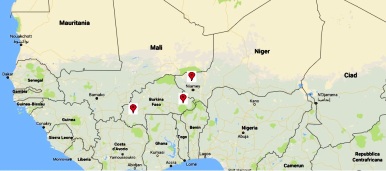 “We’ve just completed our journey that took us from Bobo-Dioulasso to Dorì, the most northern city of Burkina Faso; and then it was on to Niamey in Niger. The objective was to respond to the community that has gathered in the Focolare spirit to share experiences and the first fruits of life that have begun to spread in these lands of the Sahel.” This is how focolarini Aurora and Pascal from the focolare in Bobo Dioulasso begin their recount. Bobo Dioulasso is the second largest city in Burkina Faso and the headquarters of the local Focolare Movement . Burkina with its 17 million inhabitants (50% Muslim, 30% Christian and 20% traditional religions) is one of the poorest countries in the world, along with nearby Niger. “We reached Niamey, the capital of Niger, where we were welcomed with much joy by the community, including Archbishop Laurent Lompo who became a priest, he says, because of the first Mariapolis he attended. Archbishop Lompo is a real shepherd, close to his people and very concrete in his love. He shared with us his many experiences of friendship and dialogue with Muslims who make up 93% of the population of 10 million people. The relationship of the Christians with the Muslim world is a challenge, especially after January 17, 2015 when Islamist extremists burned more than 70 Christian churches following the Charlie Hebdo attacks in Paris.”
“We’ve just completed our journey that took us from Bobo-Dioulasso to Dorì, the most northern city of Burkina Faso; and then it was on to Niamey in Niger. The objective was to respond to the community that has gathered in the Focolare spirit to share experiences and the first fruits of life that have begun to spread in these lands of the Sahel.” This is how focolarini Aurora and Pascal from the focolare in Bobo Dioulasso begin their recount. Bobo Dioulasso is the second largest city in Burkina Faso and the headquarters of the local Focolare Movement . Burkina with its 17 million inhabitants (50% Muslim, 30% Christian and 20% traditional religions) is one of the poorest countries in the world, along with nearby Niger. “We reached Niamey, the capital of Niger, where we were welcomed with much joy by the community, including Archbishop Laurent Lompo who became a priest, he says, because of the first Mariapolis he attended. Archbishop Lompo is a real shepherd, close to his people and very concrete in his love. He shared with us his many experiences of friendship and dialogue with Muslims who make up 93% of the population of 10 million people. The relationship of the Christians with the Muslim world is a challenge, especially after January 17, 2015 when Islamist extremists burned more than 70 Christian churches following the Charlie Hebdo attacks in Paris.”  “Archbishop Lompo suggested that we also visit a woman in Hawa who had once attended Focolare events but now, for family reasons, had become a Muslim. Surprised and moved by our visit, she told us about her family and the beautiful hours together in the Mariapolis. When she heard that there would be another Mariapolis in the area, she promised that she would start preparig to be there. It was so beautiful to see in her and so many other Muslims that we met, their joy at being able to live in the City of Mary (Mariapolis) the experience of mutual love.” “Lastly, we visited a small community in Niamey; such deep people, desirous to live the Gospel and go forward in the experience of unity. Maybe our visit encouraged them on that path. One of them said to us in the name of everyone else: “It’s true that here in Africa we have to live so many difficult situations, but with the spirituality of Chiara Lubich we learn to love others, taking on their suffering and pain. How much I want this ideal of brotherhood to invade the Church and our country’s society!” Aurora De Oliveira and Pascal Pontien Ntawuyankira
“Archbishop Lompo suggested that we also visit a woman in Hawa who had once attended Focolare events but now, for family reasons, had become a Muslim. Surprised and moved by our visit, she told us about her family and the beautiful hours together in the Mariapolis. When she heard that there would be another Mariapolis in the area, she promised that she would start preparig to be there. It was so beautiful to see in her and so many other Muslims that we met, their joy at being able to live in the City of Mary (Mariapolis) the experience of mutual love.” “Lastly, we visited a small community in Niamey; such deep people, desirous to live the Gospel and go forward in the experience of unity. Maybe our visit encouraged them on that path. One of them said to us in the name of everyone else: “It’s true that here in Africa we have to live so many difficult situations, but with the spirituality of Chiara Lubich we learn to love others, taking on their suffering and pain. How much I want this ideal of brotherhood to invade the Church and our country’s society!” Aurora De Oliveira and Pascal Pontien Ntawuyankira
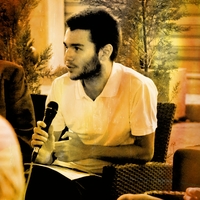
Jan 10, 2017 | Non categorizzato
 Piotr, what made you choose to enroll in Sophia? Many factors are involved. During high school I had the fortune to meet a philosopher from Turin by the name of Costanzo Preve, who introduced me to philosophical studies, an interest that arose from the attraction I felt for politics. His Hegelian-Marxist philosophical approach opened my eyes to social totality which likewise made the choice of my university studies very challenging; I could not make up my mind between economics, politics and philosophy. Towards the end of high school, a professor spoke to me about Sophia, even though it offered only Master’s courses. Finally, in order to have a diploma that would give me more job possibilities, I chose the three-year degree in economics in Genoa. But this choice was not really satisfactory… My dissatisfaction with the “mainstream” syllabus plans of many courses made me join the international network called “Rethinking Economics” to promote economic, methodological and interdisciplinary pluralism in the university methods of teaching economics, and the founding of a local seat for the network. Concurrently, and in an independent way, I continued my musical and philosophical studies. Besides, I had become a journalist and am part of the editorial staff of the paper “Termometro Politico” (Political Thermometre) and for some months now, direct the ecclesial debate magazine Grandsons of Maritain. In short, along the years I had read some essays of the Rector Piero Coda and had asked him if I could visit Sophia. I came twice, before enrolling. And every time my “Sophian” vocation became increasingly evident. What course have you decided to undertake and how have the first months in Sophia been? I chosen Trinitarian ontology, also because it gives me the chance to benefit from the agreement with Perugia University for the dual diploma, so as to achieve, besides that of the Vatican, also an Italian Master’s in philosophy specializing in didactics, which will, in the future give me the chance to teach in high schools. In these first months almost all of us have attended the same courses in philosophy, theology, politics and economics, which will enable us to start our studies on a common basis. This interdisciplinarity in my case, was not at all a surprise, but a conscious choice. From the academic viewpoint, Sophia’s level is very high and has given me the chance to deepen the course themes I am personally interested in. At the end of August I started to live in the residence, exactly two floors above the university facilities, together with 9 boys of all continents – from Argentina to China, from Germany to Tanzania, and across countries like the Lebanon. It is an excellent coexistence, well organized even in the housework: I immediately felt that we are brothers, in our little daily concerns. How about your projects? I can’t say much about this, since at this moment, new paths are opening out before me; the medium-term objective is to obtain my degree, but for my thesis I am considering various themes, and as oftentimes occurs, probably none of these will be the definitive one. Later, I may consider a Doctorate, but time will tell. I would like however to carry on with my journalistic activities, and, from the employment point of view, I would not really mind teaching, or find a job in the publishing sector. I don’t really want to set any limits to the Spirit who could inspire me to take other paths. Source: IUS online
Piotr, what made you choose to enroll in Sophia? Many factors are involved. During high school I had the fortune to meet a philosopher from Turin by the name of Costanzo Preve, who introduced me to philosophical studies, an interest that arose from the attraction I felt for politics. His Hegelian-Marxist philosophical approach opened my eyes to social totality which likewise made the choice of my university studies very challenging; I could not make up my mind between economics, politics and philosophy. Towards the end of high school, a professor spoke to me about Sophia, even though it offered only Master’s courses. Finally, in order to have a diploma that would give me more job possibilities, I chose the three-year degree in economics in Genoa. But this choice was not really satisfactory… My dissatisfaction with the “mainstream” syllabus plans of many courses made me join the international network called “Rethinking Economics” to promote economic, methodological and interdisciplinary pluralism in the university methods of teaching economics, and the founding of a local seat for the network. Concurrently, and in an independent way, I continued my musical and philosophical studies. Besides, I had become a journalist and am part of the editorial staff of the paper “Termometro Politico” (Political Thermometre) and for some months now, direct the ecclesial debate magazine Grandsons of Maritain. In short, along the years I had read some essays of the Rector Piero Coda and had asked him if I could visit Sophia. I came twice, before enrolling. And every time my “Sophian” vocation became increasingly evident. What course have you decided to undertake and how have the first months in Sophia been? I chosen Trinitarian ontology, also because it gives me the chance to benefit from the agreement with Perugia University for the dual diploma, so as to achieve, besides that of the Vatican, also an Italian Master’s in philosophy specializing in didactics, which will, in the future give me the chance to teach in high schools. In these first months almost all of us have attended the same courses in philosophy, theology, politics and economics, which will enable us to start our studies on a common basis. This interdisciplinarity in my case, was not at all a surprise, but a conscious choice. From the academic viewpoint, Sophia’s level is very high and has given me the chance to deepen the course themes I am personally interested in. At the end of August I started to live in the residence, exactly two floors above the university facilities, together with 9 boys of all continents – from Argentina to China, from Germany to Tanzania, and across countries like the Lebanon. It is an excellent coexistence, well organized even in the housework: I immediately felt that we are brothers, in our little daily concerns. How about your projects? I can’t say much about this, since at this moment, new paths are opening out before me; the medium-term objective is to obtain my degree, but for my thesis I am considering various themes, and as oftentimes occurs, probably none of these will be the definitive one. Later, I may consider a Doctorate, but time will tell. I would like however to carry on with my journalistic activities, and, from the employment point of view, I would not really mind teaching, or find a job in the publishing sector. I don’t really want to set any limits to the Spirit who could inspire me to take other paths. Source: IUS online
Jan 9, 2017 | Non categorizzato
https://vimeo.com/192601012 Copyright 2016 © CSC Audiovisivi – All rights reserved
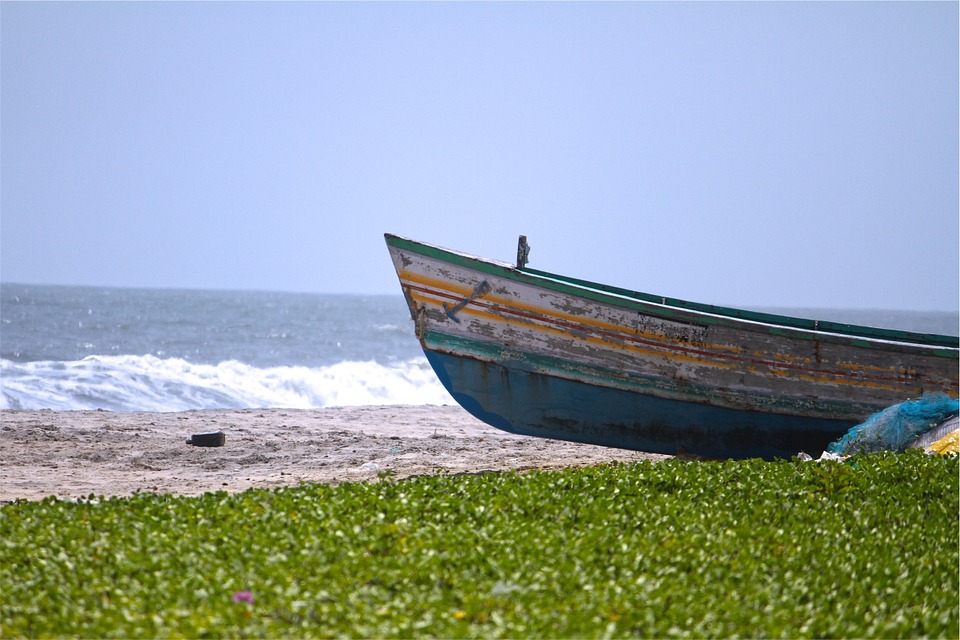
Jan 8, 2017 | Senza categoria
 Migrants We watched the first disembarkations in our cities. Today the initial receptions were moved to the courtyard in front of the municipal gym next to our home, and so from my balcony I could watch the long lines of migrants with bare feet or in singlets and shorts, waiting to pass through the first checkpoint. Suddenly it became very windy and the temperature dropped. I could no longer stand still. I had to do something for these brothers already harshly put to the test. I went out and noted an acquaintance among the members of the surveillance team, and learned from him that they were short of clothing. I returned home, and with my husband, put together what we thought could be useful, and after a few trips, delivered all to his friend, to be distributed. Also other acquaintances who we had notified, added other clothing. It had started to rain, but almost all had now received some clothing. Many smiled at us saying “grazie” (thank you in Italian), perhaps one of the few words they knew. Raffaella (Italy) Fund gathering When I found out that the father of a big and poor family needed an urgent operation but did not have the means to pay for it, I felt Jesus was prodding me to do something. With some friends, I made the effort to start raising funds, involving also our colleagues at work. Once I gathered the necessary amount, I accompanied the sick man to the hospital, and paid for the relevant treatment. The operation was a success. I can’t say if the joy of that family was greater than ours. I think that also small gestures contribute to building peace. N. Y. (Jordan) Neighbours The neighbour in front of our house was sick and needed many treatments. Her husband had gone on pension ahead of time to take care of her. My husband and I felt we had to do something and became their friends. While conversing with them one day, we ended up talking about our faith. We found out that she had stopped going to Church due to the incorrect behaviour of some priests; the husband instead, did not have much time for anything else due to work. When I recounted how God had come into my life, my neighbor started to ask many questions, and deduced that perhaps, illness itself could be a bridge that God was offering to her, as a means to move away from the heavy and sad atmosphere reigning in that house. She also started to give more care more to her looks. One evening her husband confided: «There is no medicine that can give serenity, and for some time now we are exploiting this asset». L. M. (France) BY: Oreste Paliotti
Migrants We watched the first disembarkations in our cities. Today the initial receptions were moved to the courtyard in front of the municipal gym next to our home, and so from my balcony I could watch the long lines of migrants with bare feet or in singlets and shorts, waiting to pass through the first checkpoint. Suddenly it became very windy and the temperature dropped. I could no longer stand still. I had to do something for these brothers already harshly put to the test. I went out and noted an acquaintance among the members of the surveillance team, and learned from him that they were short of clothing. I returned home, and with my husband, put together what we thought could be useful, and after a few trips, delivered all to his friend, to be distributed. Also other acquaintances who we had notified, added other clothing. It had started to rain, but almost all had now received some clothing. Many smiled at us saying “grazie” (thank you in Italian), perhaps one of the few words they knew. Raffaella (Italy) Fund gathering When I found out that the father of a big and poor family needed an urgent operation but did not have the means to pay for it, I felt Jesus was prodding me to do something. With some friends, I made the effort to start raising funds, involving also our colleagues at work. Once I gathered the necessary amount, I accompanied the sick man to the hospital, and paid for the relevant treatment. The operation was a success. I can’t say if the joy of that family was greater than ours. I think that also small gestures contribute to building peace. N. Y. (Jordan) Neighbours The neighbour in front of our house was sick and needed many treatments. Her husband had gone on pension ahead of time to take care of her. My husband and I felt we had to do something and became their friends. While conversing with them one day, we ended up talking about our faith. We found out that she had stopped going to Church due to the incorrect behaviour of some priests; the husband instead, did not have much time for anything else due to work. When I recounted how God had come into my life, my neighbor started to ask many questions, and deduced that perhaps, illness itself could be a bridge that God was offering to her, as a means to move away from the heavy and sad atmosphere reigning in that house. She also started to give more care more to her looks. One evening her husband confided: «There is no medicine that can give serenity, and for some time now we are exploiting this asset». L. M. (France) BY: Oreste Paliotti
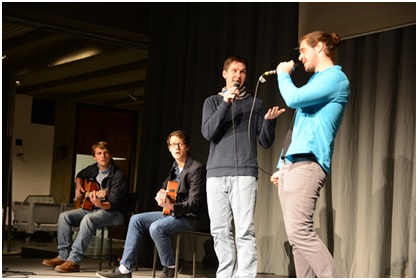
Jan 7, 2017 | Focolare Worldwide, Senza categoria
 An enriching evening of classical, dance, pop, contemplative, jazz, a musical and a buffet. The fourth edition of the benefit concert was promoted by the Focolare’s Youth for a United World in Vienna and by young people from Mor Efrem of the Syro-Orthodox community. Two hundred people showed up in spite of the freezing night temperatures of December, to support Syrian refugees. The “Singing Voices Choir” comprised of young people that included some Spanish speakers wished everyone a “Feliz Navidad” with song and dance. David Watzl presented Aktion Weitblick, a project that offers aid to refugees inside Europe and on its borders. He had spent two weeks at a refugee camp in Turkey where, with a group of volunteers from Aktion Weitblick, he organized afternoon games for children, classes in hygiene and many other activities. The Ishtar Syrian Dance Group brought the concert to a close with lively eastern dance that got the whole audience moving. Afterwards, a tasty buffet provided an opportunity for actors, visitors and refugees to mingle and know one another, and to plan future projects. The evening ended in a warm and fraternal atmosphere. Compiled by Young for Unity, Vienna, Austria
An enriching evening of classical, dance, pop, contemplative, jazz, a musical and a buffet. The fourth edition of the benefit concert was promoted by the Focolare’s Youth for a United World in Vienna and by young people from Mor Efrem of the Syro-Orthodox community. Two hundred people showed up in spite of the freezing night temperatures of December, to support Syrian refugees. The “Singing Voices Choir” comprised of young people that included some Spanish speakers wished everyone a “Feliz Navidad” with song and dance. David Watzl presented Aktion Weitblick, a project that offers aid to refugees inside Europe and on its borders. He had spent two weeks at a refugee camp in Turkey where, with a group of volunteers from Aktion Weitblick, he organized afternoon games for children, classes in hygiene and many other activities. The Ishtar Syrian Dance Group brought the concert to a close with lively eastern dance that got the whole audience moving. Afterwards, a tasty buffet provided an opportunity for actors, visitors and refugees to mingle and know one another, and to plan future projects. The evening ended in a warm and fraternal atmosphere. Compiled by Young for Unity, Vienna, Austria
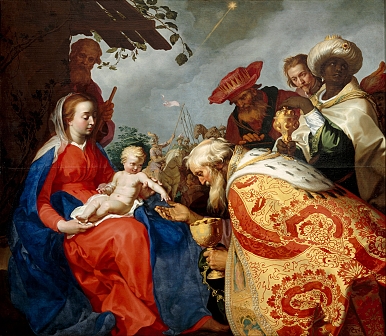
Jan 6, 2017 | Non categorizzato
 “Lord, this Christmas we entrust to You all the ones who seem far from You, the many who were once close to you but no longer are because of all the evils in the world that have taken them away from You. They don’t know You, but search for You with pure and sincere hearts. They don’t know that one day, one sweet day, You appeared on this earth as a baby. This Christmas, Lord, we entrust to You especially the ones without faith. We entrust them to You so that a ray of your Light might make its way to them, that because of their sincerity and good will the star that leads to You might shine at least for a moment so that they too will know the joy of those who acknowledge and love You. We entrust to You those who seem far from You, Lord, because we know that it was especially for these that You became a child.” Chiara Lubich, E torna Natale …, (Rome: Città Nuova, 2007), p. 59-60.
“Lord, this Christmas we entrust to You all the ones who seem far from You, the many who were once close to you but no longer are because of all the evils in the world that have taken them away from You. They don’t know You, but search for You with pure and sincere hearts. They don’t know that one day, one sweet day, You appeared on this earth as a baby. This Christmas, Lord, we entrust to You especially the ones without faith. We entrust them to You so that a ray of your Light might make its way to them, that because of their sincerity and good will the star that leads to You might shine at least for a moment so that they too will know the joy of those who acknowledge and love You. We entrust to You those who seem far from You, Lord, because we know that it was especially for these that You became a child.” Chiara Lubich, E torna Natale …, (Rome: Città Nuova, 2007), p. 59-60.

Jan 5, 2017 | Non categorizzato
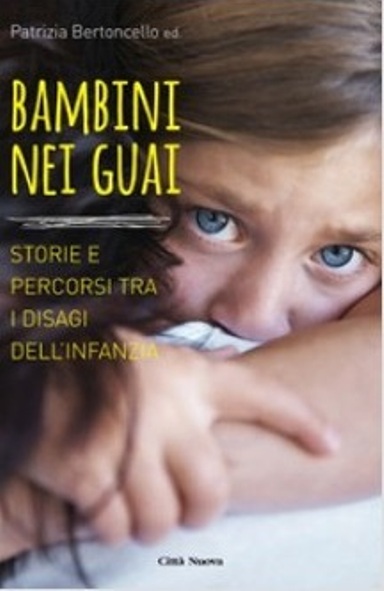 “A long stint as a primary school teacher – book curator, Patrizia Bertoncello, starts – soon led me to perceive those typical signs of distress which are more present in the peripheries than elsewhere. Often the children themselves talked about it. “Once upon a time there was a flower – Cristina, seven years old, wrote in class – her daddy-flower had left them and also mother-flower was not with him since she had so much to do and was very worried. She didn’t have time to listen to him. The flower was a rose with a thousand thorns. There were so many and pricked so much. The flower wanted to befriend the insects of the woods and the other flowers. But when they came close they got pricked so hard and ran away quickly, since she stung so much. And nothing could be done about it. In the end the rose was always alone and very sad.”(1) This is the lucid explanation she herself gave for those repeated pranks in class which isolated her from everyone. Like her, but with different problems, were the numerous children in distress, even in a world like ours that seems to be livable and protective, but not without contradictions and ambivalences weighing on the weaker sections of humanity. At times those institutions which in words advocate the rights of children, in fact, do little about it. Especially those children who cannot count on effective parents or long-lasting family relations are thus left in a sort of shadow zone, affective instability and often lacerating poverty. The lack of protection and real growth opportunities are conditions that certainly are not worthy of a society like ours. This is why I often asked myself how I could give a voice to these “invisible children,” and contribute to the building of a culture of protection and total respect for infancy.
“A long stint as a primary school teacher – book curator, Patrizia Bertoncello, starts – soon led me to perceive those typical signs of distress which are more present in the peripheries than elsewhere. Often the children themselves talked about it. “Once upon a time there was a flower – Cristina, seven years old, wrote in class – her daddy-flower had left them and also mother-flower was not with him since she had so much to do and was very worried. She didn’t have time to listen to him. The flower was a rose with a thousand thorns. There were so many and pricked so much. The flower wanted to befriend the insects of the woods and the other flowers. But when they came close they got pricked so hard and ran away quickly, since she stung so much. And nothing could be done about it. In the end the rose was always alone and very sad.”(1) This is the lucid explanation she herself gave for those repeated pranks in class which isolated her from everyone. Like her, but with different problems, were the numerous children in distress, even in a world like ours that seems to be livable and protective, but not without contradictions and ambivalences weighing on the weaker sections of humanity. At times those institutions which in words advocate the rights of children, in fact, do little about it. Especially those children who cannot count on effective parents or long-lasting family relations are thus left in a sort of shadow zone, affective instability and often lacerating poverty. The lack of protection and real growth opportunities are conditions that certainly are not worthy of a society like ours. This is why I often asked myself how I could give a voice to these “invisible children,” and contribute to the building of a culture of protection and total respect for infancy. 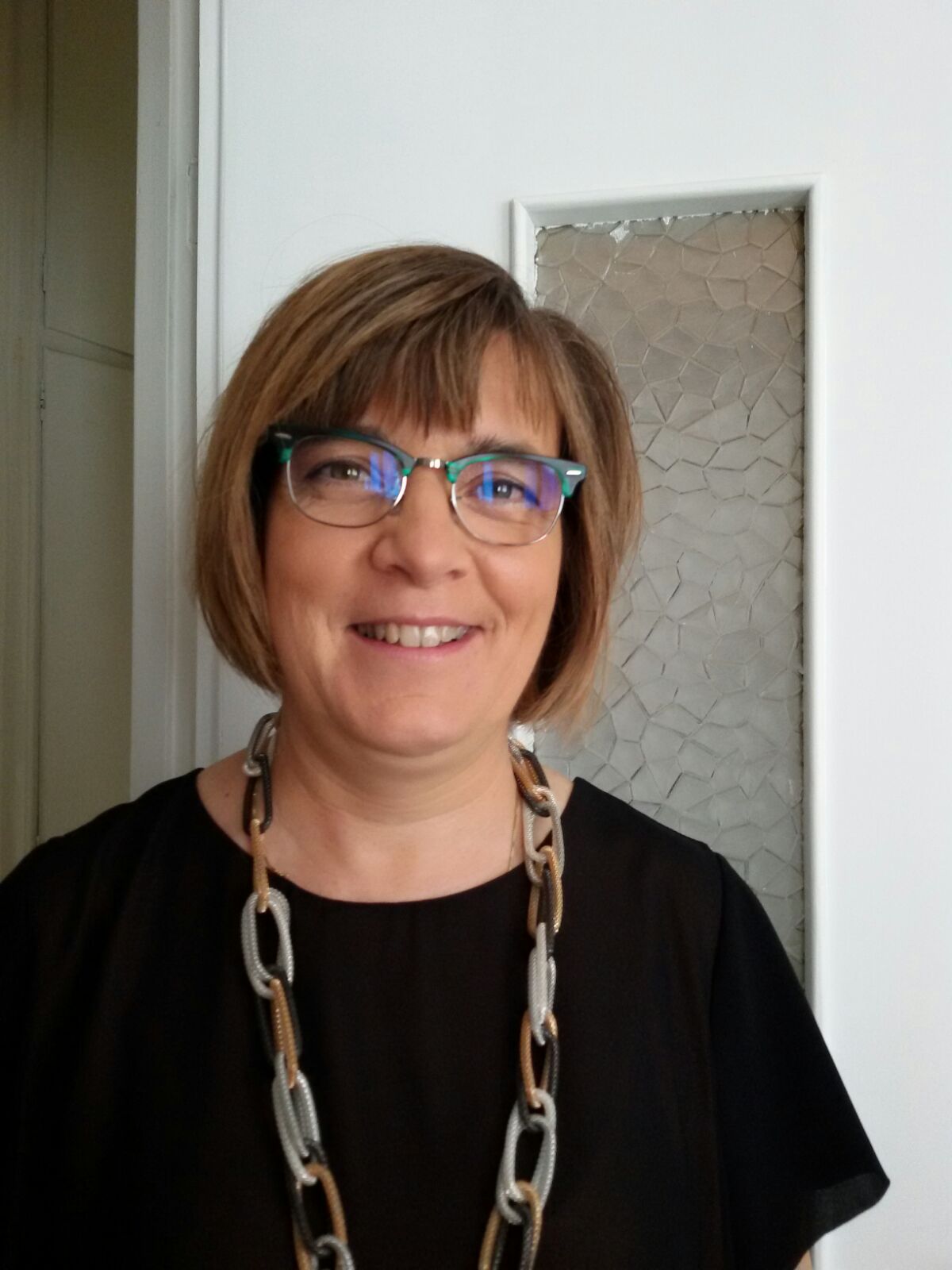 I started by trying to welcome some of my students with love, and slowly I saw that their tears dried up. I realised that to really “encounter” the world of the little ones, we have to approach each child with attention, and learn to see things through their eyes, making use of all our energies and skills to create important relationships. With other operators and professionals driven by the same educative style, I then tried to start up procedures in which the children and their families experience really educational relationships. From this cooperation the idea of a book came up, to narrate not only the stories of the “invisible children,” but also about good practices and redemptive pathways. “Children in Trouble,” said an oncologist, a social worker, a paediatrician and me, who curated the book, wants to bring out those seeds of hope and positive relations that become in some way, generators of resilience. Through that resource, many children when suitably aided are able to concretise and reach good recovery levels. The same happened to Emma. When she was eight years of age, overwhelmed by the split up of the family she had tried to commit suicide. Recently, after contacting me on Facebook, she wrote: “Dear teacher, how I miss you and the many moments we spent together! Do you remember when you read stories to us, taking on the voice of the characters? And the school trip to the sea? These will certainly never be erased from my heart and the love you showed me when all was dark around me. When I was in the hospital after the tragic event, you were there and didn’t ask me why I had done it. You were there, and that’s all. Then I returned to school with those wounds and you made everyone make those bracelets with coloured threads… but I knew that it was to help me hide those scars I didn’t want others to see…”(2) At the presentation of the book in universities and seminars, it was really surprising to see the attention and seriousness of the audience who started to take notice of that child next door, or the one who is begging in the subway or in a hospital ward. They were children who were invisible and now can return to being protagonists of their own future. By Anna Friso 1) – 2) – Patrizia Bertoncello – Bambini nei guai (Children in trouble) – Città Nuova Ed. 2015, p. 11 and p. 66
I started by trying to welcome some of my students with love, and slowly I saw that their tears dried up. I realised that to really “encounter” the world of the little ones, we have to approach each child with attention, and learn to see things through their eyes, making use of all our energies and skills to create important relationships. With other operators and professionals driven by the same educative style, I then tried to start up procedures in which the children and their families experience really educational relationships. From this cooperation the idea of a book came up, to narrate not only the stories of the “invisible children,” but also about good practices and redemptive pathways. “Children in Trouble,” said an oncologist, a social worker, a paediatrician and me, who curated the book, wants to bring out those seeds of hope and positive relations that become in some way, generators of resilience. Through that resource, many children when suitably aided are able to concretise and reach good recovery levels. The same happened to Emma. When she was eight years of age, overwhelmed by the split up of the family she had tried to commit suicide. Recently, after contacting me on Facebook, she wrote: “Dear teacher, how I miss you and the many moments we spent together! Do you remember when you read stories to us, taking on the voice of the characters? And the school trip to the sea? These will certainly never be erased from my heart and the love you showed me when all was dark around me. When I was in the hospital after the tragic event, you were there and didn’t ask me why I had done it. You were there, and that’s all. Then I returned to school with those wounds and you made everyone make those bracelets with coloured threads… but I knew that it was to help me hide those scars I didn’t want others to see…”(2) At the presentation of the book in universities and seminars, it was really surprising to see the attention and seriousness of the audience who started to take notice of that child next door, or the one who is begging in the subway or in a hospital ward. They were children who were invisible and now can return to being protagonists of their own future. By Anna Friso 1) – 2) – Patrizia Bertoncello – Bambini nei guai (Children in trouble) – Città Nuova Ed. 2015, p. 11 and p. 66
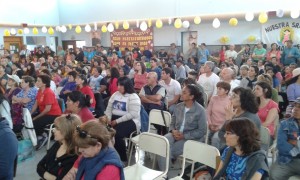
Jan 4, 2017 | Focolare Worldwide, Senza categoria
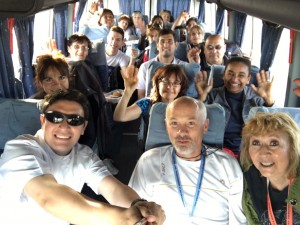 Per raggiungere Gan Gan, un villaggio che dista da Trelew poco più di 300 km, occorrono, bel tempo permettendo, 6/7 ore di viaggio. Si devono infatti affrontare i pendii della meseta di Chubut, che qui sono particolarmente impervi. In genere sono in pochi a visitare Gan Gan, che con i suoi 800 abitanti, a maggioranza indigeni mapuches e tehuelches, si è tristemente guadagnato la fama di “villaggio dimenticato da tutti”. Il 19 e 20 novembre scorso, proprio a Gan Gan si è tenuta una missione, con la partecipazione di persone venute da parrocchie e da realtà associative di Trelew. Durante il viaggio, la comitiva approfitta per rinsaldare la conoscenza reciproca e riflettere sul significato di questo spingersi verso i più poveri in risposta all’appello di papa Francesco. Ad attenderli, la festosa accoglienza della gente, con i suoi canti tipici, mentre un sacerdote li introduce nella realtà di questo tratto di altopiano dove sono ancora presenti miniere che vengono lavorate a cielo aperto, con gravi conseguenze per la contaminazione dell’ambiente. A fare gli onori di casa è un’anziana del villaggio, che nella sua lingua mapuche dà il benvenuto e presenta mons. Croxatto, vescovo ausiliare di Comodoro Rivadavia anch’egli venuto per la missione. Si inizia con la celebrazione di 5 battesimi. «Il sogno di uno di questi bambini, che ha già 4 anni – racconta una focolarina che fa parte della comitiva –, era di essere battezzato da papa Francesco. Il vescovo, ornato da tutti i paramenti, con grande amore gli spiega che il Papa è impossibilitato a venire fin quassù, ma che aveva conferito a lui il mandato di battezzarlo. Alla cerimonia è seguito un pranzo con cibo generosamente portato dalla gente e condiviso fra tutti». Poi i missionari iniziano a percorrere, in preghiera, l’intero villaggio: «Una processione che per gli scenari che si presentano ai nostri occhi – racconta un’altra focolarina presente – sembra una Via Crucis. La gente è disposta lungo la strada e racconta drammi di abbandono, solitudine, violenza, mancanza di giustizia: dalla mamma cui hanno ucciso il figlio, a quella il cui figlio è desaparecido, dalla poverissima casa di ricovero per anziani, alla cappella in desolante abbandono. Ciò che fa più impressione sono i volti della gente, anzitempo solcati da rughe di dolore e di stenti. Impressionante anche la quantità di persone che desiderano confessarsi. I sacerdoti ascoltano ininterrottamente le loro confessioni mentre la processione procede silenziosa. Altro momento forte è la messa della prima comunione con la cresima a 15 persone, alcune adulte e addirittura già nonne. A vedere come i sacerdoti si prodigano in questa realtà socialmente così lacerata, a come cercano di farsi vicini ai problemi della gente, tornano alla mente le parole di papa Francesco quando dice che i pastori debbono avere addosso l’odore delle loro pecore».
Per raggiungere Gan Gan, un villaggio che dista da Trelew poco più di 300 km, occorrono, bel tempo permettendo, 6/7 ore di viaggio. Si devono infatti affrontare i pendii della meseta di Chubut, che qui sono particolarmente impervi. In genere sono in pochi a visitare Gan Gan, che con i suoi 800 abitanti, a maggioranza indigeni mapuches e tehuelches, si è tristemente guadagnato la fama di “villaggio dimenticato da tutti”. Il 19 e 20 novembre scorso, proprio a Gan Gan si è tenuta una missione, con la partecipazione di persone venute da parrocchie e da realtà associative di Trelew. Durante il viaggio, la comitiva approfitta per rinsaldare la conoscenza reciproca e riflettere sul significato di questo spingersi verso i più poveri in risposta all’appello di papa Francesco. Ad attenderli, la festosa accoglienza della gente, con i suoi canti tipici, mentre un sacerdote li introduce nella realtà di questo tratto di altopiano dove sono ancora presenti miniere che vengono lavorate a cielo aperto, con gravi conseguenze per la contaminazione dell’ambiente. A fare gli onori di casa è un’anziana del villaggio, che nella sua lingua mapuche dà il benvenuto e presenta mons. Croxatto, vescovo ausiliare di Comodoro Rivadavia anch’egli venuto per la missione. Si inizia con la celebrazione di 5 battesimi. «Il sogno di uno di questi bambini, che ha già 4 anni – racconta una focolarina che fa parte della comitiva –, era di essere battezzato da papa Francesco. Il vescovo, ornato da tutti i paramenti, con grande amore gli spiega che il Papa è impossibilitato a venire fin quassù, ma che aveva conferito a lui il mandato di battezzarlo. Alla cerimonia è seguito un pranzo con cibo generosamente portato dalla gente e condiviso fra tutti». Poi i missionari iniziano a percorrere, in preghiera, l’intero villaggio: «Una processione che per gli scenari che si presentano ai nostri occhi – racconta un’altra focolarina presente – sembra una Via Crucis. La gente è disposta lungo la strada e racconta drammi di abbandono, solitudine, violenza, mancanza di giustizia: dalla mamma cui hanno ucciso il figlio, a quella il cui figlio è desaparecido, dalla poverissima casa di ricovero per anziani, alla cappella in desolante abbandono. Ciò che fa più impressione sono i volti della gente, anzitempo solcati da rughe di dolore e di stenti. Impressionante anche la quantità di persone che desiderano confessarsi. I sacerdoti ascoltano ininterrottamente le loro confessioni mentre la processione procede silenziosa. Altro momento forte è la messa della prima comunione con la cresima a 15 persone, alcune adulte e addirittura già nonne. A vedere come i sacerdoti si prodigano in questa realtà socialmente così lacerata, a come cercano di farsi vicini ai problemi della gente, tornano alla mente le parole di papa Francesco quando dice che i pastori debbono avere addosso l’odore delle loro pecore».  Nel viaggio di ritorno viene creato un gruppo whatsapp perché tutti vogliono che l’esperienza della missione non finisca qui. Molti dicono che a Gan Gan bisogna tornare, colpiti dall’esperienza forte e profonda di essersi sentiti – pastori e laici – un unico popolo di Dio. E per aver vissuto, insieme, l’esperienza di “uscire” come Chiesa per incontrare i più deboli. Toccante l’esperienza condivisa da uno dei sacerdoti che durante il pranzo comunitario era andato a far visita ai parenti di una signora di Trelew nativa di Gan Gan. «L’impatto è stato molto forte – racconta –. Erano due fratelli di 83 e 81 anni ambedue sordi: la signora al 90% e il fratello, non vedente al 100%. Vivono in una stanza di due metri per due, con i due letti disposti a L. La porta è quasi inesistente e il pavimento di nuda terra. Il freddo che entra dalla porta e quello che affiora dal pavimento, non fa che accentuare l’artrosi di cui soffre la donna. Nel cuore mi è rimasta una ferita. Penso che la missione, che pure è andata bene, non avrebbe senso se non facciamo qualcosa per dare dignità a questi indigenti». Alla sera già arrivano le prime risposte via whatsapp al parroco: «Abbiamo trovato i soldi per rifare la porta. Mandaci le misure». Fonte: Focolares Cono Sur online
Nel viaggio di ritorno viene creato un gruppo whatsapp perché tutti vogliono che l’esperienza della missione non finisca qui. Molti dicono che a Gan Gan bisogna tornare, colpiti dall’esperienza forte e profonda di essersi sentiti – pastori e laici – un unico popolo di Dio. E per aver vissuto, insieme, l’esperienza di “uscire” come Chiesa per incontrare i più deboli. Toccante l’esperienza condivisa da uno dei sacerdoti che durante il pranzo comunitario era andato a far visita ai parenti di una signora di Trelew nativa di Gan Gan. «L’impatto è stato molto forte – racconta –. Erano due fratelli di 83 e 81 anni ambedue sordi: la signora al 90% e il fratello, non vedente al 100%. Vivono in una stanza di due metri per due, con i due letti disposti a L. La porta è quasi inesistente e il pavimento di nuda terra. Il freddo che entra dalla porta e quello che affiora dal pavimento, non fa che accentuare l’artrosi di cui soffre la donna. Nel cuore mi è rimasta una ferita. Penso che la missione, che pure è andata bene, non avrebbe senso se non facciamo qualcosa per dare dignità a questi indigenti». Alla sera già arrivano le prime risposte via whatsapp al parroco: «Abbiamo trovato i soldi per rifare la porta. Mandaci le misure». Fonte: Focolares Cono Sur online
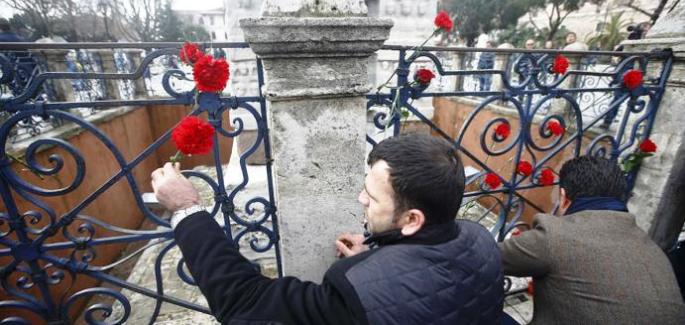
Jan 2, 2017 | Non categorizzato
«I woke up this morning, 1 January, ready to live this day and year which was just dawning – wrote a friend from Istanbul – and the first news that hit me was that of the attack in the Reina Club Disco in the night. The immediate sense of pain and bewilderment: It can’t be true!!! After a few hours I read the word of life of the month: “If we have really experienced His love, we cannot but love in turn, and step in with courage, wherever there is division, conflict, hatred, so as to bring harmony, peace and unity. Love enables us to launch our hearts beyond the obstacle….” This is precisely said for me, for us, who want to continue believing and live for universal peace and brotherhood. The wishes we exchanged during the day with many friends are pervaded with a mixture of discouragement and hope. No! We will not allow ourselves to be overcome by those who want to make us think that peace is a utopia. And from all over the world, many people make us feel that we are not alone». And it is really true: they are not alone. Though bewildered for the enactment of so much unjust violence, we are in fact, not alone in facing the challenge to work each day for the advent of peace. We want to respond to the appeal of Pope Francis, expressed in his message for the World Peace Day we have just celebrated: «In2017, let us undertake the commitment, with prayer and action, to become people who have banned violence from their hearts, words and gestures, and build non-violent communities that take care of our common home».
from Istanbul – and the first news that hit me was that of the attack in the Reina Club Disco in the night. The immediate sense of pain and bewilderment: It can’t be true!!! After a few hours I read the word of life of the month: “If we have really experienced His love, we cannot but love in turn, and step in with courage, wherever there is division, conflict, hatred, so as to bring harmony, peace and unity. Love enables us to launch our hearts beyond the obstacle….” This is precisely said for me, for us, who want to continue believing and live for universal peace and brotherhood. The wishes we exchanged during the day with many friends are pervaded with a mixture of discouragement and hope. No! We will not allow ourselves to be overcome by those who want to make us think that peace is a utopia. And from all over the world, many people make us feel that we are not alone». And it is really true: they are not alone. Though bewildered for the enactment of so much unjust violence, we are in fact, not alone in facing the challenge to work each day for the advent of peace. We want to respond to the appeal of Pope Francis, expressed in his message for the World Peace Day we have just celebrated: «In2017, let us undertake the commitment, with prayer and action, to become people who have banned violence from their hearts, words and gestures, and build non-violent communities that take care of our common home».
Jan 2, 2017 | Non categorizzato
https://vimeo.com/196291342 (Copyright 2016 © CSC Audiovisivi – All rights reserved)
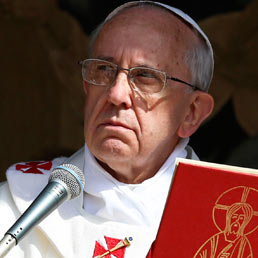
Jan 1, 2017 | Non categorizzato
 While the last century knew the devastation of two deadly World Wars, the threat of nuclear war and a great number of other conflicts, today, sadly, we find ourselves engaged in a horrifying world war fought piecemeal. […] wars in different countries and continents; terrorism, organized crime and unforeseen acts of violence; the abuses suffered by migrants and victims of human trafficking; and the devastation of the environment. […]Violence is not the cure for our broken world. Countering violence with violence leads at best to forced migrations and enormous suffering, because vast amounts of resources are diverted to military ends and away from the everyday needs of young people, families experiencing hardship, the elderly, the infirm and the great majority of people in our world. At worst, it can lead to the death, physical and spiritual, of many people, if not of all. To be true followers of Jesus today also includes embracing his teaching about nonviolence. […] When Mother Teresa received the Nobel Peace Prize in 1979, she clearly stated her own message of active nonviolence: ‘We in our family don’t need bombs and guns, to destroy to bring peace – just get together, love one another… And we will be able to overcome all the evil that is in the world.’ […] She bowed down before those who were spent, left to die on the side of the road, seeing in them their God-given dignity; she made her voice heard before the powers of this world, so that they might recognize their guilt for the crimes – the crimes! – of poverty they created. […]The decisive and consistent practice of nonviolence has produced impressive results. The achievements of Mahatma Gandhi and Khan Abdul Ghaffar Khan in the liberation of India, and of Dr Martin Luther King Jr in combating racial discrimination will never be forgotten. Women in particular are often leaders of nonviolence, as for example, was Leymah Gbowee and the thousands of Liberian women, who organized pray-ins and nonviolent protest that resulted in high-level peace talks to end the second civil war in Liberia. Such efforts on behalf of the victims of injustice and violence are not the legacy of the Catholic Church alone, but are typical of many religious traditions, for which “compassion and nonviolence are essential elements pointing to the way of life. I emphatically reaffirm that “no religion is terrorist. Violence profanes the name of God. Let us never tire of repeating: The name of God cannot be used to justify violence. Peace alone is holy. Peace alone is holy, not war! If violence has its source in the human heart, then it is fundamental that nonviolence be practised before all else within families. This is part of that joy of love which I described last March in my Exhortation Amoris Laetitia, in the wake of two years of reflection by the Church on marriage and the family. The family is the indispensable crucible in which spouses, parents and children, brothers and sisters, learn to communicate and to show generous concern for one another, and in which frictions and even conflicts have to be resolved not by force but by dialogue, respect, concern for the good of the other, mercy and forgiveness. I plead for disarmament and for the prohibition and abolition of nuclear weapons: nuclear deterrence and the threat of mutual assured destruction are incapable of grounding such an ethics. I plead with equal urgency for an end to domestic violence and to the abuse of women and children. In 2017, may we dedicate ourselves prayerfully and actively to banishing violence from our hearts, words and deeds, and to becoming nonviolent people and to building nonviolent communities that care for our common home. Nothing is impossible if we turn to God in prayer. Everyone can be an artisan of peace” Read the whole message.
While the last century knew the devastation of two deadly World Wars, the threat of nuclear war and a great number of other conflicts, today, sadly, we find ourselves engaged in a horrifying world war fought piecemeal. […] wars in different countries and continents; terrorism, organized crime and unforeseen acts of violence; the abuses suffered by migrants and victims of human trafficking; and the devastation of the environment. […]Violence is not the cure for our broken world. Countering violence with violence leads at best to forced migrations and enormous suffering, because vast amounts of resources are diverted to military ends and away from the everyday needs of young people, families experiencing hardship, the elderly, the infirm and the great majority of people in our world. At worst, it can lead to the death, physical and spiritual, of many people, if not of all. To be true followers of Jesus today also includes embracing his teaching about nonviolence. […] When Mother Teresa received the Nobel Peace Prize in 1979, she clearly stated her own message of active nonviolence: ‘We in our family don’t need bombs and guns, to destroy to bring peace – just get together, love one another… And we will be able to overcome all the evil that is in the world.’ […] She bowed down before those who were spent, left to die on the side of the road, seeing in them their God-given dignity; she made her voice heard before the powers of this world, so that they might recognize their guilt for the crimes – the crimes! – of poverty they created. […]The decisive and consistent practice of nonviolence has produced impressive results. The achievements of Mahatma Gandhi and Khan Abdul Ghaffar Khan in the liberation of India, and of Dr Martin Luther King Jr in combating racial discrimination will never be forgotten. Women in particular are often leaders of nonviolence, as for example, was Leymah Gbowee and the thousands of Liberian women, who organized pray-ins and nonviolent protest that resulted in high-level peace talks to end the second civil war in Liberia. Such efforts on behalf of the victims of injustice and violence are not the legacy of the Catholic Church alone, but are typical of many religious traditions, for which “compassion and nonviolence are essential elements pointing to the way of life. I emphatically reaffirm that “no religion is terrorist. Violence profanes the name of God. Let us never tire of repeating: The name of God cannot be used to justify violence. Peace alone is holy. Peace alone is holy, not war! If violence has its source in the human heart, then it is fundamental that nonviolence be practised before all else within families. This is part of that joy of love which I described last March in my Exhortation Amoris Laetitia, in the wake of two years of reflection by the Church on marriage and the family. The family is the indispensable crucible in which spouses, parents and children, brothers and sisters, learn to communicate and to show generous concern for one another, and in which frictions and even conflicts have to be resolved not by force but by dialogue, respect, concern for the good of the other, mercy and forgiveness. I plead for disarmament and for the prohibition and abolition of nuclear weapons: nuclear deterrence and the threat of mutual assured destruction are incapable of grounding such an ethics. I plead with equal urgency for an end to domestic violence and to the abuse of women and children. In 2017, may we dedicate ourselves prayerfully and actively to banishing violence from our hearts, words and deeds, and to becoming nonviolent people and to building nonviolent communities that care for our common home. Nothing is impossible if we turn to God in prayer. Everyone can be an artisan of peace” Read the whole message.
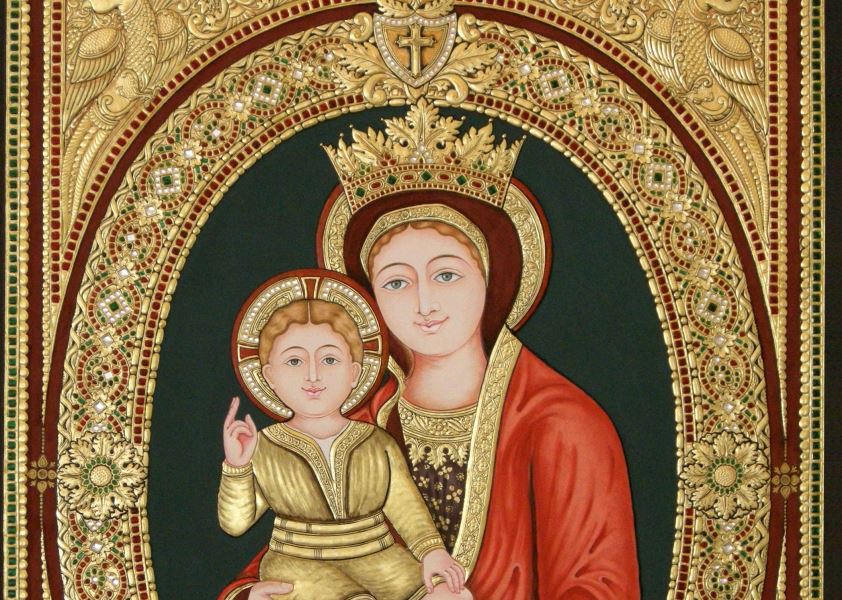
Dec 31, 2016 | Non categorizzato
 (…) History is all about wars and when we were children at school we almost learned that wars are good and holy, almost as if this is what protects our own land. (…) But if we hear the appeals of the Popes echoing in our hearts (…) we would hear their dread of war in the world and how their words, whether called for or not, appealed to leaders to try to appease anger and self-interest and to avert the terrible tragedy of war, through which everything is lost, while everything is gained by peace. This is because history is a succession of fratricidal conflicts between peoples who are brothers and sisters and who have been given a piece of land to cultivate and live on by the one Lord of the world. He blesses peace because he embodied peace. We see how one by one the Lord is conquering the hearts of his children of all nations, of all languages, transforming them into children of Love, Joy, Peace, Courage, and Strength. So we hope that the Lord will have mercy on this divided and wild world, on these peoples locked up in their own shell contemplating their own beauty – which is special for them – yet limited and inadequate, clinging on with clenched teeth to their own treasures, even those goods that could help other peoples where many are dying of hunger, and that he will break down the barriers and let charity flow continuously between one land and another, in a torrential flow of spiritual and material goods. We hope that the Lord will establish a new order in the world. He alone can make humanity a family and cultivate what is distinctive among peoples, so that the splendor of each people, placed at the service of the others, may shine out with the one light of life that beautifies the earthly homeland and makes it the waiting room of the eternal Homeland. Perhaps what I am saying sounds like a dream. Nonetheless – apart from the fact that if mutual love is the relationship among Christians, then the relationship among Christian nations cannot be other than mutual love because of the unchanging logic of the Gospel – there is a bond that already unites people strongly, proclaimed by the voice of the people and of all peoples, the people’s voice which so often is God’s voice. This hidden and protected bond in the heart of every nation is Mary. Who could take from the Brazilians the thought that Mary is the Queen of their land? And who would deny to the Portuguese that Mary is “Our Lady of Fatima”? Who would not allow the French the “beautiful little Lady of Lourdes”? Or the Poles Our Lady of Czestochowa? Or not let the English see their land as the “dowry of Mary”? And who could deny that Mary is the “Castellana of Italy” (…) All Christian nations have already proclaimed her their Queen, theirs and their children’s. But one thing is missing, and Mary cannot do it, so we have to help her. We need to collaborate so that Catholic peoples, united like many brothers and sisters, might go to her and together recognize her as Mother and Queen. We can enthrone her if, through our conversion, our prayers, and actions, we remove the veil that still covers her crown, (…) and lay down the piece of the world that is in our hands … at the feet of the greatest Queen that Heaven and earth can know. She is Queen of peoples, Queen of Saints, Queen of Angels, because when she was on earth she was able to sacrifice herself completely, the Handmaid of the Lord, and teach her children the way of unity, of embracing all peoples, so that earth might become as it is in Heaven. From Essential Writings p 222-233
(…) History is all about wars and when we were children at school we almost learned that wars are good and holy, almost as if this is what protects our own land. (…) But if we hear the appeals of the Popes echoing in our hearts (…) we would hear their dread of war in the world and how their words, whether called for or not, appealed to leaders to try to appease anger and self-interest and to avert the terrible tragedy of war, through which everything is lost, while everything is gained by peace. This is because history is a succession of fratricidal conflicts between peoples who are brothers and sisters and who have been given a piece of land to cultivate and live on by the one Lord of the world. He blesses peace because he embodied peace. We see how one by one the Lord is conquering the hearts of his children of all nations, of all languages, transforming them into children of Love, Joy, Peace, Courage, and Strength. So we hope that the Lord will have mercy on this divided and wild world, on these peoples locked up in their own shell contemplating their own beauty – which is special for them – yet limited and inadequate, clinging on with clenched teeth to their own treasures, even those goods that could help other peoples where many are dying of hunger, and that he will break down the barriers and let charity flow continuously between one land and another, in a torrential flow of spiritual and material goods. We hope that the Lord will establish a new order in the world. He alone can make humanity a family and cultivate what is distinctive among peoples, so that the splendor of each people, placed at the service of the others, may shine out with the one light of life that beautifies the earthly homeland and makes it the waiting room of the eternal Homeland. Perhaps what I am saying sounds like a dream. Nonetheless – apart from the fact that if mutual love is the relationship among Christians, then the relationship among Christian nations cannot be other than mutual love because of the unchanging logic of the Gospel – there is a bond that already unites people strongly, proclaimed by the voice of the people and of all peoples, the people’s voice which so often is God’s voice. This hidden and protected bond in the heart of every nation is Mary. Who could take from the Brazilians the thought that Mary is the Queen of their land? And who would deny to the Portuguese that Mary is “Our Lady of Fatima”? Who would not allow the French the “beautiful little Lady of Lourdes”? Or the Poles Our Lady of Czestochowa? Or not let the English see their land as the “dowry of Mary”? And who could deny that Mary is the “Castellana of Italy” (…) All Christian nations have already proclaimed her their Queen, theirs and their children’s. But one thing is missing, and Mary cannot do it, so we have to help her. We need to collaborate so that Catholic peoples, united like many brothers and sisters, might go to her and together recognize her as Mother and Queen. We can enthrone her if, through our conversion, our prayers, and actions, we remove the veil that still covers her crown, (…) and lay down the piece of the world that is in our hands … at the feet of the greatest Queen that Heaven and earth can know. She is Queen of peoples, Queen of Saints, Queen of Angels, because when she was on earth she was able to sacrifice herself completely, the Handmaid of the Lord, and teach her children the way of unity, of embracing all peoples, so that earth might become as it is in Heaven. From Essential Writings p 222-233
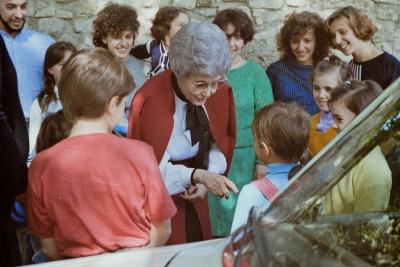
Dec 30, 2016 | Focolare Worldwide, Senza categoria
Download brochure with program Streaming event 11 March, 16:00-18:30 (CET, UTC+1)
A path o f life and thought to be shared throughout the year, at all latitudes. 50 years after its founding, there will be, in 2017 various local events and initiatives in various countries worldwide. A roadmap of life and thought in various phases will highlight the anthropological and universal value of the family in the perspective of “universal brotherhood,” and testify to the richness of social and cultural diversity, together with the ideal of unity concretised in family life. The central event will be held in Loppiano from 10 -12 March 2017. About 800 people from all over the world are expected to attend. The families will immerse themselves fully in the reality of the international town of the Focolare, and bear witness to Chiara’s dream in all the continents. In the morning there will be workshops for adults, youth, teenagers and children, held in collaboration with the parish movement, the gen3 and gen4 centres, the no-profit AFN and AMU. In the afternoon the meeting in the Auditorium will be aired via live streaming and will highlight the experts of family themes, who will be participating in the Cultural Seminar to be held at the Sophia University (10 -11 March 2017). This seminar with its characteristic universal outlook will give rise to the future Study Center on the family, with the objective of enhancing the contribution of the spirituality of unity to the family in the challenges it has to face today. For information: www.famiglienuove.org famiglienuove@focolare.org
f life and thought to be shared throughout the year, at all latitudes. 50 years after its founding, there will be, in 2017 various local events and initiatives in various countries worldwide. A roadmap of life and thought in various phases will highlight the anthropological and universal value of the family in the perspective of “universal brotherhood,” and testify to the richness of social and cultural diversity, together with the ideal of unity concretised in family life. The central event will be held in Loppiano from 10 -12 March 2017. About 800 people from all over the world are expected to attend. The families will immerse themselves fully in the reality of the international town of the Focolare, and bear witness to Chiara’s dream in all the continents. In the morning there will be workshops for adults, youth, teenagers and children, held in collaboration with the parish movement, the gen3 and gen4 centres, the no-profit AFN and AMU. In the afternoon the meeting in the Auditorium will be aired via live streaming and will highlight the experts of family themes, who will be participating in the Cultural Seminar to be held at the Sophia University (10 -11 March 2017). This seminar with its characteristic universal outlook will give rise to the future Study Center on the family, with the objective of enhancing the contribution of the spirituality of unity to the family in the challenges it has to face today. For information: www.famiglienuove.org famiglienuove@focolare.org
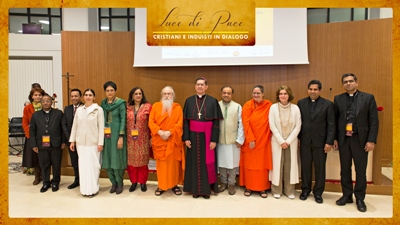
Dec 30, 2016 | Non categorizzato
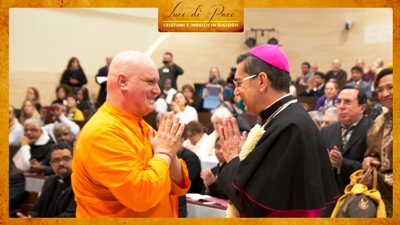 “So is craving, so is anger, they arise from the Rajas, the passion of the senses that devours everything” (Bhagavad Gita, 3:37)[1]. These words were chosen by Paramahamsa Svami Yogananda Ghiri, honorary president of the Italian Hindu Union (UII), in his welcome speech at the first Christian-Hindu Conference that crowded the main hall of the Pontifical Gregorian University on December 6, 20016. The conference was opened by Cardinal Jean-Louis Tauran, president of the Pontifical Council for Interreligious Dialogue. He was the promoter of the event in collaboration with the UII, the Italian Bishops Conference, Religions for Peace and the Focolare Movement. The cardinal expressed his joy for this moment of dialogue that was so promising and hopeful: “With our interior light that consumes and illumines, we will be able to direct our every step along the path of Peace.” Christians and Hindus were equally represented by 300 people who were animated by a desire for communion and understanding. Like emblems, a Lamp and Crucifix adorned the hall, both symbols of light. Light and Peace was the title of the day spent in dialogue and in the search of Peace. The words of Bishop Paul Gallagher, Secretary for [Vatican] Relations with States, were quite meaningful. After recalling the many conflicts around the world, he appealed to the international community to “overcome the logic of individualism, competition and the desire to be first” and asked that as soon as possible an “ethic of solidarity” be promoted. The presentation by Dr Naso from Sapienza University of Rome was also very significant. After presenting the data on the conflicts that had begun for religious reasons, he recalled that in many cases it was precisely the faith communities that became mediators in the peace process: in Norther Ireland, South Africa and Mozambique…. This makes one hope that “religions can really play a constructive role in conflict situations.”
“So is craving, so is anger, they arise from the Rajas, the passion of the senses that devours everything” (Bhagavad Gita, 3:37)[1]. These words were chosen by Paramahamsa Svami Yogananda Ghiri, honorary president of the Italian Hindu Union (UII), in his welcome speech at the first Christian-Hindu Conference that crowded the main hall of the Pontifical Gregorian University on December 6, 20016. The conference was opened by Cardinal Jean-Louis Tauran, president of the Pontifical Council for Interreligious Dialogue. He was the promoter of the event in collaboration with the UII, the Italian Bishops Conference, Religions for Peace and the Focolare Movement. The cardinal expressed his joy for this moment of dialogue that was so promising and hopeful: “With our interior light that consumes and illumines, we will be able to direct our every step along the path of Peace.” Christians and Hindus were equally represented by 300 people who were animated by a desire for communion and understanding. Like emblems, a Lamp and Crucifix adorned the hall, both symbols of light. Light and Peace was the title of the day spent in dialogue and in the search of Peace. The words of Bishop Paul Gallagher, Secretary for [Vatican] Relations with States, were quite meaningful. After recalling the many conflicts around the world, he appealed to the international community to “overcome the logic of individualism, competition and the desire to be first” and asked that as soon as possible an “ethic of solidarity” be promoted. The presentation by Dr Naso from Sapienza University of Rome was also very significant. After presenting the data on the conflicts that had begun for religious reasons, he recalled that in many cases it was precisely the faith communities that became mediators in the peace process: in Norther Ireland, South Africa and Mozambique…. This makes one hope that “religions can really play a constructive role in conflict situations.”  The report by Hindu psychologist Sangita Dubey on cultural differences and on the effects of migration on the psyche due to the different diet, language and mentality was lively and supported with personal experiences. “The challenge of dialogue,” stressed Svamini Hamsananda Ghiri (UII) in his presentation of the Hindu perspective, “is fear, indifference, fundamentalism and suspiscion of the other;” to pursue the common good it is necessary to “see the other as a brother and sister because they are generated by a Father God.” Paul Trianni, the University of St. Anselm, who was asked to give a Christian perspective, he concludes: “When two ancient civilizations encounter one another, two such profound spiritualities, they cannot but recognize the great wealth.” Two experiences of dialogue helped gave substance to the words that had been said: Fr Cesare Bovinelli, Camaldolese monk, recalled the great harmony that existed when it came to themes of environment at Assisi. A young person from the Focolare, Aileen Carneiro of India, described the many activities that were carried out between Hindu and Christian youth. Particularly striking was the synergy with the Ghandian Shanti Ashram group of Coimbatore, who started a project for solving poverty, following the approach of the Economy of Communion. Aileen explained that the dialogue of life must be held up, putting into practice the Golden Rule: “Do to others as you would have them do to you.” La Conferenza si è conclusa con uno spazio culturale di poesie, canti e danze sacre indù, in cui l’arte è diventata ulteriore motivo di comunione, degna cornice alla lettura delThe conference ended with presentation of poetry, Hindu sacred dance and song, in which art became a catalyst of communion, a worthy context for the reading of the Joint Statement. Anna Friso [1] (Our translation from Italian)
The report by Hindu psychologist Sangita Dubey on cultural differences and on the effects of migration on the psyche due to the different diet, language and mentality was lively and supported with personal experiences. “The challenge of dialogue,” stressed Svamini Hamsananda Ghiri (UII) in his presentation of the Hindu perspective, “is fear, indifference, fundamentalism and suspiscion of the other;” to pursue the common good it is necessary to “see the other as a brother and sister because they are generated by a Father God.” Paul Trianni, the University of St. Anselm, who was asked to give a Christian perspective, he concludes: “When two ancient civilizations encounter one another, two such profound spiritualities, they cannot but recognize the great wealth.” Two experiences of dialogue helped gave substance to the words that had been said: Fr Cesare Bovinelli, Camaldolese monk, recalled the great harmony that existed when it came to themes of environment at Assisi. A young person from the Focolare, Aileen Carneiro of India, described the many activities that were carried out between Hindu and Christian youth. Particularly striking was the synergy with the Ghandian Shanti Ashram group of Coimbatore, who started a project for solving poverty, following the approach of the Economy of Communion. Aileen explained that the dialogue of life must be held up, putting into practice the Golden Rule: “Do to others as you would have them do to you.” La Conferenza si è conclusa con uno spazio culturale di poesie, canti e danze sacre indù, in cui l’arte è diventata ulteriore motivo di comunione, degna cornice alla lettura delThe conference ended with presentation of poetry, Hindu sacred dance and song, in which art became a catalyst of communion, a worthy context for the reading of the Joint Statement. Anna Friso [1] (Our translation from Italian)
Dec 29, 2016 | Non categorizzato
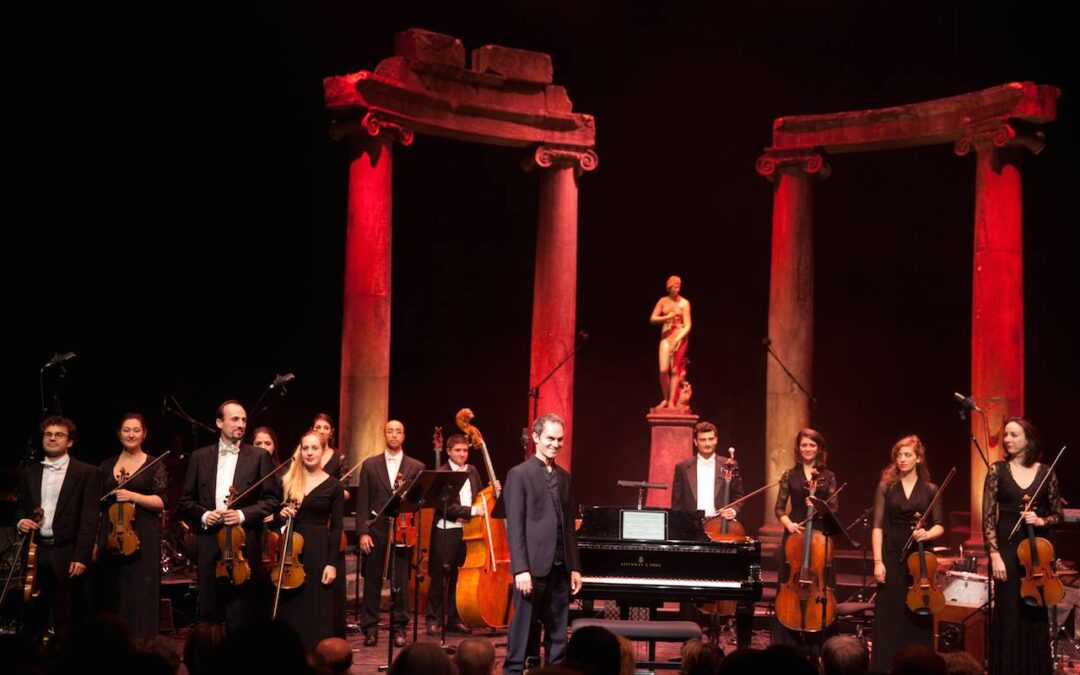
Dec 28, 2016 | Focolare Worldwide, Senza categoria
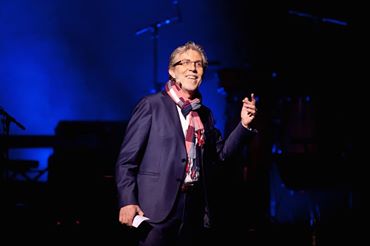
Rocco Femia, Director of the Radici cultural magazine
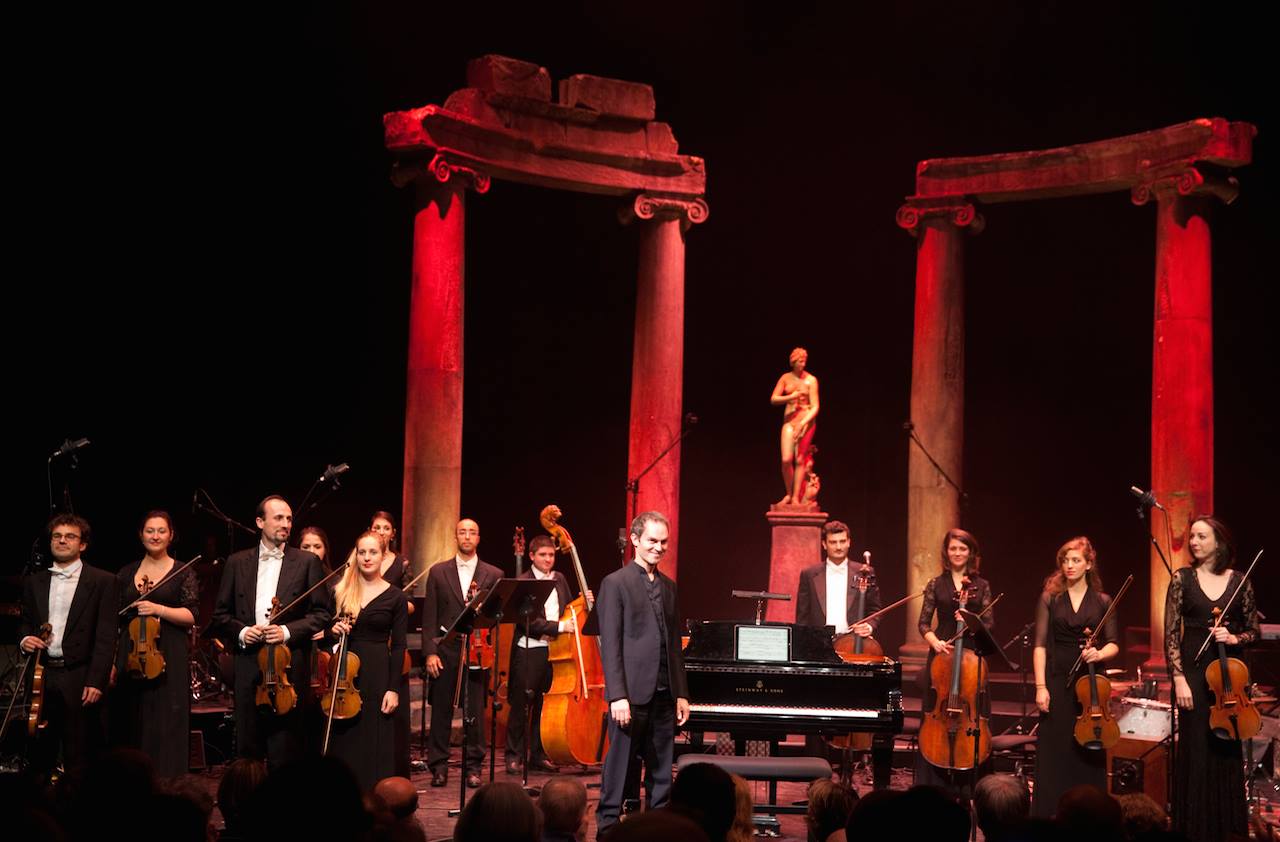 Fifty artists performed for free, confirming the strong sympathy is being felt for those who have suffered great loss. Artists included the OCCITANIA Chamber Music Ensemble, with music of Bach; the popular Italian song group, Incanto, which travels around the world with its musical titled ITALIANI, when we were the immigrants; The DALTIN Trio; Vicente and Rafael PRADAL from Spain; flemenco virtuoso guitarist Kiko Ruiz; the NACCARATO Jazz Trio; mandolin player Julien Martineau; the musical poems of the great Faber, performed by the Fabrizio DE ANDRÈ Band; the unforgettable music from the Italian films and the great finale and standing ovation for Cécile LIMAL who led La vita è bella… by Roberto Benigni. The music alternated with lively presentations by Rocco Femia, Director of RADICI magazine and by television journalists Marina Lorenzo and Patrick Noviello. In his thank-you speech, the director of RADICI did not want to forget anyone, conscious of the deep personal commitment of each person to the success of the event: from the technical crew to the artistic director, to the sound director, to the lights. Then there were the Deputy Mayor Francis Grass, the Italian Console to Toulouse, Fabrizio Mazza, the sponsors, benefactors, the media, and so on. Everyone “won the battle” together. And that is what I experienced as I shared a supper with the artists and technical staff after the concert. There is a strong bond among us, comprised of mutual trust, esteem, shared talent and solidarity – and a strong desire to make the world a more beautiful place. And I joyfully realized that this bond also included me and UWP. So, I wouldn’t be surprised if I discover that what I just experienced is only the beginning of a long and beneficial relationship of collaboration. In fact, when presenting the United World Project (UWP) during the concert, Rocco Femia highlighted the slogan of the RImPresa Project, to sum up what everyone seemed to be feeling: Hope vibrates; the future isn’t trembling.” Gustavo Clariá
Fifty artists performed for free, confirming the strong sympathy is being felt for those who have suffered great loss. Artists included the OCCITANIA Chamber Music Ensemble, with music of Bach; the popular Italian song group, Incanto, which travels around the world with its musical titled ITALIANI, when we were the immigrants; The DALTIN Trio; Vicente and Rafael PRADAL from Spain; flemenco virtuoso guitarist Kiko Ruiz; the NACCARATO Jazz Trio; mandolin player Julien Martineau; the musical poems of the great Faber, performed by the Fabrizio DE ANDRÈ Band; the unforgettable music from the Italian films and the great finale and standing ovation for Cécile LIMAL who led La vita è bella… by Roberto Benigni. The music alternated with lively presentations by Rocco Femia, Director of RADICI magazine and by television journalists Marina Lorenzo and Patrick Noviello. In his thank-you speech, the director of RADICI did not want to forget anyone, conscious of the deep personal commitment of each person to the success of the event: from the technical crew to the artistic director, to the sound director, to the lights. Then there were the Deputy Mayor Francis Grass, the Italian Console to Toulouse, Fabrizio Mazza, the sponsors, benefactors, the media, and so on. Everyone “won the battle” together. And that is what I experienced as I shared a supper with the artists and technical staff after the concert. There is a strong bond among us, comprised of mutual trust, esteem, shared talent and solidarity – and a strong desire to make the world a more beautiful place. And I joyfully realized that this bond also included me and UWP. So, I wouldn’t be surprised if I discover that what I just experienced is only the beginning of a long and beneficial relationship of collaboration. In fact, when presenting the United World Project (UWP) during the concert, Rocco Femia highlighted the slogan of the RImPresa Project, to sum up what everyone seemed to be feeling: Hope vibrates; the future isn’t trembling.” Gustavo Clariá

 In the first months of marriage, happy and very much in love, everything seemed to go smoothly. But soon the tensions between me and my husband became more and more frequent and made me increasingly sad. I certainly made a lot of mistakes, but tried just the same to keep up the relationship, convinced that love would not end. We went on amid ups and downs. After five years we had a baby girl and then a boy. Our daughter was born with a congenital disease, and this meant many hospitalizations, even far from home. Also our son had weak health and was often also hospitalized. A delicate operation, however, resolved my daughter’s condition, but those had been very taxing years. My husband felt crushed by this situation and said he could no longer cope with all these problems. When I realised that he had fallen in love with my best friend, it was already too late to make him reverse his decisions. And so, after 13 years of marriage, I was left alone with two children of eight and five. I was so upset I no longer wished to live. I wasn’t afraid of death and with a powerful dose of drugs tried to commit suicide. But my plan failed and after 10 days in the hospital I was discharged. It was at this point that through the spirituality of the Focolare, I discovered God who is love. The Gospel had started to penetrate into my life, and I began to experience the joy of those who try to live it. The children suffered a lot due to our separation and I had quite a hard time also with them. But God never stopped guiding my life and placed along my way, people who helped me overcome the many problems I encountered, such as the burning desire to have someone by my side and the love of a man, or the desire to enjoy myself or simply just to cater to myself alone. And always, the light returned to illuminate my life, even when I had to face the most tragic experience for a parent: seeing my beloved daughter die in an accident at the age of 21. In that moment I was desperate with pain, but I asked God for the strength to repeat my “yes” to Him. And He did not leave me in desperation. I immediately felt his presence beside me. Ever since she had left us, I have received many signs of God’s love, and even if I cannot see her or hug her, I am at peace. Since she had wanted to become a teacher and was about to graduate, thanks to the generosity of many, a literacy project was created in the Ivory Coast, and adopted for some years also by the parish. Now the idea is that of building a school and the commitment is being brought ahead. God’s love manifests itself also when friends of my daughter share with me their experiences: inviting me to their graduation, coming to visit me, bringing me out to have a pizza together, asking me for advice and calling me “Second mom.” Currently my son still lives with me and I am happy to open my heart to the needs of others. When I find out about people from other cities who are hospitalised in the cancer hospital nearby, I do my best to stay by them, trying to be a small ray of that love God has for me. One day I found the strength to forgive my husband, and was able not to judge him. Since then I have felt free and liberated from the great weight oppressing me, and though it still has not completely disappeared, not even divorce will make me say that he is no longer my husband. I always remember what my daughter used to say: «Mom, your renunciation of marrying again will be dad’s salvation» and I am sure that these words will come true.
In the first months of marriage, happy and very much in love, everything seemed to go smoothly. But soon the tensions between me and my husband became more and more frequent and made me increasingly sad. I certainly made a lot of mistakes, but tried just the same to keep up the relationship, convinced that love would not end. We went on amid ups and downs. After five years we had a baby girl and then a boy. Our daughter was born with a congenital disease, and this meant many hospitalizations, even far from home. Also our son had weak health and was often also hospitalized. A delicate operation, however, resolved my daughter’s condition, but those had been very taxing years. My husband felt crushed by this situation and said he could no longer cope with all these problems. When I realised that he had fallen in love with my best friend, it was already too late to make him reverse his decisions. And so, after 13 years of marriage, I was left alone with two children of eight and five. I was so upset I no longer wished to live. I wasn’t afraid of death and with a powerful dose of drugs tried to commit suicide. But my plan failed and after 10 days in the hospital I was discharged. It was at this point that through the spirituality of the Focolare, I discovered God who is love. The Gospel had started to penetrate into my life, and I began to experience the joy of those who try to live it. The children suffered a lot due to our separation and I had quite a hard time also with them. But God never stopped guiding my life and placed along my way, people who helped me overcome the many problems I encountered, such as the burning desire to have someone by my side and the love of a man, or the desire to enjoy myself or simply just to cater to myself alone. And always, the light returned to illuminate my life, even when I had to face the most tragic experience for a parent: seeing my beloved daughter die in an accident at the age of 21. In that moment I was desperate with pain, but I asked God for the strength to repeat my “yes” to Him. And He did not leave me in desperation. I immediately felt his presence beside me. Ever since she had left us, I have received many signs of God’s love, and even if I cannot see her or hug her, I am at peace. Since she had wanted to become a teacher and was about to graduate, thanks to the generosity of many, a literacy project was created in the Ivory Coast, and adopted for some years also by the parish. Now the idea is that of building a school and the commitment is being brought ahead. God’s love manifests itself also when friends of my daughter share with me their experiences: inviting me to their graduation, coming to visit me, bringing me out to have a pizza together, asking me for advice and calling me “Second mom.” Currently my son still lives with me and I am happy to open my heart to the needs of others. When I find out about people from other cities who are hospitalised in the cancer hospital nearby, I do my best to stay by them, trying to be a small ray of that love God has for me. One day I found the strength to forgive my husband, and was able not to judge him. Since then I have felt free and liberated from the great weight oppressing me, and though it still has not completely disappeared, not even divorce will make me say that he is no longer my husband. I always remember what my daughter used to say: «Mom, your renunciation of marrying again will be dad’s salvation» and I am sure that these words will come true. 









 Excited but secure in their performance, they gave the best of themselves in the choreographies, songs, dances and theatre in a way that drew in the audience. Above all, they lived an experience that was unique unto itself, an experience that doesn’t conceive of “walls” and that lifted up the differences and diversity, showing how marginalization can be overcome. “The day after had a sense of nostalgia, but now it was different: It had the sense of a challenge! Good Start to all off us, small warriors on the outskirts!” wrote a teacher on her Facebook page, who helped promote the event. That’s the dream of those who interact with these young people every day, standing against marginalization and uneasiness with creativity and positive stimulation, helping others to not remain closed in their own everyday environments, promoting an inclusive environment at school that embraces all the sides of a person.
Excited but secure in their performance, they gave the best of themselves in the choreographies, songs, dances and theatre in a way that drew in the audience. Above all, they lived an experience that was unique unto itself, an experience that doesn’t conceive of “walls” and that lifted up the differences and diversity, showing how marginalization can be overcome. “The day after had a sense of nostalgia, but now it was different: It had the sense of a challenge! Good Start to all off us, small warriors on the outskirts!” wrote a teacher on her Facebook page, who helped promote the event. That’s the dream of those who interact with these young people every day, standing against marginalization and uneasiness with creativity and positive stimulation, helping others to not remain closed in their own everyday environments, promoting an inclusive environment at school that embraces all the sides of a person.




 In his message to the extremely attentive gathering, Pope Francis expressed hope and recommendations on three main points. The first concerns money. “It is very important that at the centre of the economy of communion there be the communion of your profits. The Economy of Communion is also the communion of profits, an expression of the communion of life”. “Money”, he said “becomes an idol when it becomes the aim (…). It was Jesus who defined money as a ‘master’: ‘No man can serve two masters”. And he continued: “Thus, one understands the ethical and spiritual value of your choice to pool profits. The best and most practical way to avoid making an idol of money is to share it with others, above all with the poor (…). When you share and donate your profits, you are performing an act of lofty spirituality, saying to money through your deeds: you are not God, you are not lord, you are not master!” The second concerns poverty. “The principal ethical dilemma of this capitalism is the creation of discarded people, then trying to hide them or make sure they are no longer seen (…). Aircraft pollute the atmosphere, but, with a small part of the cost of the ticket, they will plant trees to compensate for the damage created. Gambling companies finance campaigns to care for the pathological gamblers that they create. And the day that the weapons industry finances hospitals to care for the children mutilated by their bombs, the system will have reached its pinnacle. This is hypocrisy!”. Faced with this abominable situation “the Economy of Communion, if it wants to be faithful to its charism, must not only care for victims, but build a system where there are ever fewer victims, where, possibly, there may no longer be any. As long as the economy still produces one victim and there is still a single discarded person, communion has not yet been realized; the celebration of universal fraternity is not full”.
In his message to the extremely attentive gathering, Pope Francis expressed hope and recommendations on three main points. The first concerns money. “It is very important that at the centre of the economy of communion there be the communion of your profits. The Economy of Communion is also the communion of profits, an expression of the communion of life”. “Money”, he said “becomes an idol when it becomes the aim (…). It was Jesus who defined money as a ‘master’: ‘No man can serve two masters”. And he continued: “Thus, one understands the ethical and spiritual value of your choice to pool profits. The best and most practical way to avoid making an idol of money is to share it with others, above all with the poor (…). When you share and donate your profits, you are performing an act of lofty spirituality, saying to money through your deeds: you are not God, you are not lord, you are not master!” The second concerns poverty. “The principal ethical dilemma of this capitalism is the creation of discarded people, then trying to hide them or make sure they are no longer seen (…). Aircraft pollute the atmosphere, but, with a small part of the cost of the ticket, they will plant trees to compensate for the damage created. Gambling companies finance campaigns to care for the pathological gamblers that they create. And the day that the weapons industry finances hospitals to care for the children mutilated by their bombs, the system will have reached its pinnacle. This is hypocrisy!”. Faced with this abominable situation “the Economy of Communion, if it wants to be faithful to its charism, must not only care for victims, but build a system where there are ever fewer victims, where, possibly, there may no longer be any. As long as the economy still produces one victim and there is still a single discarded person, communion has not yet been realized; the celebration of universal fraternity is not full”.  The third point concerns the future. «These 25 years of your history say that communion and business can exist and grow together” , an experience limited to a small number of businesses when compared to the world’s great capital, “but the changes in the order of the spirit and therefore of life are not linked to big numbers. The small flock, the lamp, a coin, a lamb, a pearl, salt, leaven: these are the images of the Kingdom we encounter in the Gospels (…). It is not necessary to be in a large group to change our life: suffice it that the sale and the leaven do not deteriorate (…). Salt does not do its job by increasing in quantity – instead too much salt makes the meal salty – but by saving its ‘spirit’, its quality”. While recalling the time when there were no refrigerators and the mother dough was shared to make bread, the Pope encouraged the Economy of Communion entrepreneurs “not to lose the active ingredient, the ‘enzyme’ of communion”, by living “reciprocity”. “Communion is not only the sharing but also the multiplying goods, the creation of new bread, of new goods, of new Good with a capital ‘G’”. He invited those present to: “Give it to everyone, firstly to the poor and the young (…). Capitalism knows philanthropy, not communion”. At the end of his speech Pope Francis said: “You already do these things. But you can share more profits in order to combat idolatry, change structures in order to prevent the creation of victims ‘ and discarded people; give more of your leaven so as to leaven the bread of many. May the ‘no’ to an economy that kills, become a ‘yes’ to an economy that lets live, because it shares, includes the poor, uses profits to create communion». «I hope you continue on your path, with courage, humilty, and joy…, continue to be the seed, salt and leaven of another economy: the economy of the Kingdom, where the rich know how to share their wealth, and the poor are called “blessed”. This new awareness makes one look ahead with joy and a renewed commitment.
The third point concerns the future. «These 25 years of your history say that communion and business can exist and grow together” , an experience limited to a small number of businesses when compared to the world’s great capital, “but the changes in the order of the spirit and therefore of life are not linked to big numbers. The small flock, the lamp, a coin, a lamb, a pearl, salt, leaven: these are the images of the Kingdom we encounter in the Gospels (…). It is not necessary to be in a large group to change our life: suffice it that the sale and the leaven do not deteriorate (…). Salt does not do its job by increasing in quantity – instead too much salt makes the meal salty – but by saving its ‘spirit’, its quality”. While recalling the time when there were no refrigerators and the mother dough was shared to make bread, the Pope encouraged the Economy of Communion entrepreneurs “not to lose the active ingredient, the ‘enzyme’ of communion”, by living “reciprocity”. “Communion is not only the sharing but also the multiplying goods, the creation of new bread, of new goods, of new Good with a capital ‘G’”. He invited those present to: “Give it to everyone, firstly to the poor and the young (…). Capitalism knows philanthropy, not communion”. At the end of his speech Pope Francis said: “You already do these things. But you can share more profits in order to combat idolatry, change structures in order to prevent the creation of victims ‘ and discarded people; give more of your leaven so as to leaven the bread of many. May the ‘no’ to an economy that kills, become a ‘yes’ to an economy that lets live, because it shares, includes the poor, uses profits to create communion». «I hope you continue on your path, with courage, humilty, and joy…, continue to be the seed, salt and leaven of another economy: the economy of the Kingdom, where the rich know how to share their wealth, and the poor are called “blessed”. This new awareness makes one look ahead with joy and a renewed commitment. 







 The program will focus on these themes: The absurdity of suffering on an individual and social level Living with suffering The value of suffering There will be input from various geographic regions and from various disciplines: psychology, medicine, philosophy, art, through personal experiences given by people of different age-groups. Bookings can be made through the Centre for Dialogue with Persons of no Religious Affiliation Focolare Movement, Via Frascati 306, 00040 Rocca di Papa (Rome), Italy Email:
The program will focus on these themes: The absurdity of suffering on an individual and social level Living with suffering The value of suffering There will be input from various geographic regions and from various disciplines: psychology, medicine, philosophy, art, through personal experiences given by people of different age-groups. Bookings can be made through the Centre for Dialogue with Persons of no Religious Affiliation Focolare Movement, Via Frascati 306, 00040 Rocca di Papa (Rome), Italy Email: 




 ration of the “Week of Prayer for Unity of Christians” at Havana was highlighted by a particular moment, the Ecumenical Youth Festival, at its third edition. Created with the aim of encouraging a more active participation of the youth in the ecumenical movement, the festival project began to take shape and became an annual meeting of young Christians of Havana. The “Week of Prayer” was enlivened by the youth sectors of the
ration of the “Week of Prayer for Unity of Christians” at Havana was highlighted by a particular moment, the Ecumenical Youth Festival, at its third edition. Created with the aim of encouraging a more active participation of the youth in the ecumenical movement, the festival project began to take shape and became an annual meeting of young Christians of Havana. The “Week of Prayer” was enlivened by the youth sectors of the 












 A series of events are to be held around the world in 2017 that will highlight the value of the family from the perspective of “universal brotherhood” and will bear witness to the richness of cultural diversity, through the ideal of unity incarnated in family life. The main event will be held in
A series of events are to be held around the world in 2017 that will highlight the value of the family from the perspective of “universal brotherhood” and will bear witness to the richness of cultural diversity, through the ideal of unity incarnated in family life. The main event will be held in 




 One of the seminarians writes: “I was very struck by one of the main points of the spirituality of
One of the seminarians writes: “I was very struck by one of the main points of the spirituality of 









 I started by trying to welcome some of my students with love, and slowly I saw that their tears dried up. I realised that to really “encounter” the world of the little ones, we have to approach each child with attention, and learn to see things through their eyes, making use of all our energies and skills to create important relationships. With other operators and professionals driven by the same educative style, I then tried to start up procedures in which the children and their families experience really educational relationships. From this cooperation the idea of a book came up, to narrate not only the stories of the “invisible children,” but also about good practices and redemptive pathways. “Children in Trouble,” said an oncologist, a social worker, a paediatrician and me, who curated the book, wants to bring out those seeds of hope and positive relations that become in some way, generators of resilience. Through that resource, many children when suitably aided are able to concretise and reach good recovery levels. The same happened to Emma. When she was eight years of age, overwhelmed by the split up of the family she had tried to commit suicide. Recently, after contacting me on Facebook, she wrote: “Dear teacher, how I miss you and the many moments we spent together! Do you remember when you read stories to us, taking on the voice of the characters? And the school trip to the sea? These will certainly never be erased from my heart and the love you showed me when all was dark around me. When I was in the hospital after the tragic event, you were there and didn’t ask me why I had done it. You were there, and that’s all. Then I returned to school with those wounds and you made everyone make those bracelets with coloured threads… but I knew that it was to help me hide those scars I didn’t want others to see…”(2) At the presentation of the book in universities and seminars, it was really surprising to see the attention and seriousness of the audience who started to take notice of that child next door, or the one who is begging in the subway or in a hospital ward. They were children who were invisible and now can return to being protagonists of their own future. By Anna Friso 1) – 2) – Patrizia Bertoncello – Bambini nei guai (
I started by trying to welcome some of my students with love, and slowly I saw that their tears dried up. I realised that to really “encounter” the world of the little ones, we have to approach each child with attention, and learn to see things through their eyes, making use of all our energies and skills to create important relationships. With other operators and professionals driven by the same educative style, I then tried to start up procedures in which the children and their families experience really educational relationships. From this cooperation the idea of a book came up, to narrate not only the stories of the “invisible children,” but also about good practices and redemptive pathways. “Children in Trouble,” said an oncologist, a social worker, a paediatrician and me, who curated the book, wants to bring out those seeds of hope and positive relations that become in some way, generators of resilience. Through that resource, many children when suitably aided are able to concretise and reach good recovery levels. The same happened to Emma. When she was eight years of age, overwhelmed by the split up of the family she had tried to commit suicide. Recently, after contacting me on Facebook, she wrote: “Dear teacher, how I miss you and the many moments we spent together! Do you remember when you read stories to us, taking on the voice of the characters? And the school trip to the sea? These will certainly never be erased from my heart and the love you showed me when all was dark around me. When I was in the hospital after the tragic event, you were there and didn’t ask me why I had done it. You were there, and that’s all. Then I returned to school with those wounds and you made everyone make those bracelets with coloured threads… but I knew that it was to help me hide those scars I didn’t want others to see…”(2) At the presentation of the book in universities and seminars, it was really surprising to see the attention and seriousness of the audience who started to take notice of that child next door, or the one who is begging in the subway or in a hospital ward. They were children who were invisible and now can return to being protagonists of their own future. By Anna Friso 1) – 2) – Patrizia Bertoncello – Bambini nei guai (






 “So is craving, so is anger, they arise from the Rajas, the passion of the senses that devours everything” (Bhagavad Gita, 3:37)
“So is craving, so is anger, they arise from the Rajas, the passion of the senses that devours everything” (Bhagavad Gita, 3:37)

